Deacon Marc began his formation with the Roman Catholic Archdiocese of Vancouver in September 2019 because he lived there at that time. After moving to Calgary for family reasons, mid-program in June 2022, he received special permission to continue his formation with the Archdiocese of Vancouver because their program did not align with the diocesan program in Calgary. While the circumstances might sound simple enough, the mechanics of becoming a deacon from two places at the same time are definitely unique and somewhat challenging. “It was an unusual circumstance for Archbishop Miller and Bishop McGrattan, but the Holy Spirit found a way, and how they both worked together was an example of their ecclesial mindset,” Deacon Marc said. Deacon Marc’s journey to the diaconate actually began much earlier and further afield, in his birthplace of Sydney, Australia. He was challenged while still a teen, by a priest who was a family-friend, to consider the priesthood. Though he did not follow that path, he always felt some calling to serve the Church, even long after emmigrating to Canada with his parents and siblings. Deacon Marc recalls vividly the Mass he attended in Vancouver in 2010 when his parish priest read an announcement from the Archbishop that the Archdiocese of Vancouver was instituting a Permanent Diaconate program. “I felt a twinge of wondering if this was for me, and if this was what God was calling me to.” However, a busy work schedule and prospective relocation to Toronto suspended further response. His 25-year career in the pharmaceutical industry requires frequent travel and occasional relocation. After moving to Toronto, Deacon Marc witnessed for the first time a deacon preaching and serving at the altar. He said, “I was again intrigued, feeling the same feeling as before but knew that Toronto was not going to be my home for long and that I was not in any position to make a longterm commitment. But the thought nagged at me.”
Deacon Marc’s determination, along with time-management and relational skills, may be some of the reasons he has been asked to assist on the Diocesan Renewal Leadership Team and in the Vocations Office at the Pastoral Centre, in addition to serving at his assigned parish of St. Anthony’s. Despite wearing many hats, Deacon Marc finds time to jog or walk, play the trumpet and the occasional round of golf. Deacon Marc's wife Leonora, his grown children and now four grandchildren are his first priority but he also prioritizes Mass (“There’s nothing better!”). “I’m a regular guy,” Deacon Marc said. “I love Jesus, I love my family, I like sports…and the occasional beer is also a great thing!” He goes on, “I’m excited to begin serving the diocese and really want to be that connector between the clergy and regular people (like me), showing that we really can have a personal relationship with Jesus while striving to become who we are meant to be. That is His greatest desire for us.”
0 Comments
We began our 40 Hours Devotion for Vocations last week with so many blessings that we should be grateful for. Within that weekend, the responsorial psalm proclaims to us the greatness of God’s love for each one of us for our families and communities. Our parish is so blessed that on Saturday, June 22, 2024, the daughter of Andrew and Karen Serafini, Sr. Eve Mary (formerly Mary Serafini), had her first vows as a Sister of Life at Sacred Heart Church in Suffern, New York, dedicated to protecting and enhancing the sacredness of human life. Both parents are actively involved in our ministries and organizations. It was also the same weekend that Vicky Oliphant's daughter, Sister Aimee Marie (formerly Lindsay Oliphant), went home to join her mother, Vicky, to visit her grandmother in Nova Scotia, who has health issues. These two consecrated Sisters are powerful testaments of God blessing our families and communities as seedbeds of vocations for priesthood and consecrated life. From the comments, sharing and experiences of our Adorers, they were telling me that spending an hour or two before the Lord in the Blessed Sacrament in continuous prayer was truly renewing and nurturing one’s spiritual life. It was not only moments of personal connection with the Lord, but of deepening one’s intimacy with Him in Adoration. Many, including Bishop McGrattan, had recommended holding it at least once a year in every parish.
On June 7-9, 2024, the Sacred Heart Parish in Calgary held the 40 Hours of Adoration for Vocations. This prayer gathering was a testament to the unwavering faith and devotion of the parish community to the importance of vocations to the priesthood and religious life within the Diocese of Calgary. The parish community responded enthusiastically. Many parishioners participated in the adoration, taking turns spending time in prayer and meditation. This collective effort demonstrates the deep commitment of the Sacred Heart Parish to supporting and nurturing vocations, which are crucial for the growth and vitality of the local Church. Through this prayer initiative, the parish fostered an environment of prayerful support and encouragement for those discerning a religious vocation. We are thankful for the success of the 40 Hours Adoration for Vocations, and the active participation of the parish community. It was truly a strong testament to the community spirit that thrives within our parish. Written by Fr. Arjay Arbanto, pastor at Sacred Heart Parish, Calgary. Photos courtesy of Sacred Heart Parish.
In April, Holy Spirit Parish hosted a 40 Hours Adoration for Vocations, drawing an impressive number of participants and receiving overwhelmingly positive feedback. "The number of people registered through the 40 hours Adoration was 378," Pauline Jensen, Adoration coordinator, shared, "However, I would put that number up and over 500 as many did not register either from this parish or other parishes. There were many new faces and I surmise the notice on the Diocesan website was instrumental in appealing to those wanting to attend an Adoration at certain hours." This prayer event is a part of the broader diocesan initiative. In his letter promoting the 40 Hours, the Bishop emphasized, "In the spirit of our Diocesan Renewal, I wish to promote the 40 Hours Devotion for Vocations in the Diocese of Calgary. This Devotion is a longstanding tradition of forty hours of continuous prayer before the solemn Exposition of the Blessed Sacrament in a succession of churches for special intentions. In the Diocese of Calgary, the special intention will be for vocations to the priesthood and consecrated life." Pauline noted that the event ran smoothly without any issues, thanks to the help of their dedicated volunteers. "The night hours went well," she said. "The Knights arrived at midnight and were in the chapel when I arrived at 7 am." Special prayer sessions marked the devotion. "On Saturday, the Spanish community led the rosary at 5 pm, and the prayer group at 6 pm," Pauline mentioned. Additionally, the Divine Mercy prayer was recited at various intervals throughout the 40 Hours. Feedback from participants was overwhelmingly positive, with many describing the experience as "calm, peaceful, holy" and expressing eagerness for future events. "When can we do this again?" was echoed by many attendees. Fr. David Meadows expressed his gratefulness for the prayer, stating, "Our 40 Hours Adoration for Vocations was a great success. I was impressed by the number of people, and their enthusiasm." The 40 Hours Devotion for Vocations at Holy Spirit Parish not only demonstrated the strong sense of community within the parish but also highlighted the power of collective prayer and devotion. As the Bishop underscored Matthew's Gospel passage in his letter, “The harvest is plentiful, but the labourers are few; therefore ask the Lord of the harvest to send out labourers into his harvest” (Matt. 9:37-38). He added, "Through this initiative of the 40 Hours Devotion for Vocations, we will in time see the fruits of our prayer as the Lord sends out labourers into his harvest, including into the local church of the Diocese of Calgary."
"We urgently need more vocations in our diocese—to Consecrated life and the Priesthood. Without everyone's involvement, how can we hope to see an increase in vocations?" Sr. Dianne, Assistant Director of Vocations, posed this compelling question at the Vocations Rally on Good Shepherd Sunday, April 21, at St. Michael’s Parish in Calgary. “We really need to get that soil prepared so that the seeds of vocation can fall into it, and they can flourish,” she continued. Indeed, this was the driving force behind gathering the faithful at the Vocations Rally, aiming to enlighten us all on how to create such nurturing conditions. The event, co-hosted with the Benedict XVI Institute from Newman Theological College, was a hopeful beginning for fostering vocations within our diocesan community. With more than 400 attendees, including pre-registrants and walk-ins, the Rally kicked off with Mass at 11 am, led by Fr. Edmund Vargas. Afterward, attendees were invited to enjoy a delicious lunch prepared by the Knights of Columbus in the narthex, and explore various booths featuring Religious brothers and sisters, seminarians, and vocations advocates before the start of the presentations. Fr. Cristino, Director of Vocations, shared his astonishment at the turnout and the discussions he had in the days following the rally. “It was impressive to me, first of all, how many people were in attendance. But the follow up conversations I've been having with people all week clearly indicate that they were deeply impacted by all of the sharing they received in that brief time together!” But this comes as no surprise. The insights shared by each speaker, combined with the sense of community encountered at the Rally, were a true renewal experience.
Videos from the Vocations Rally are available here:
Videos courtesy of St. Michael's Catholic Community. The Office of Vocations is very thankful for the Vocations Rally Planning Team, Benedict XVI Instittute of the Newman Theological College, St. Michael’s Parish and Diocesan staff, video and photography team, Knights of Columbus, Seminarians, Consecrated Life members, Serra Club of Calgary, and many others who supported the Vocations Rally and came to support our Diocesan effort to create a culture of vocations! We wouldn’t be able to do it without you.
Photos: Bandi Szakony, for the Diocese of Calgary “Thanks be to God for his indescribable gift!” (2 Corinthians 9:15) With grateful hearts, we rejoice in the opportunity to engage staff and students in Eucharistic Adoration in Calgary Catholic School District high schools. Through the collaborative effort of local clergy and high school principals and chaplains, over 45 hours of Eucharistic Adoration for vocations was hosted in high school chapels, the Cathedral and Central Office between February 26 to March 6, 2024. Eleven high schools committed to offering four hours of adoration and engaged participants in private and collective prayer, reflection on scripture, music, and silence. In one case, local parishioners joined the school community in prayer before the Blessed Sacrament, and in another, a Eucharistic procession took place throughout the school. This time of prayer and adoration exalted the greatness of our Lord, helped deepen participants' understanding of God’s call to vocation, strengthened the bond between parish and school communities, and created a desire in staff and students for more opportunities to engage in Eucharistic Adoration. Together, let us continue to pray for hearts and minds open to the voice of God and the grace to faithfully follow his call. Of all devotions, that of adoring Jesus in the Blessed Sacrament is the greatest after the sacraments, the one dearest to God and the one most helpful to us." ~Saint Alphonsus Liguori Contributor: Michelle Hoogveld, Calgary Catholic School District
Photos courtesy of Calgary Catholic School District Despite the bad weather and slippery roads, numerous parishioners of all ages came to St. Mary’s Cathedral for the 40 Hours Devotion for Vocations in the Diocese of Calgary, which commenced on Friday, March 1, at St. Mary's Cathedral. From 7 a.m. that Friday until 11 p.m. on Saturday, Jesus Christ was solemnly exposed on the Altar in the monstrance. The faithful gathered to adore Him and pray for the needs of the Church and the world, particularly for vocations to the priesthood and consecrated life. The 40 Hours Devotion is a centuries-old tradition of continuous prayer before the Blessed Sacrament in solemn exposition, held successively in different Churches for special intentions. On Ash Wednesday of this year, Bishop McGrattan wrote a pastoral letter promoting the 40 Hours Devotion in the Diocese of Calgary for the special intention of vocations to the priesthood and consecrated life. In the spirit of Diocesan Renewal, the Bishop invited all parishes in the Diocese to take turns holding the Devotion. “Through this initiative of the 40 Hours Devotion for Vocations,” he wrote, “we will in time see the fruits of our prayer as the Lord sends out labourers into his harvest, including into the local Church of the Diocese of Calgary.” To launch the Devotion, Bishop McGrattan celebrated the Cathedral’s regular Friday 7:30 am Mass. In addition to silent adoration, the agenda for the 40 Hours at the Cathedral comprised three additional Parish Masses, recitation of the Rosary before Masses, the Divine Mercy Chaplet at 3 pm on both days, sacred music, and brief talks delivered by three Priests. During Mass, the Blessed Sacrament was reposed in the Tabernacle. Priests were also accessible for Confessions throughout the entire forty hours, except during the Masses. To ensure that someone was always present when the Blessed Sacrament was exposed, St. Mary's Cathedral reached out to different groups in the Parish to come for particular hours of Adoration. This included the altar servers ministry, which is primarily comprised of young people. The Cathedral also gave parishioners the opportunity to sign up for hours of Adoration, and made it clear that an inability to commit to a specific hour was no barrier to participation. Those who found themselves free were warmly encouraged to attend whenever they could, without the pressure of signing up. The response was amazing! A total of 307 signed up from the website. Yet, the number of people who actually came was significantly higher. For two hours on Friday morning, students and staff from St. Mary’s High School took turns coming to adore Jesus Christ in the Eucharist. On Saturday morning, Fr. Avinash Colaco, Rector of the Cathedral, delivered a catechesis to students preparing for first Holy Communion and Confirmation and their parents. Although only 25 students and parents had signed up for the talk, over 45 showed up. Many people also rose to adore Jesus Christ in the middle of the night to the early morning hours. Throughout these quiet hours, an average of twelve adorers was present every hour. A security guard was assigned in the Church throughout the night to ensure the safety of the adorers and priests. The final day of the Cathedral's 33-day preparation for Consecration to the Eucharist fell on Saturday, March 2nd. As the clock struck 10:30 pm, parishioners collectively recited the Act of Consecration. This was followed by the Benediction of the Blessed Sacrament at 11 pm, with over 85 people bearing witness to this profound ceremony. The preparation and organization of the 40 Hours was conducted under the leadership of Fr. Avinash, assisted by Deacon Greg Barcelon and the Cathedral’s Parish Renewal Team. Both the 40 Hours Devotion and the Consecration to the Eucharist were announced to the Parish community for weeks in advance. “Thoughtful planning and preparation,” says Fr. Avinash, “were key to its success.”
Contributors: Fr. Derek Remus & Fr. Avinash Colaco for Faithfully. Photos courtesy of St. Mary's Cathedral.
For more information about 40 Hours of Devotion for Vocations, and to host the Devotion in your parish, contact Fr. Derek at [email protected] | Pray for our Seminarians This year, the 28th World Day for Consecrated Life was especially marked with great reverence and joy. Friar Michael Perras shared, "The Franciscan Friars invited all religious of the Diocese to join in this special commemoration. We gathered for the Eucharist, took time to connect, and enjoyed a noon feast together. I believe there were nine different communities represented. It was such a gift for us to gather and celebrate our vows!"
The World Day for Consecrated Life is celebrated every year on February 2. It is intended to "help the entire Church to esteem ever more greatly the witness of those persons who have chosen to follow Christ by means of the practice of the evangelical counsels and, at the same time, is intended to be a suitable occasion for consecrated persons to renew their commitment and rekindle the fervour which should inspire their offering of themselves to the Lord." (Pope St. John Paul II) Following the gathering at Mount St. Francis in Cochrane, many of the religious priests and consecrated men and women of the Diocese joined Fr. Avi at the Cathedral to celebrate the Mass of the Feast of the Presentation of the Lord, also known as Candlemas. After the gathering at Mount St. Francis in Cochrane, many religious priests and consecrated men and women of the Diocese joined Fr. Avi at the Cathedral to celebrate the Feast of the Presentation of the Lord, also known as Candlemas. Fr. Avi led the Mass and invited people discerning a call to consecration to come forward for a blessing alongside those who had already taken vows. He encouraged the congregation to invite young people to consider the Consecrated Life and prayed especially for more vocations in the Diocese. The Fun Night with Sisters, initially set for Friday, January 12th, had to be cancelled due to the extreme weather. But our Sisters were quick on their feet, rescheduling the event to the following Friday. While some had to pull out due to scheduling conflict, it also opened the door for others who couldn't make the initial date. In the end, the group comprised of 10 young women and 8 Sisters - which turned out to be an ideal group size, as it allowed for more personal interactions. The evening kicked off with a prayer led by the Dominican Sisters, followed by a delightful dinner including pizza (meat-free since it was Friday), vegetables, cookies, and engaging conversation. Each attendee had the opportunity to introduce herself, and the Sisters briefly spoke about their respective communities. The communities represented were the Faithful Companions of Jesus who sponsored the event in their large parlour, the Dominican Sisters of the Immaculate Conception, the Providence Sisters, the Franciscan Missionaries of Mary, and the Franciscan Sisters of St. Elizabeth. Ting, our game maestro and a postulant from the Providence Sisters guided the evening's entertainment. First up was 'Name the Song', but with a twist - the tunes were hilariously mimicked with animal sounds, leading to roars of laughter and cheers. Much like last year, we also enjoyed a round of Pictionary, but with a sweet reward - candies for all participants! As the evening drew to a close, we concluded the event with a silent prayer session in the chapel, followed by the collective recitation of the Night Prayer. Please stay tuned for future events organized by the Sister of the Assembly of Women Religious of the Diocese of Calgary. Submitted by Sr. Dianne Turner, Office of Vocations.
Photos courtesy of Sr. Dianne. Congratulations to our twelve new permanent deacons, ordained on Saturday, Nov. 18, 2023 at St. Mary's Cathedral by Bishop William T. McGrattan.
Please pray for our newly ordained deacons that he may be strengthened by the gift of God's grace to carry out faithfully the work of ministry, and that he may imitate our Lord who came not to be served but to serve. Amen. A special acknowledgment is extended to the liturgical ministers, St. Mary's Cathedral, and diocesan staff for their dedicated work in organizing the ordination liturgy. We express our special appreciation to the Permanent Diaconate Ministerial Council, sponsors, and volunteers for organizing and arranging the reception.
Join us in rejoicing as we welcome new permanent deacons, ready and eager to serve Christ and His Church. We're delighted to invite you all to explore our extensive photo album from the Permanent Diaconate Ordination.
Written by Fr. Sajo Jacob for Faithfully.
Written by Fr. Roy Jayamaha, Pastor of St. Paul's Church, Piikani Nation, Brocket, AB.
On a beautiful Tuesday morning, I sat at a picnic table by the shore of Lake Chaparral, southeast of Calgary, engaging in conversation with our Diocese's newest deacon from Argentina. My hosts on this warm gorgeous summer day were Deacon Carlos Lozano and his lovely wife, Christina Rieter. The warmth emanating from the two of them carried us through a two-hour heartfelt bilingual Spanish–English conversation centred on Christ, family, and service. As Deacon Carlos awaits his new mission in Holy Spirit Parish beginning August 1st, he speaks with delightful excitement about his ministry in Argentina and his hopes and dreams for the future. In May 1996, Deacon Carlos and his fellow deacons chose these words of Jeremiah for their ordination in Buenos Aires, Argentina: “Now the word of the Lord came to me saying, “Before I formed you in the womb I knew you, and before you were born I consecrated you a prophet to the nations.” (Jer 1:4-5). Long before that, in 1951, Deacon Carlos revealed that his mother, while he was still in her womb, had dedicated him to our Blessed Virgin Mary. With this profound offering and our Blessed Mother's intercession, Deacon Lozano serves the Lord not only in his marital and family life but also through his permanent diaconate ministry, which now extends beyond Argentina due to his his recent move to Calgary, Alberta.
“War is the ultimate human failure,” says Capt./Fr. John Nemanic. Not a sentiment I expect to hear from a military chaplain but Fr. John is adamant. “Human beings are called to be in communion with one another; to love and help each other. I had to grapple with this.” As we continue the interview, he expands on this conflict. Barely nine months ago, Fr. John was a diocesan priest in the Diocese of Calgary. Now he is a chaplain serving in the Roman Catholic Military Ordinariate of Canada (RC Milord Canada) under the supervision of Bishop Scott McCaig. The RCMilord is described as “a diocese of massive dimensions” serving not only military members and their families at home, but also wherever the Canadian Armed Forces (CAF) have a presence around the world. Fr. John is simultaneously an officer, serving under a military chain of command including the Royal Canadian Chaplain Service (RCChS). This branch of the military, which Fr. John describes as similar to Alberta Catholic schools in that it serves all faiths. According to the National Defence website, “CAF chaplains attend to the needs of all members of the CAF and their families, whether they identify with a particular Faith Tradition, have no specific spiritual/faith practice, belief or custom, or are spiritually curious.” In some ways, this is similar to parish work, caring for the spiritual needs of all CAF members, those who are Catholic, those from other faith backgrounds or those who have none. The pluralism found within the CAF reflects that seen in Canadian society as a whole, so chaplains have to be prepared to deal with all of it. Fr. John says, “As individual chaplains we’re told to be faithful to our faith traditions, so I might refer for example, a same-sex marriage request, to another chaplain. The chaplain might also refer military families to the local (secular) parish, for example, for sacramental preparation or for French-language Mass. He also liaises with other houses of worship nearby to be able to refer different faith adherents appropriately. It’s an environment of ecumenism and outreach into which chaplains are rigorously initiated. Fr. John felt a calling to the military as early as his calling to the priesthood. His father served in the Yugoslavian army, so after Fr. John was ordained in 2008, he considered serving as a reservist. However, he found the commitment unsustainable with full time parish work. In 2017, his yearning to serve for the military resurfaced during centennial celebrations of the Battle of Vimy Ridge. Eventually, he applied to the RCChS and began a long process of interviews, physical tests, evaluations, educational qualification assessments and personal reference checks. “This was also to test the call,” Fr. John says, “A lot of it was prayer.” Once he was accepted, he was posted to Garrison Petawawa in Ontario (population 19,000 including 6,000 people directly connected to the base). He then began 13 weeks of basic training from 5 am to 10 pm. It was a tough regimen designed to emphasize teamwork and endurance under adversity, as well as essential fighting skills. Chaplains do not carry weapons, although they do have to learn how to safely disarm them. They also do not command any personnel but bear an officer’s rank so they can minister to members at all levels. Chaplains have authority, and an obligation, to present significant issues from the rank-and-file to higher-ups. They also preside at religious services and form part of the group which delivers news to a family following an incident. It was during basic training that Fr. John experienced a memorable moment. Among his fellow trainees, who ranged in age from 19 to 50, one approached him expressing suicidal thoughts. Fr. John arranged for mental health support for the person. He remembers being awed and humbled by the “power of the padre”, to be trusted with a confidence at the outset of his training. Not all his experiences were as positive. While visiting the Canadian War Museum in Ottawa during Basic Training, he paused in front of a large display of instruments meant to kill and maim. “My stomach churned,” he says, “I wondered, ‘am I enabling this by serving in the CAF?’” With the help of an advisor, he came to understand differently. “Canada’s interests in going to war are noble: to defend our country and defend those who need our help.” He goes on to say that Jesus met violence with acceptance when he submitted to being crucified. Chaplains can provide solace to those who’ve had to kill and those suffering from PTSD (post-traumatic stress disorder). Fr. John explains that soldiers have to accept what the military terms ‘unlimited liability’ which means they cannot refuse an order even if it places them in dire danger. Officers have to deal with issuing such orders. Even peacekeepers, who are not permitted to fire unless first fired upon, can encounter terrible situations which they are powerless to affect. 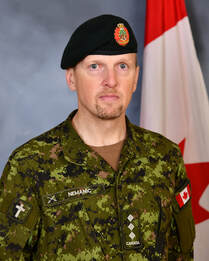 “It’s such a conundrum to support CAF members but not believe in war,” Fr. John says. “Only God can bring creation out of chaos. Pray for peace in our hearts and homes. Pray that there is no more war and no need for the military but pray also for our soldiers.” Fr. John ends our interview the same way he began it, with gratitude to Bishop McGrattan for “putting me on loan to the military”. He says fervently, “I would never have found peace until I knew if I could do this. God has put me in a place where I can really help people.”
A thunderclap of applause erupted inside St. Mary’s Cathedral Friday evening as the faithful deemed Santiago Torres worthy of ordination to the priesthood.
There was standing room only as young and old watched on as Torres prostrated himself before God and His people, giving his undivided heart to the priesthood on the Solemnity of the Sacred Heart of Jesus, as a choir sounding like angels sang the Litany of the Saints. Then the essential moment – the Laying on of Hands – by Bishop William McGrattan, as the Holy Spirit conformed Torres to the priesthood of Christ. It was poignant to see the many faces of Christ come forward one by one laying their hands on their new brother priest as he knelt to receive this gesture in humility. 
The word ‘humility’ was repeated through the music, the prayers, the homily and even Fr. Torres’ thank you address at the end of the ordination.
Bishop McGrattan emphasized every priest must possess the gift of the fear of God, a trepidation that they are unworthy to receive this call. “Each priest must respond to their call with confidence and humility inspired by the Spirit of God,” he said. Sincere, affable, gentle, kind, confident, humble, joyful and a gift to the Church; these are words that the faithful use to describe their newest Calgary diocesan priest. I count myself among the faithful who feel blessed by Fr. Santiago’s “yes” to live for Christ. A few weeks before the ordination, I had the privilege of sitting down to speak with Father (at that time Deacon) Torres. He chatted with me from his dorm room at St. Joseph’s Seminary in Edmonton via video call. Almost immediately I was reminded of his magnetic personality. We had first met about 13 years ago (summer of 2010) during which time he had just experienced the love of God in a profound life-changing way. By the end of the interview my heart was full of hope for the future of Fr. Santiago’s priestly vocation and for all the ways he will bring glory to God and peace to those he ministers to on Earth. 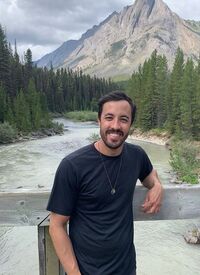 Fr. Santiago Torres Fr. Santiago Torres
A chat with Fr. Santiago
The Parable of the Mustard Seed came to mind as I sat down to write and reveal a glimpse of Fr. Santiago Torres’s profound journey of faith: one that began for him as a tiny seed hidden within his mother’s womb. “When I was conceived my Dad didn’t want anything to do with the pregnancy and so he left my Mom. I never knew who my biological dad was. He pushed [abortion] on her and my mom decided to have me instead – Praise God.” The 34-year-old priest, born and raised in Bogota, Colombia, considers his mother his primary role model. “My Mom has always been that solid foundation in my life for security and love – how to give of yourself for others.” Two days before the ordination, Fr. Santiago’s mother, Maria Cristina Latorre, was busy preparing for the ordination, welcoming her best friend from Germany, her sisters from Colombia, Santiago’s out-of-town seminarian friends and parishioners from his diaconal year in Lethbridge. With emotions running high amidst the hustle and bustle at her house, she stepped away to reflect and answer a few questions about her son. “I don’t know why Jesus chose me, but I’m here and I’m ready to give back my son to Him,” said Latorre, trying to hold back her tears. “There are too many emotions. “I ask God why you chose my son?,” she said. “I’m not asking this ‘why’ in a bad way. No, I’m asking why [because] I’m so humbled to be his mom. “Santiago explained to me ‘Mom, sometimes God, through difficult times, or bad situations, He makes something good from bad,’ which makes sense for me,” she continued.
Growing up in Bogota, Colombia
When Fr. Santiago was two-years-old, his mother married and had twin girls, Ana Maria and Maria Juliana. Then at six-years-old his parents divorced, but the family continued to keep in touch with his sisters’ father, the man who Fr. Santiago considers his earthly father figure. “It’s incredible how important the love of a father is in a person’s life and yet, even if one hasn’t had that in one’s life, God still wants to give us that love,” said Fr. Santiago. “Looking back on my life in those years that I wasn’t close to Him… even if I didn’t realize He was there, He was always there.” From early on the seed of faith was planted through Fr. Santiago’s Sacraments of Baptism and First Eucharist, but he was not Confirmed until later as an adult. From an early age watching television soccer matches won out over going to Sunday Mass. Meanwhile, his grandparents played a pivotal role in helping his mother raise Fr. Santiago and his sisters, both practically and spiritually. Mrs. Latorre remembers those early days of childrearing and how her parents did not approve of all the ways her life had unfolded. Yet, as devout Catholics, they continued to support and love her and her children. “At this time I was not close to God, I cannot say I was praying, but I can say God was with me all the time. I think He has been by my side all the time,” said Mrs. Latorre, tearfully.
A new beginning in Canada
Mrs. Latorre married Juan Gonzalo Arango when Fr. Santiago was around 14 and then, in 2005 at the age of 16, the family immigrated to Calgary for better opportunities. “For me it was very difficult,” said Fr. Santiago. “My friends were everything. I had a girlfriend in Colombia at that time as well. We moved in October, which was hard because it was starting to get cold and high school had already started. I only knew enough English to get by.” Shortly after the move, he began a relationship with a Colombian girl, also newly immigrated to Canada, who, to his astonishment, practiced her Catholic faith. The seed of faith received some significant watering one day when he was at his girlfriend’s house and the family was on a long-distance phone call with a priest from Colombia. Each person got a chance to speak to this priest, including – to his surprise – Fr. Santiago. “I was completely dumbfounded because I hadn’t talked to a priest in forever and that was how my conversion began,” said Fr. Santiago “It’s incredible how God works. “Because I didn’t know him and I knew I wouldn’t see him again ever, I was able to open my heart to him and actually talk about stuff that was going on in my life more than I would talk with my friends or girlfriend.” Shortly after that his girlfriend invited him to Mass and he began to pray at night again. He sees this period in high school as living a double life – one of renewed faith, yet still steeped in his secular lifestyle. But the seed of faith that had been planted in his childhood began to receive nourishment. 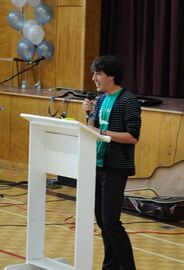 Young Fr. Santiago at CCO evangelistic mission, Impact. Young Fr. Santiago at CCO evangelistic mission, Impact.
Turning back to God
Two years after graduating high school (summer of 2010) at the age of twenty, Fr. Santiago participated in Impact, an evangelistic mission hosted by Catholic Christian Outreach. It was geared toward bringing lukewarm Catholic university students back into the faith. He took a faith study and attended ‘Summit’, an evening of adoration prayer at St. Bonaventure. It was during this hour of adoration and praise and worship that he gave his adult ‘yes’ to place Jesus at the centre of his life. “I just remember closing my eyes and feeling so loved,” said Fr. Santiago “It was just incredible. I started crying. It was just an experience of a love I’d never encountered. “I’d just broken up with my girlfriend, trying to fit into a culture I’d just arrived in, trying to wear a lot of masks to belong. I just felt the love that God was trying to give me, for no other reason than for being who I was.” His newly sprouted seed of faith continued to grow with good friendships through the former University of Calgary Catholic Community (now St. Xavier Chaplaincy). After graduating with a mechanical engineering degree in 2014, Fr. Santiago worked for a year in his field all the while discerning a call to either explore the priesthood or a budding female friendship. He received spiritual direction from a number of priests in the diocese and decided to apply for seminary studies. “I entered [into the seminary] with a lot of reluctance,” said Fr. Santiago. “I just felt I had been on the fence for a long time by then, a lot of wrestling and struggling. But I felt I had tried everything I could to discern outside the seminary, but the one thing I hadn’t done was give the seminary a shot.” The female friend he wanted to romantically pursue gave him the last push to enter seminary. “She said, ‘Santi, if you are not God’s will for me, then I don’t want to be with you.’ And that cut me to the heart because it was the opposite of what I was doing. I felt God was calling me to be a priest and I was choosing not to follow His will, but to be with her,” said Fr. Santiago. 
The formative seminary years
Fr. Santiago spent his first two seminary years at Mount Angel Seminary in Oregon, USA where one third of the seminarians were Latino. “I was able to make really good friends and feel at home,” said Fr. Santiago. “I began to feel this was right, that it was what God wanted me to do. That continued to be the feeling year after year.” He completed the next six years of training in Edmonton at St. Joseph’s Seminary. During this time fellow seminarian Serge Buisse became a close friend. They spent a lot of time together, studying, playing sports, confiding in one another. Fr. Serge was ordained last July for the St. Boniface Archdiocese in Winnipeg. He now pastors the francophone parish of St. Joachim in La Broquerie, Manitoba. He describes Fr. Santiago as down-to-earth, joyfilled, friendly and warm. “He was always a gift in so far as his desire to grow,” said Fr. Serge “He is very human. I thank God He sent me someone like him; his capacity to be real, to be authentic and we supported each other in almost every aspect of life.”
A note from the Diocese of Calgary:
Thank you to all ministers, volunteers, and staff who helped prepare for the Ordination! Special thanks to St. Mary's Cathedral parish staff, Catholic Women's League & Serra Club Calgary for organizing the reception, St. John Choir Schola, St. Francis Xavier Chaplaincy, Calgary seminarians, photographers Yuan Wang (SFXC) & Victor Panlilio (Canadian Martyr's Parish), livestreamer Rikki Sabater (St. Anthony's Parish) & team, videographers Annie Chirka (St. Peter's Parish) & team.
I did not think much about the question the first time because I was confident that religious life was not for me. I have been actively involved in the Church and a charismatic community called Singles for Christ. I was trying my best to walk the talk and live the faith. I want to be a living witness to how I overcame trials and used them to fuel the desire to become a better version of myself. I never mentioned the stirring within about religious life to family or friends but to my spiritual director. At the time, I was advised to process the idea: know the reasons for pursuing the vocation and that I was not running away from something. I took the advice to heart. Yet at the back of my mind, maybe this is just a phase in my life, and eventually, this question will gradually disappear from my thoughts. However, in the past six years or so, the question stayed. It lingered. I would ask this question during my quiet time, prayer time, when I am on the bus, train, or driving, especially when I see religious people, and I would laugh at myself every time. There is no way I am heading in that direction! At a retreat organized by CFC-Singles for Christ, I had the opportunity to hear a Sister of Providence speak about their mission. Their charism of serving the underprivileged - those who are ignored, victims of injustice, marginalized, and voiceless - spoke deeply to me. Over time, the asking, “What if religious life is for me?” became frequent. I want to believe that the best tool for discernment is action. So, I mustered the courage to act and reached out to the Sisters of Providence. In November 2021, I started my Come-and-See journey with the Sisters in Calgary, and by February 2022, I moved to Edmonton to continue the journey. I was immersed in community life. The experience became an occasion of growth and self-knowledge—an opportunity to understand others and myself. I felt loved and supported by the Sisters, and it caused me to appreciate the vocation to religious life. On February 18th, 2023, I entered as a candidate and the ceremony was held at the Providence Centre Chapel in Edmonton, with friends, family, Sisters of Providence, and Sisters from other congregations present. As I continue to learn about myself in the context of religious life, I trust in divine providence in this journey of unfolding the question that led me here, “What if religious life is for me?”.
Learn more about this unique vocation here.
On February 2nd, 2023, religious from eight different communities gathered to celebrate the World Day of Consecrated Life on the Feast of Presentation of the Lord. It was a joy-filled day with the celebration of the Eucharist, meaningful conversations that deepened connections, and a delightful meal shared between those present.
Submitted by Sr. Dianne Turner, Assistant Director of Vocation
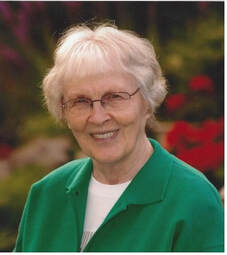 Sr. Helen Hengel, SCSL Sr. Helen Hengel, SCSL I was born in 1922 and raised in Shaunavon, Saskatchewan. I attended High School in Swift Current where I met the Sisters of Charity of St. Louis. Soon after I felt called by God to begin my life with the Sisters in Bienville, Quebec. After the time of formation and profession of vows (1942), I returned to Western Canada teaching In Saskatchewan and Alberta until 1958. Then I moved to Medicine Hat to the Novitiate Formation community as Director until 1964. I was further blessed with the opportunity for religious studies in Rome, and then further studies in psychology and counselling in Calgary, Ottawa, and New York. My journey then was focused on spiritual direction, youth counseling (University of Calgary) and helping those who suffered from addiction and their families through recovery, counselling with AADAC, the 12 Step individual and group counselling. I also served those attending serenity retreats, and those in personal growth groups and retreats for women.
Submitted by Sr. Helen for Faithfully.
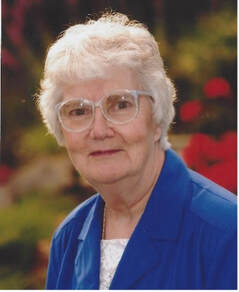 Sr. Clemence Liboiron, SCSL Sr. Clemence Liboiron, SCSL I have been abundantly blessed, as I was born and raised in Ponteix, Saskatchewan in a faith-filled family where love, prayer and acceptance were the dominant forces molding me and guiding me in my early life. In my teen years I was privileged to be asked to be responsible for looking after the cleanliness of the sanctuary in our parish church. Years later when I was finishing my high school there were moments when I felt God's love and presence in my life and a deep desire to follow Him. So it was. I joined the congregation of sisters who taught me at St. Theresa Academy in Medicine Hat, the Sisters of Charity of St. Louis. For my formation and I went to Bienville, Quebec and in 1947 I made my profession of vows. I then returned to western Canada for my initial training to become a teacher, and in later years earned a B. Ed and B.A in Alberta. In my 30 years as a teacher, mostly in Saskatchewan, I was blessed to work with many wonderful teachers and many eager students. After a wonderful sabbatical in Ottawa, I had the privilege of taking biblical sessions in Jerusalem and time to visit the Holy Land. Shortly after this wonderful experience I was ready to accept the position as parish leader in parishes in the Archdiocese of Regina, Saskatchewan, as well as working with Father Sullivan in the task of training lay people to lead the parishes for Sunday liturgy in the absence of a pastor. In 2011 I retired in Medicine Hat. I was a member of St. Patrick's Parish as well as had the time and privilege of visiting my relatives and friends. Presently I am retired and enjoying life in Swan Evergreen Village Senior Home in Calgary with other Sisters from my community. Submitted by Sr. Clemence Liboiron for Faithfully.
Interview conducted by Solomon Ip for Faithfully
|
Author
Catholic Pastoral Centre Staff and Guest Writers Archives
July 2024
Categories
All
|



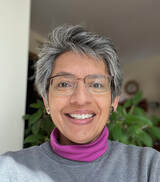













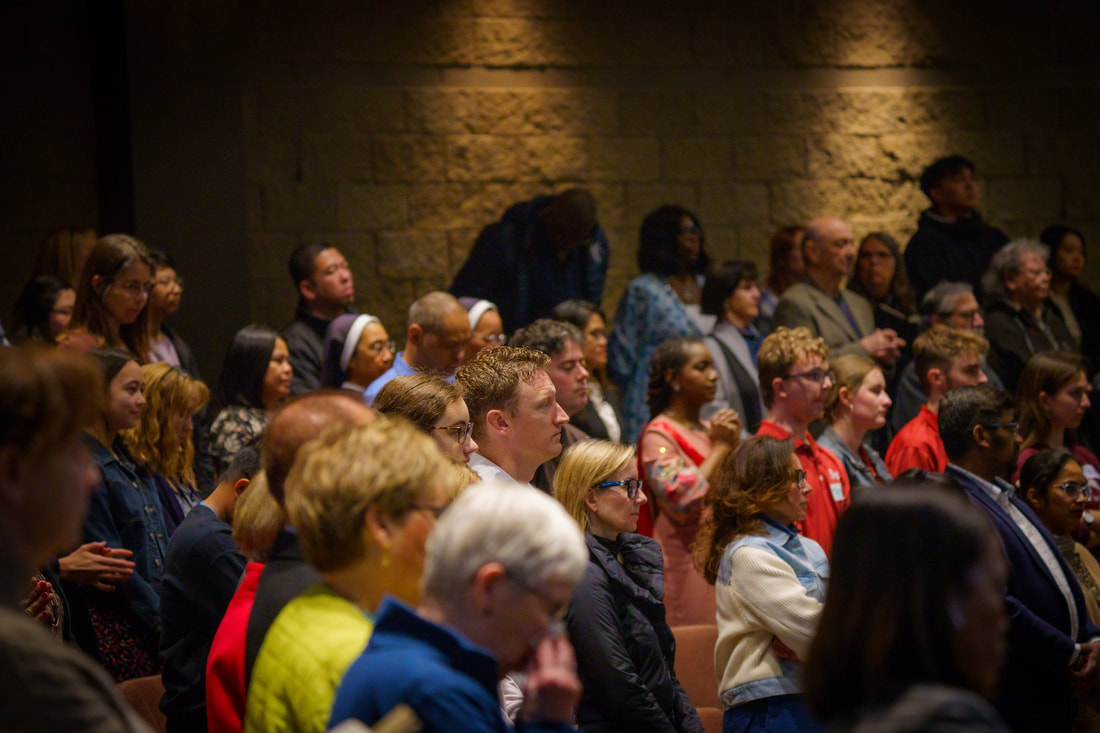
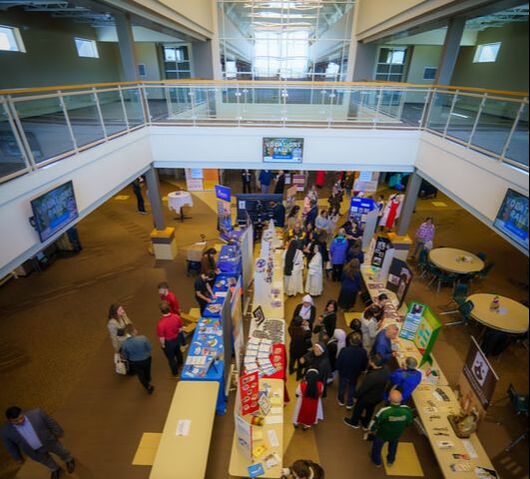
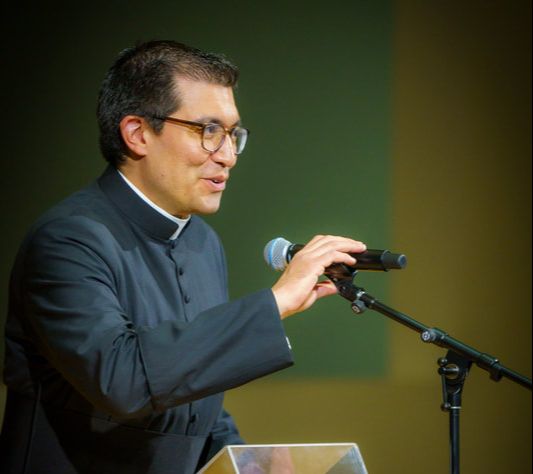
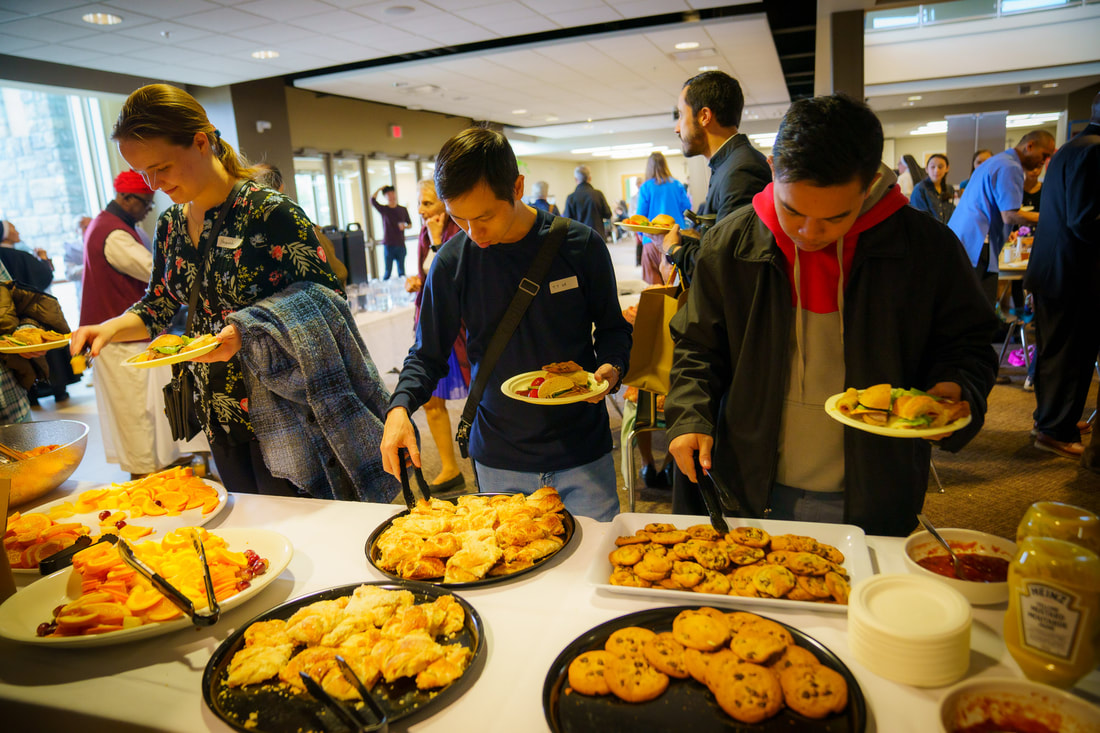
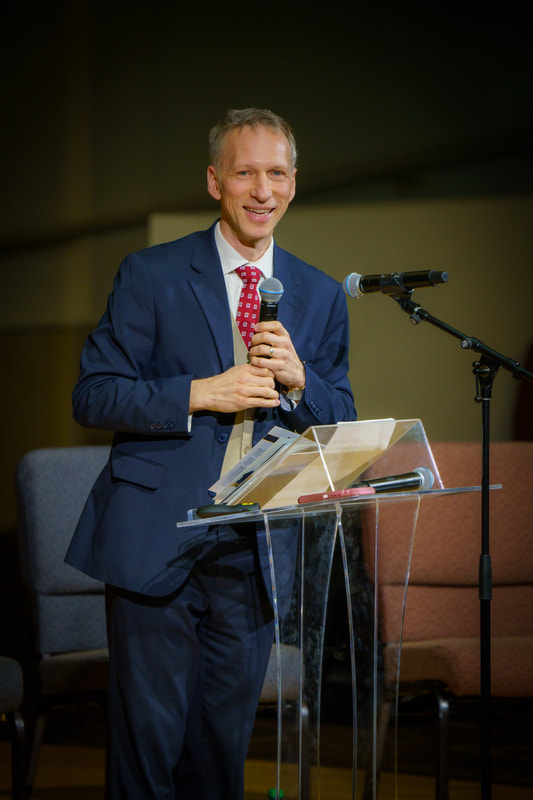
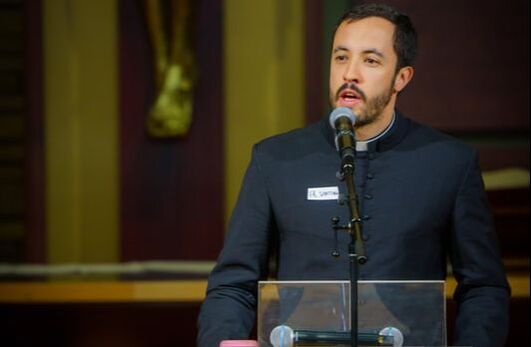
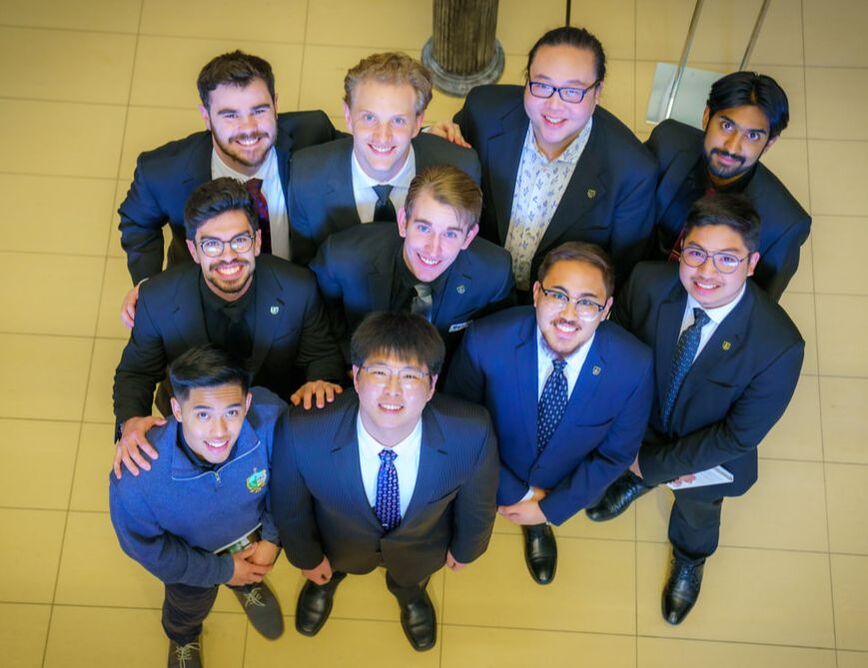
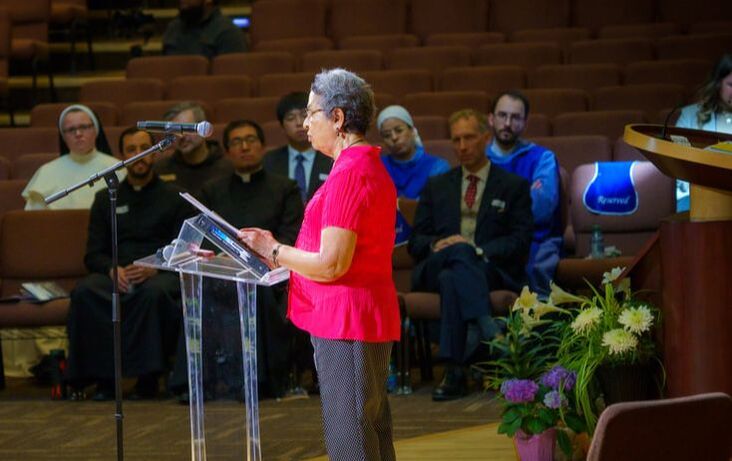
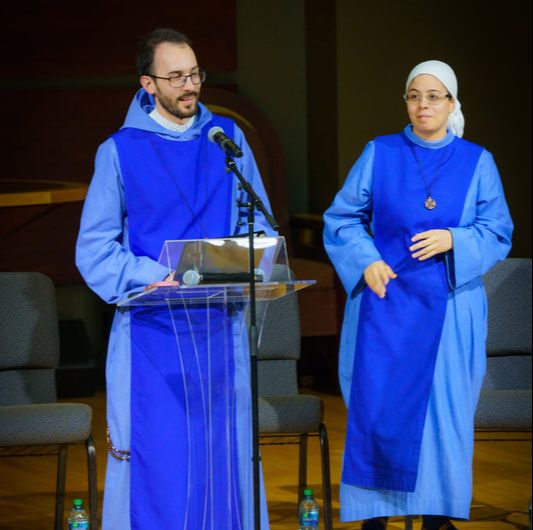
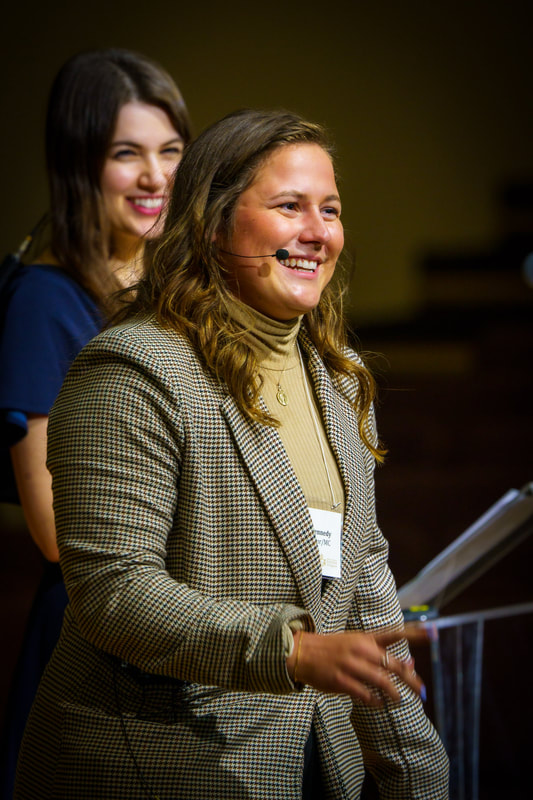
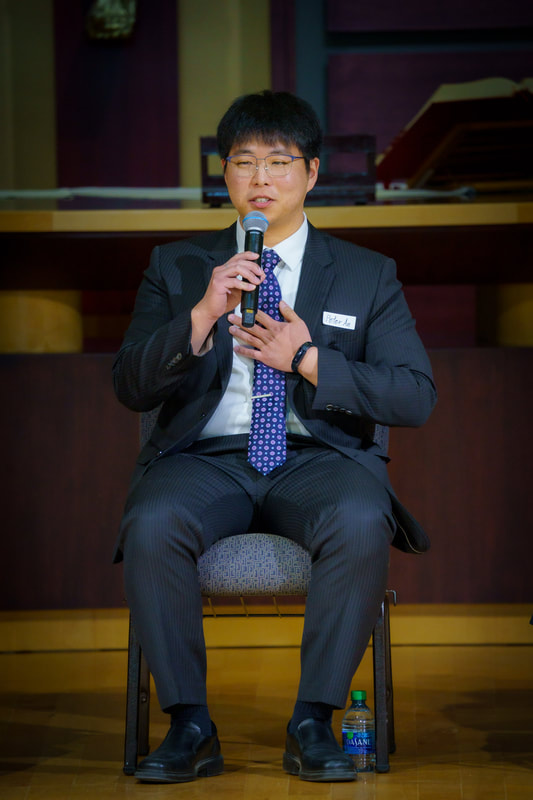
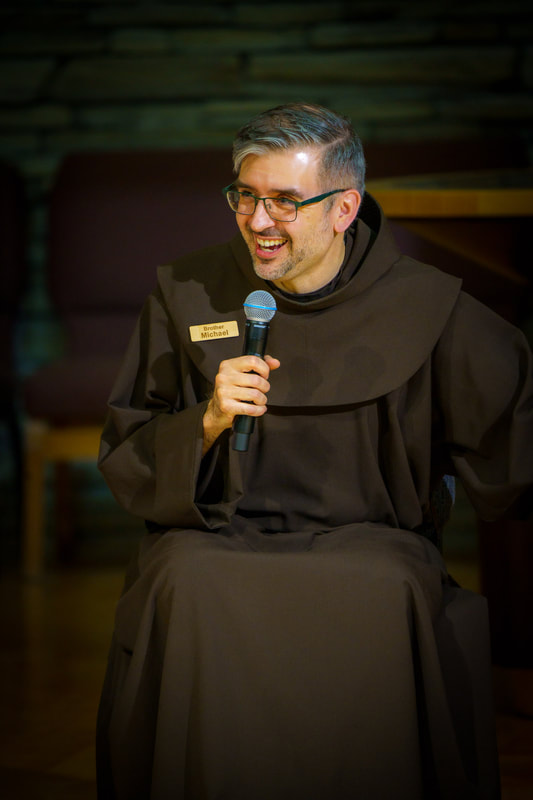
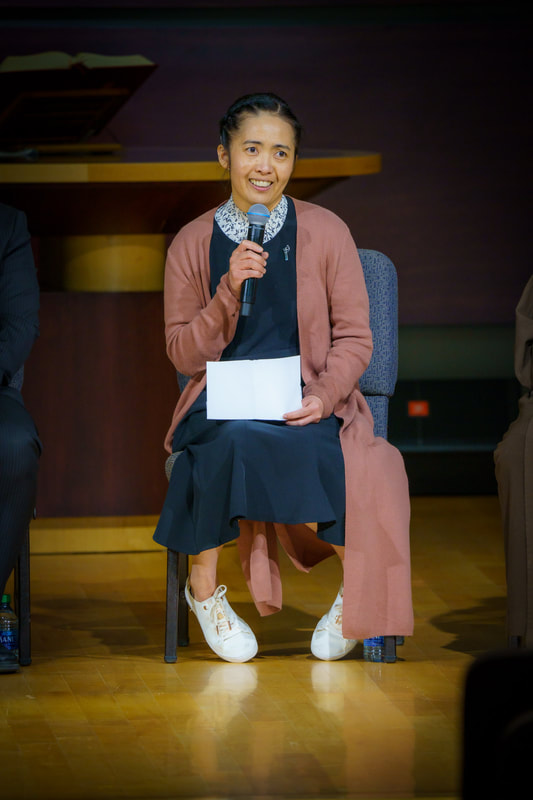
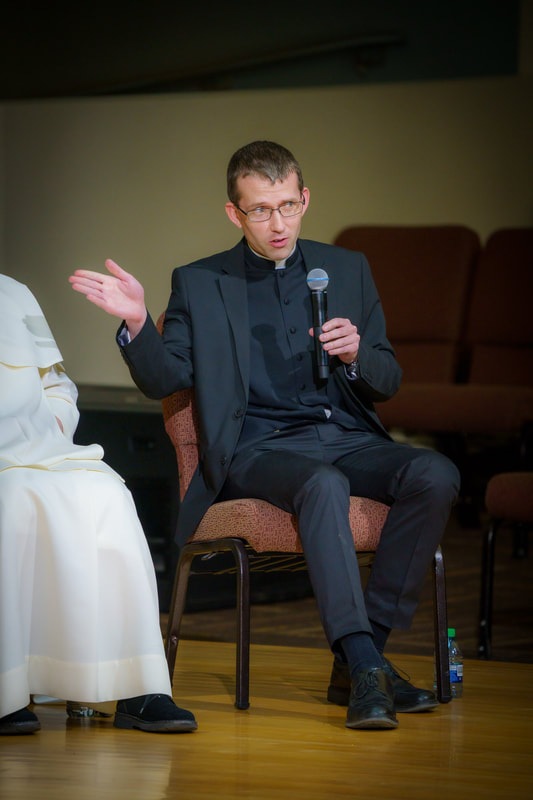
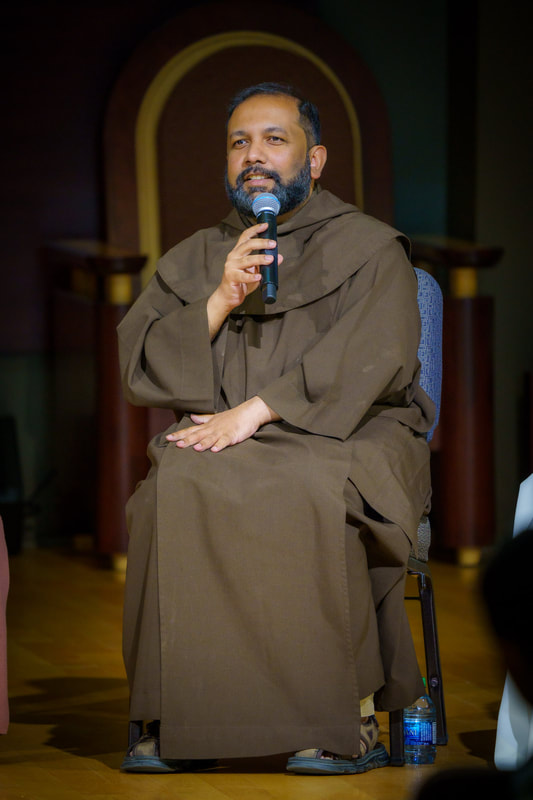
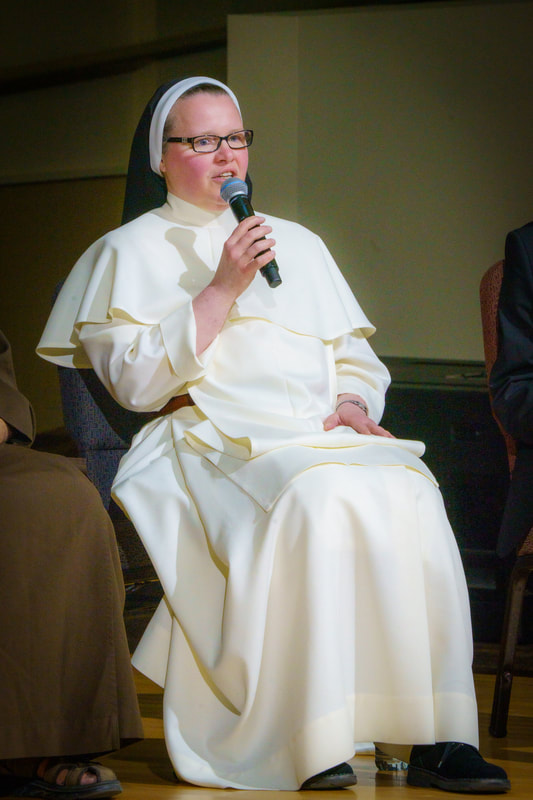
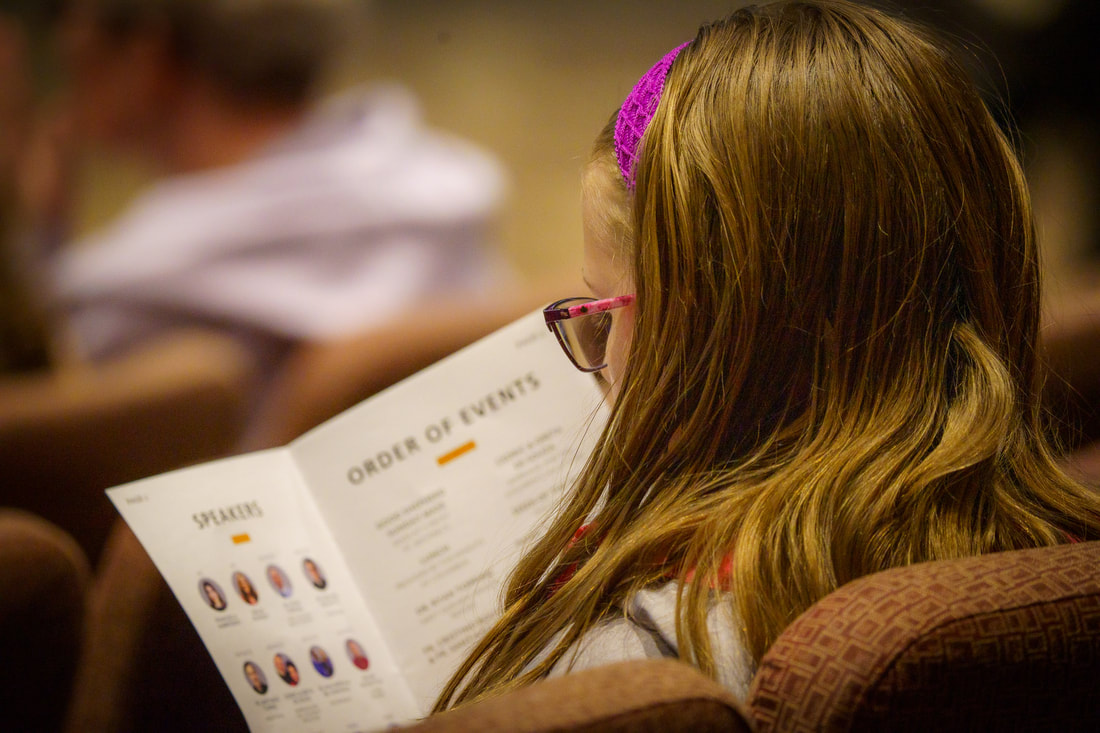
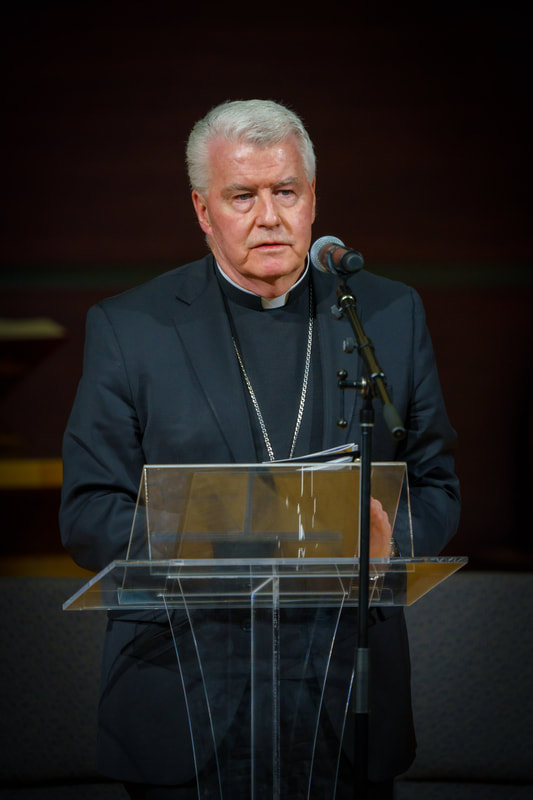
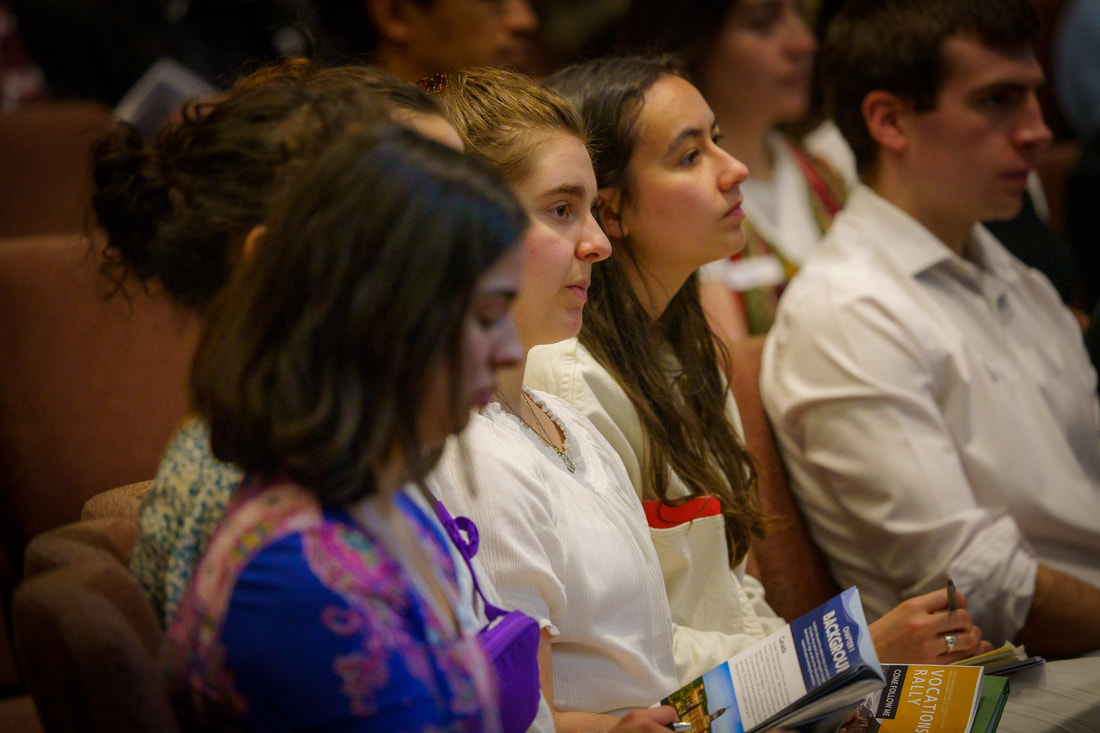
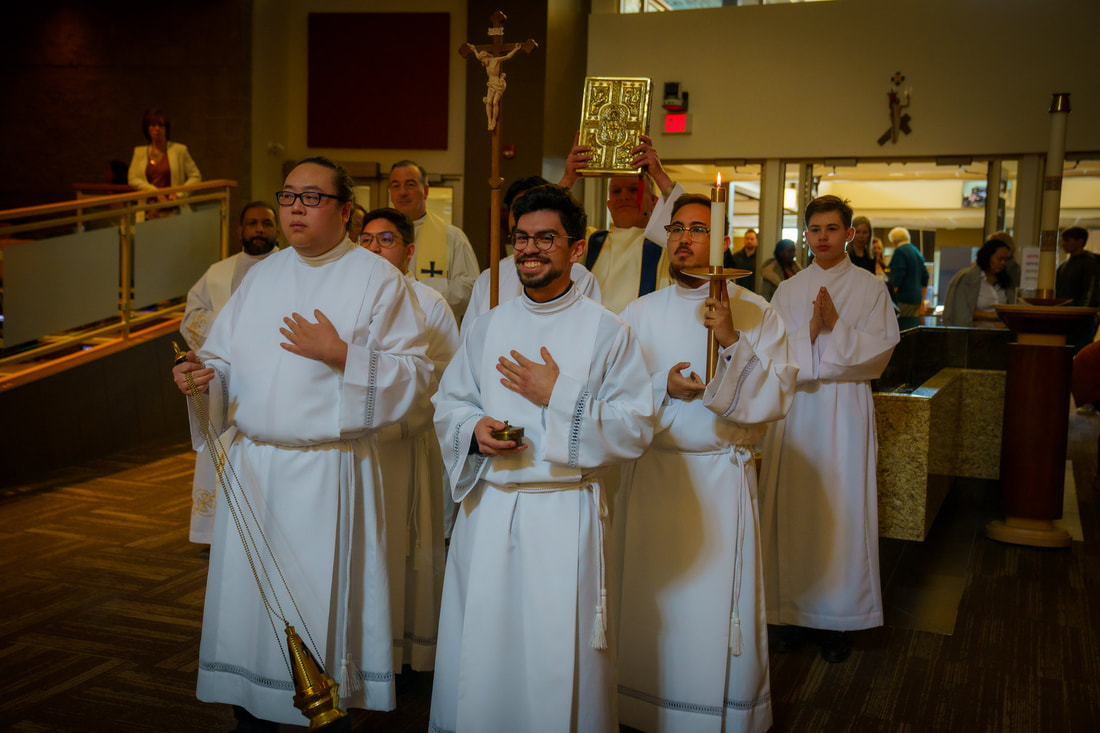
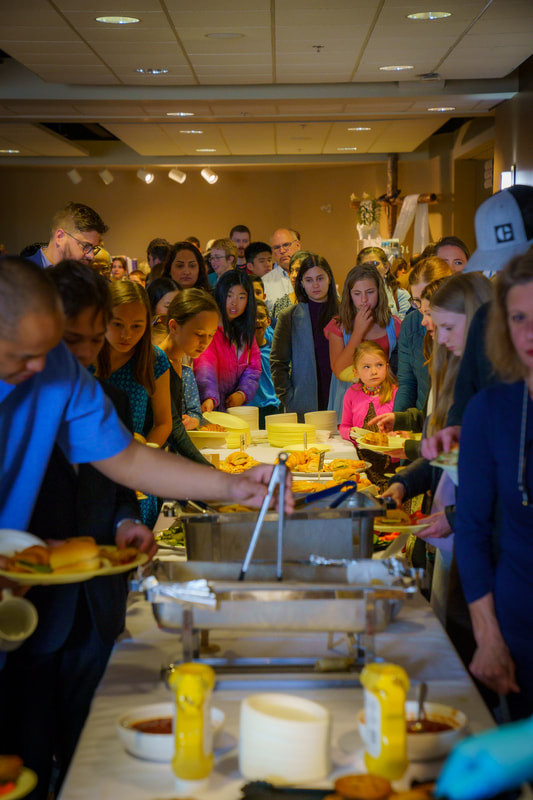
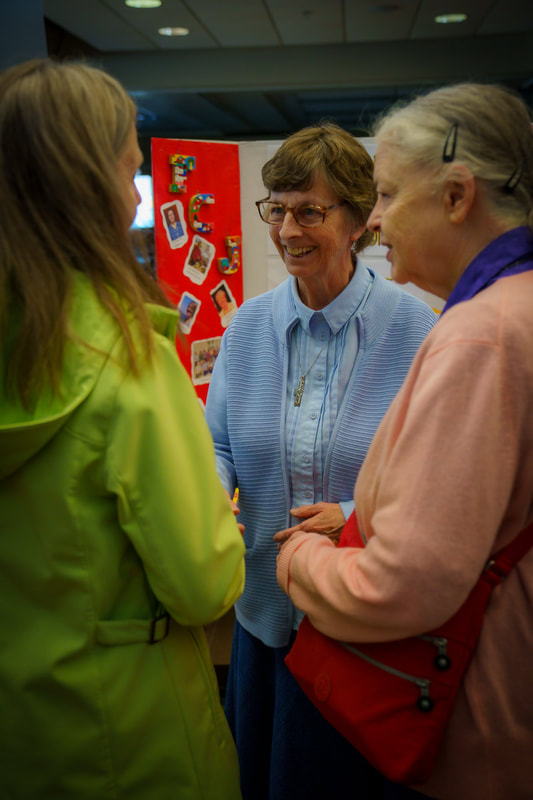
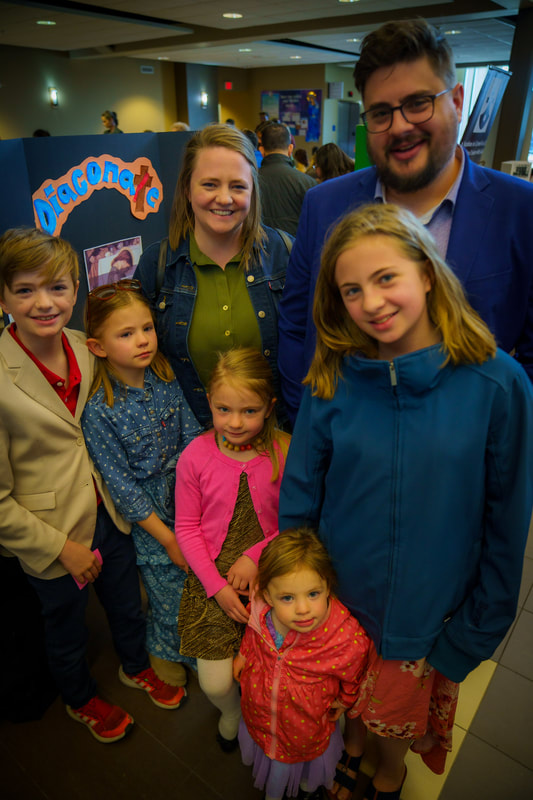
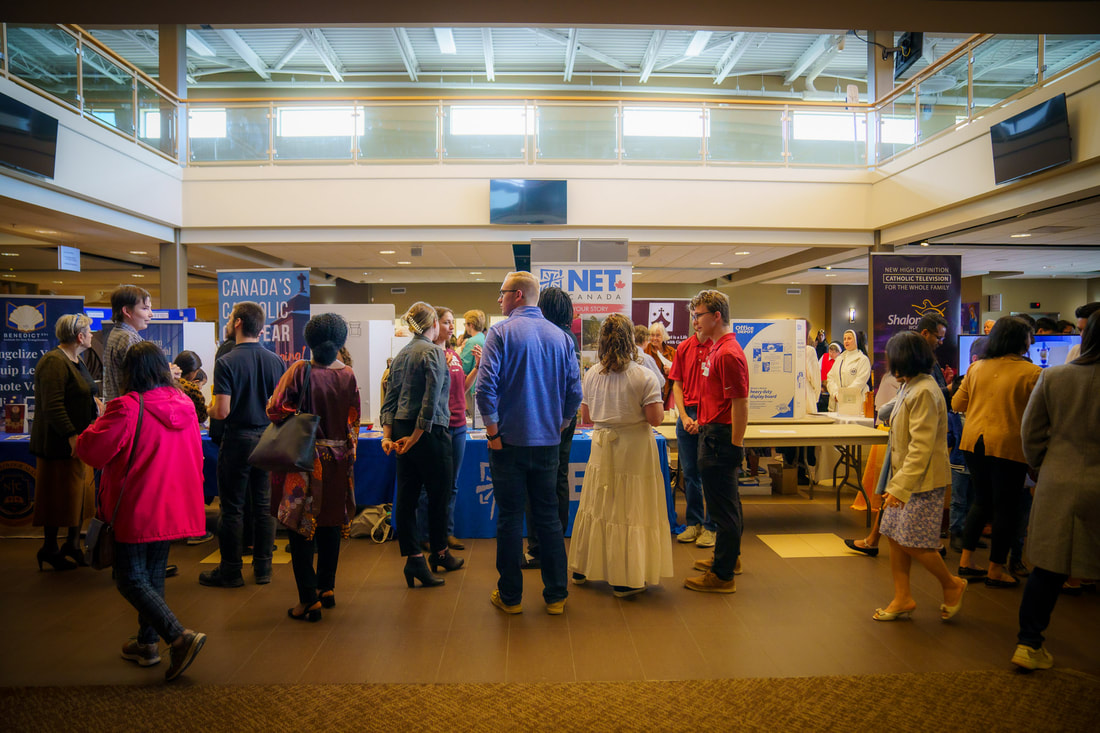
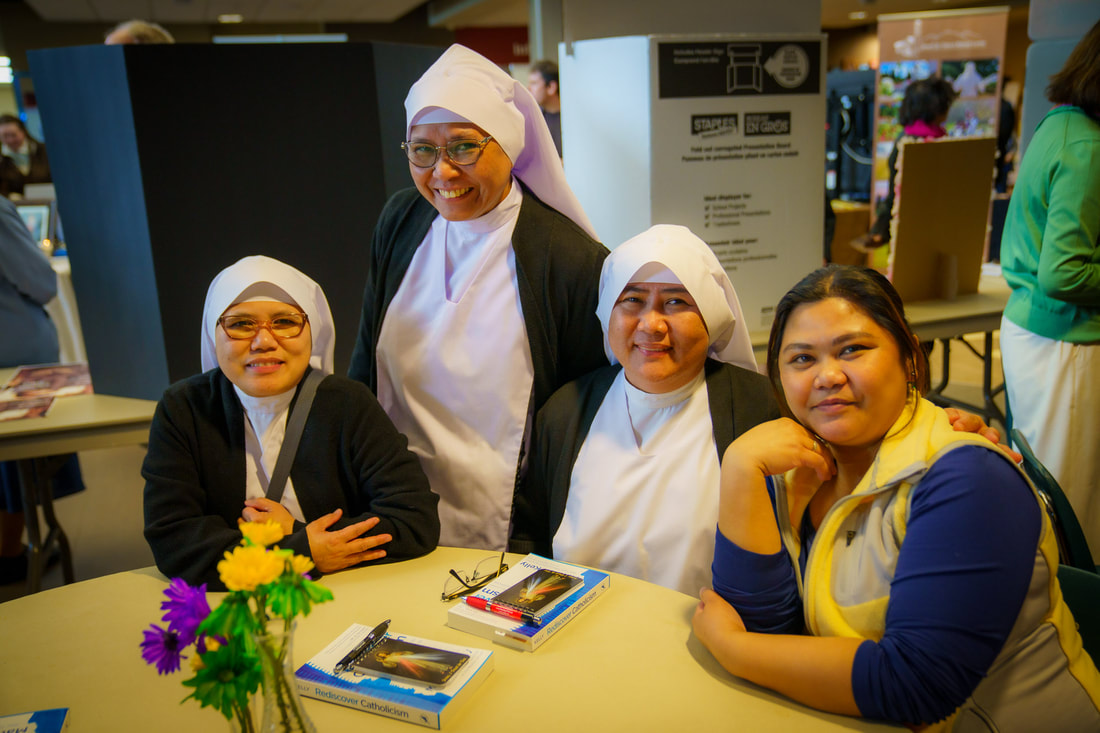
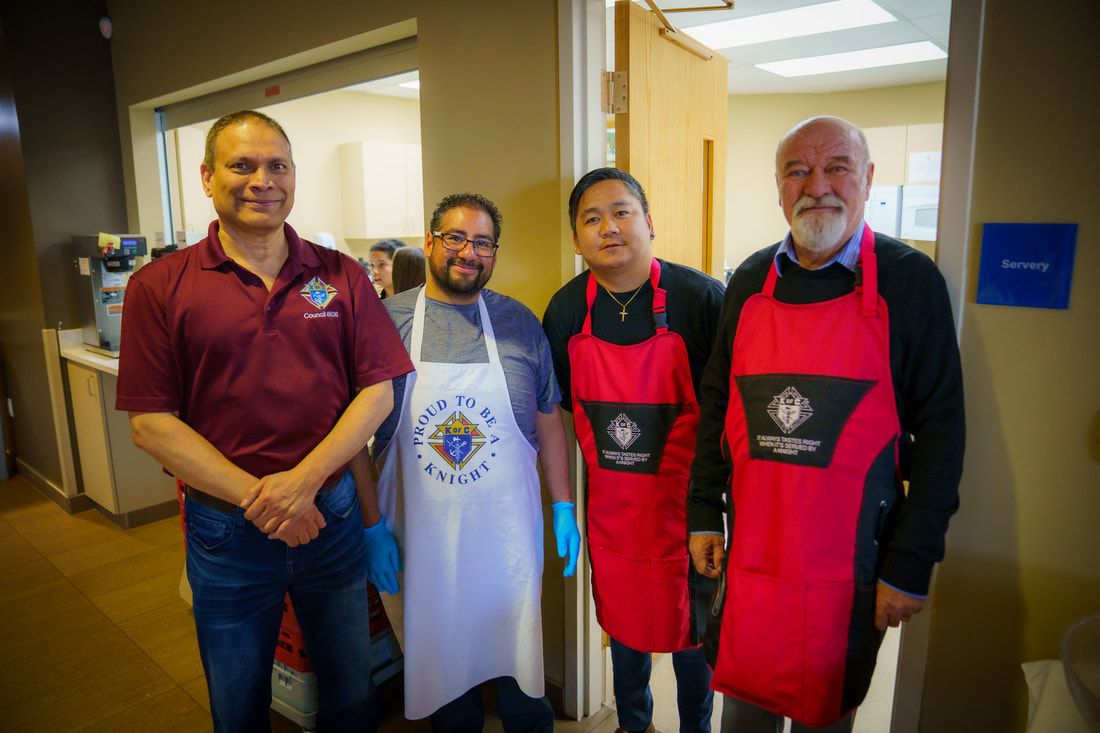
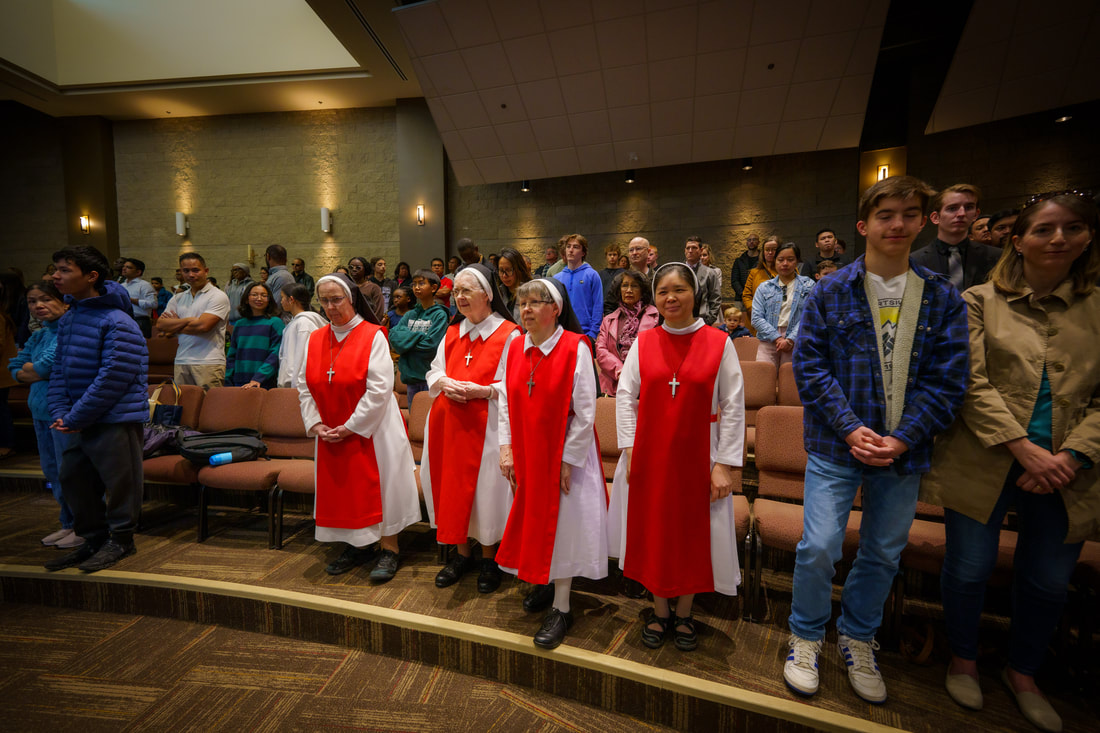
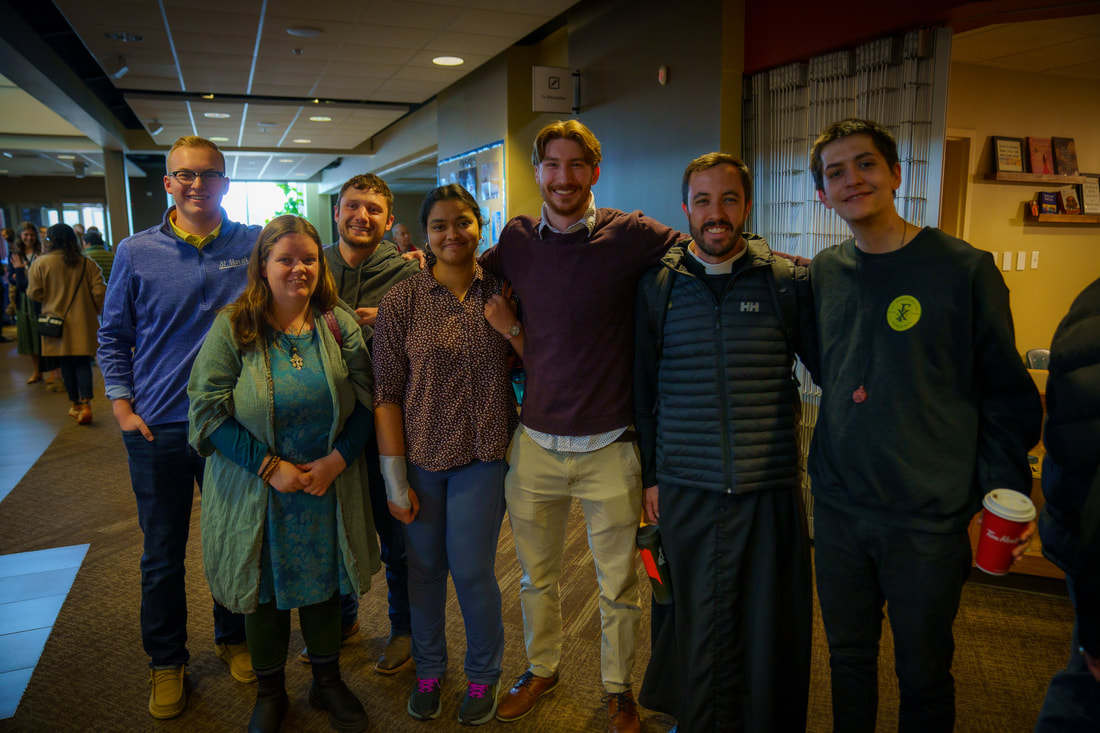
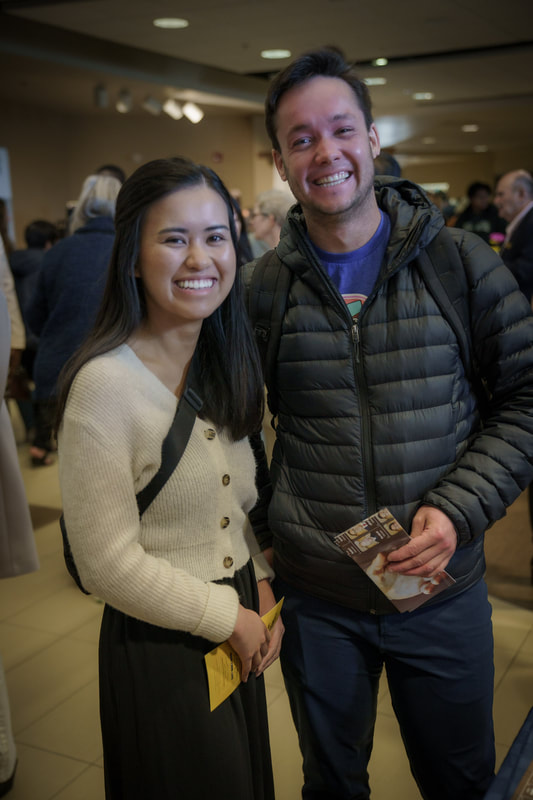
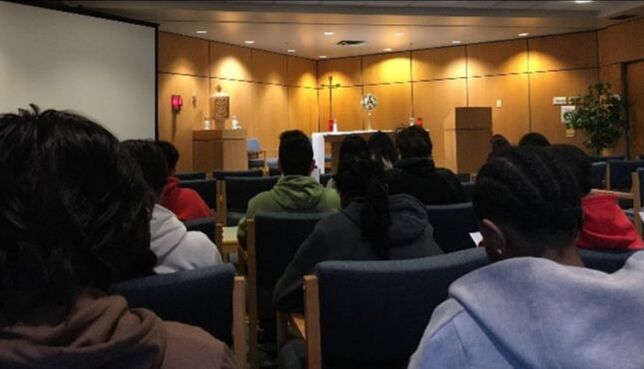

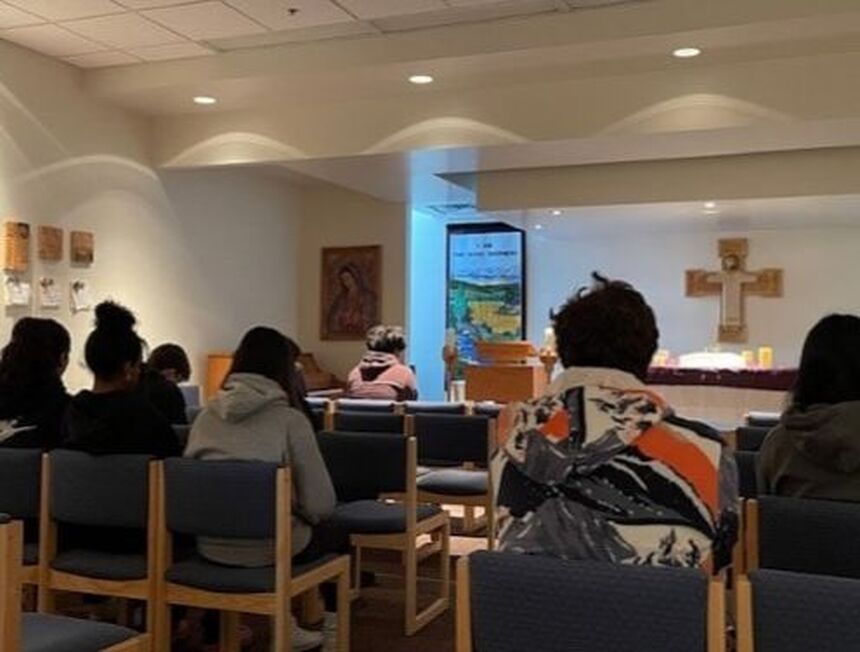
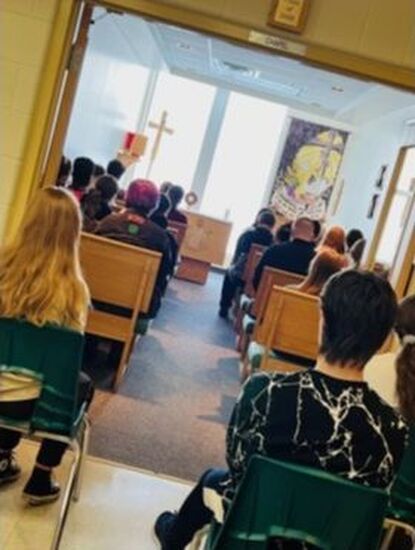
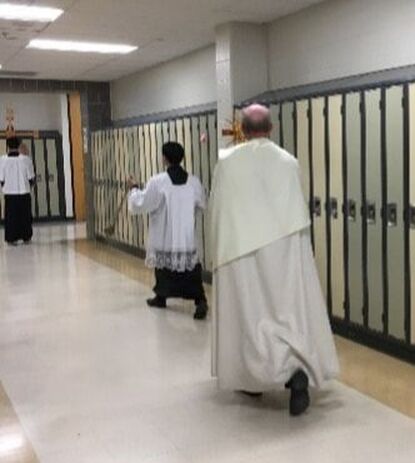
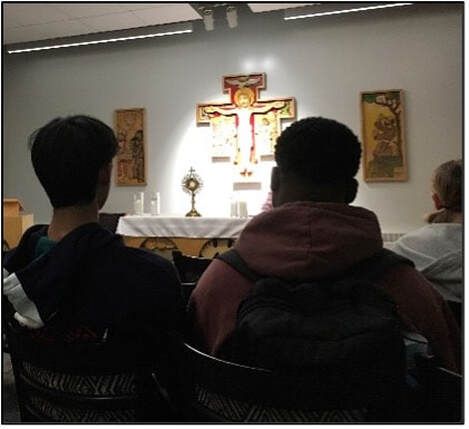
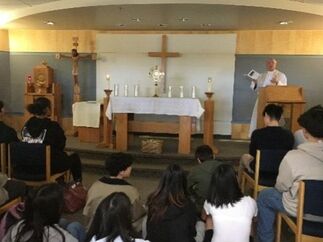
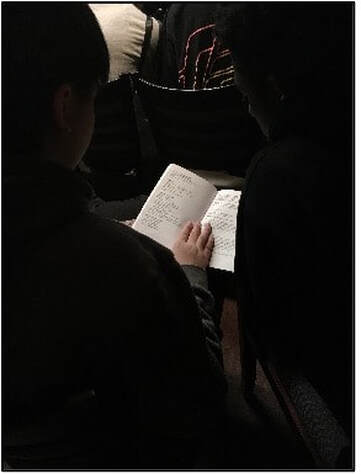
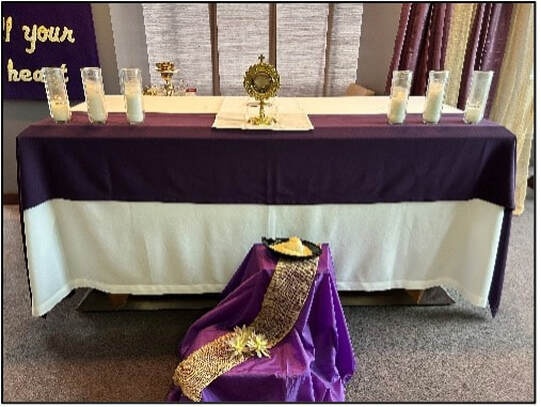
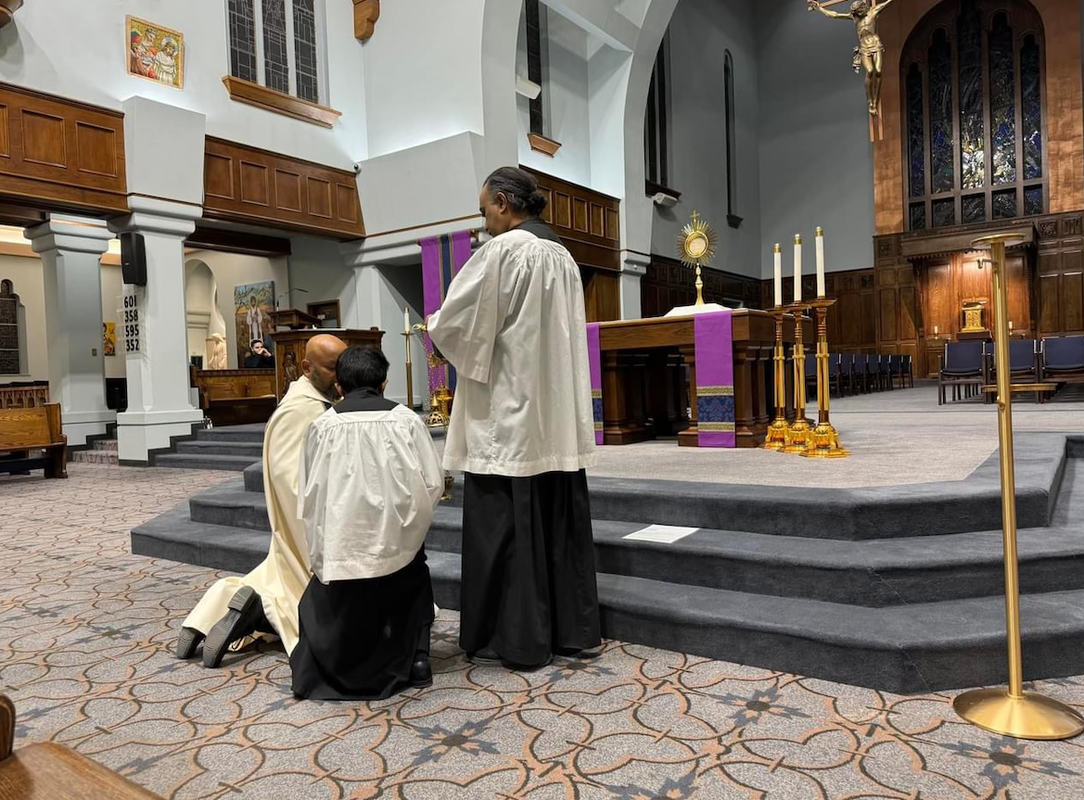
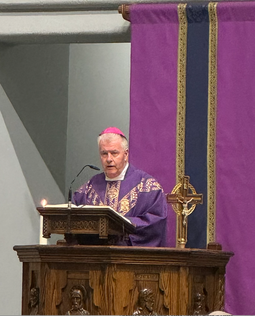
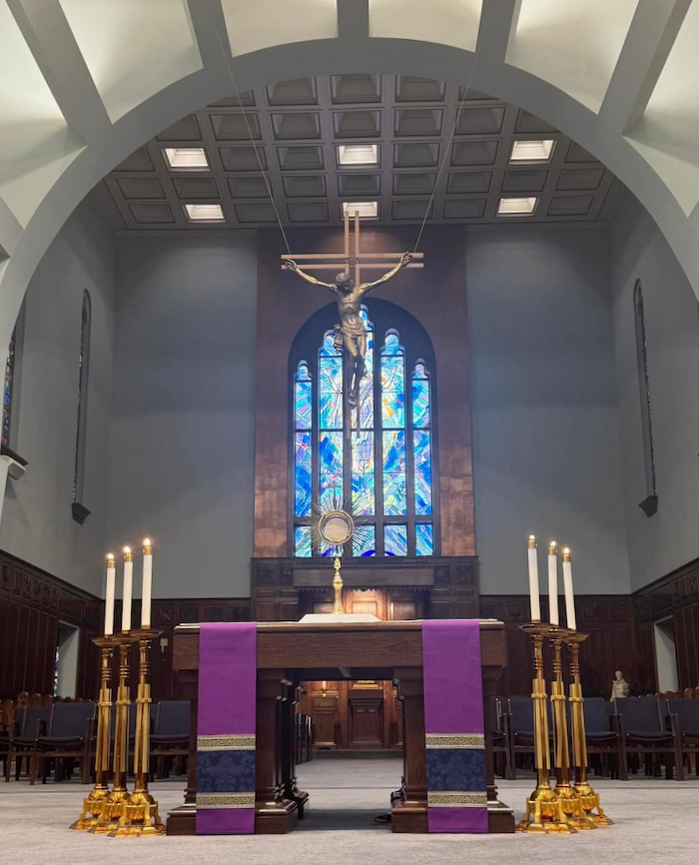
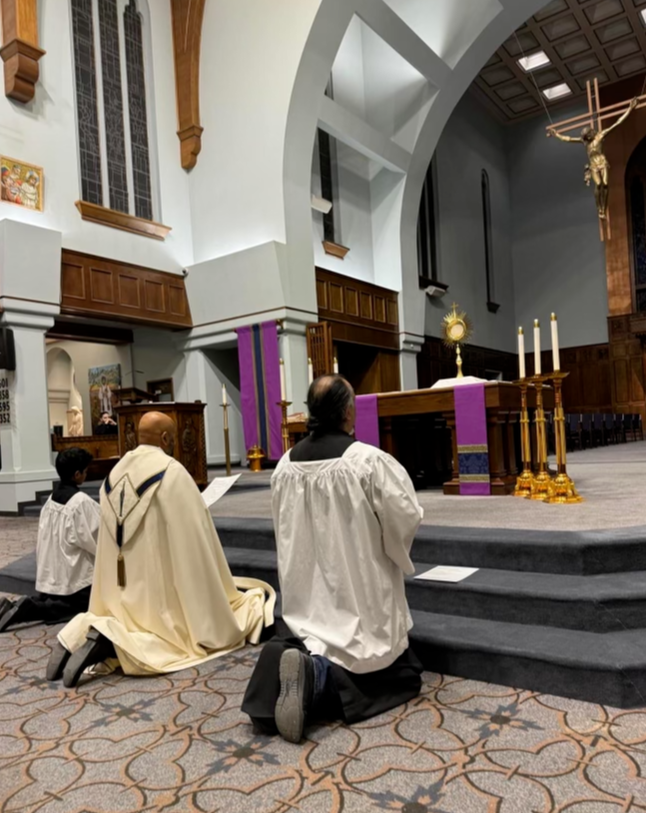
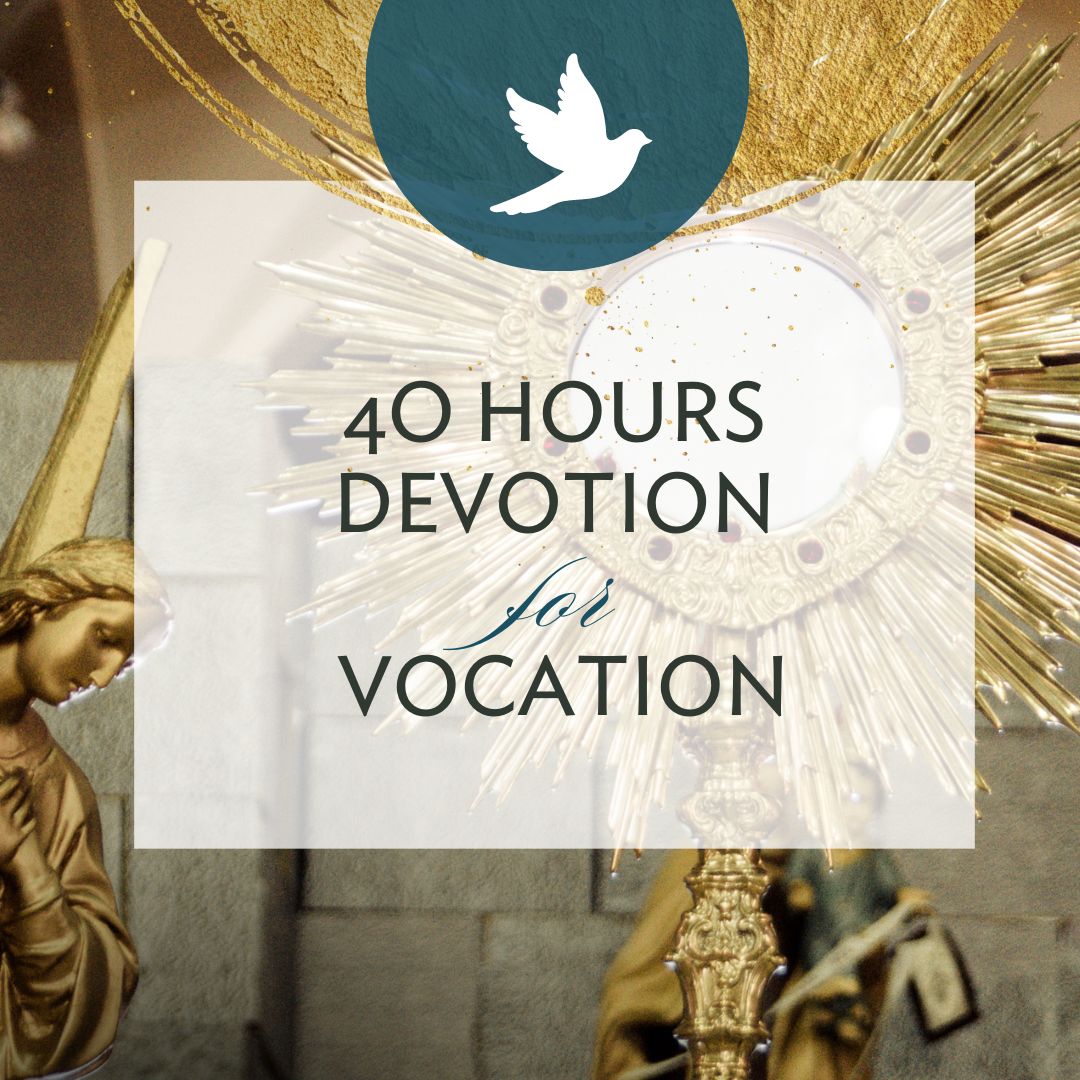
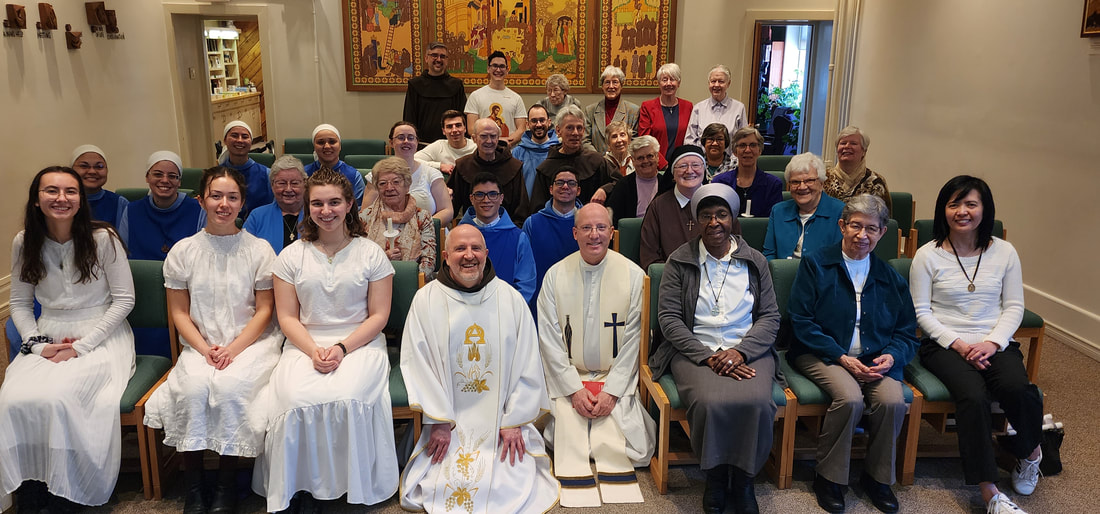
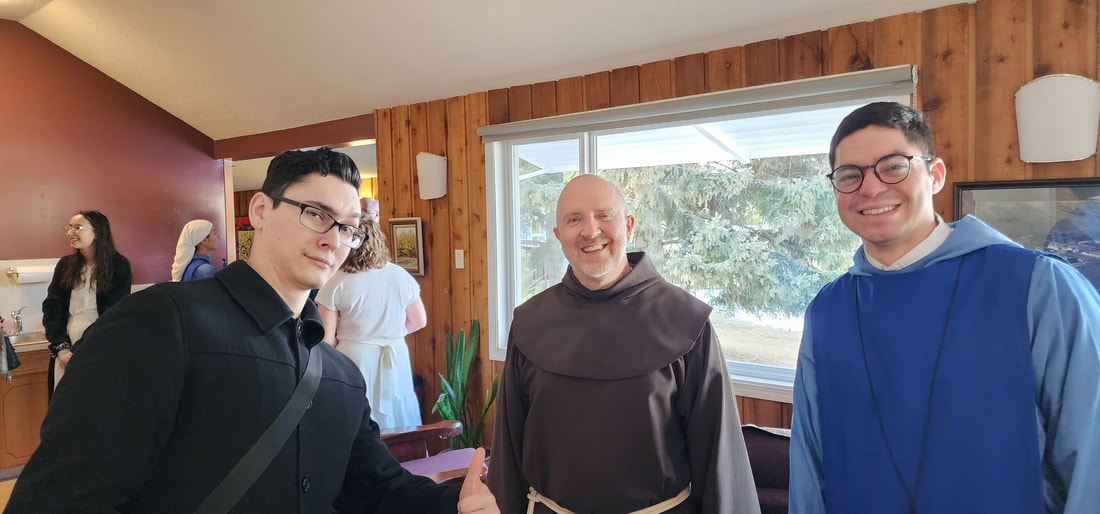
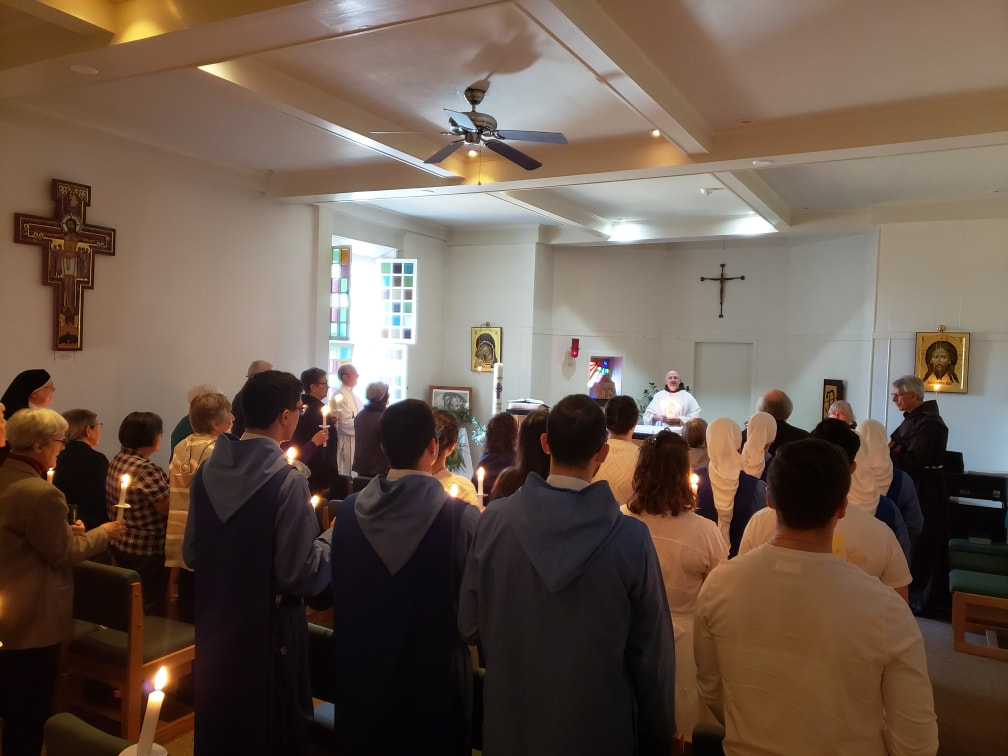
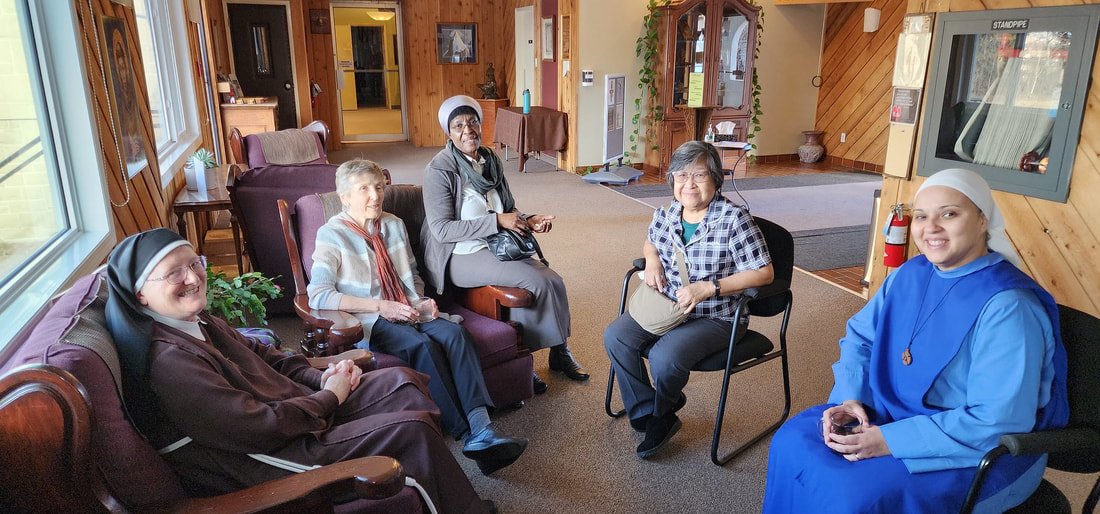
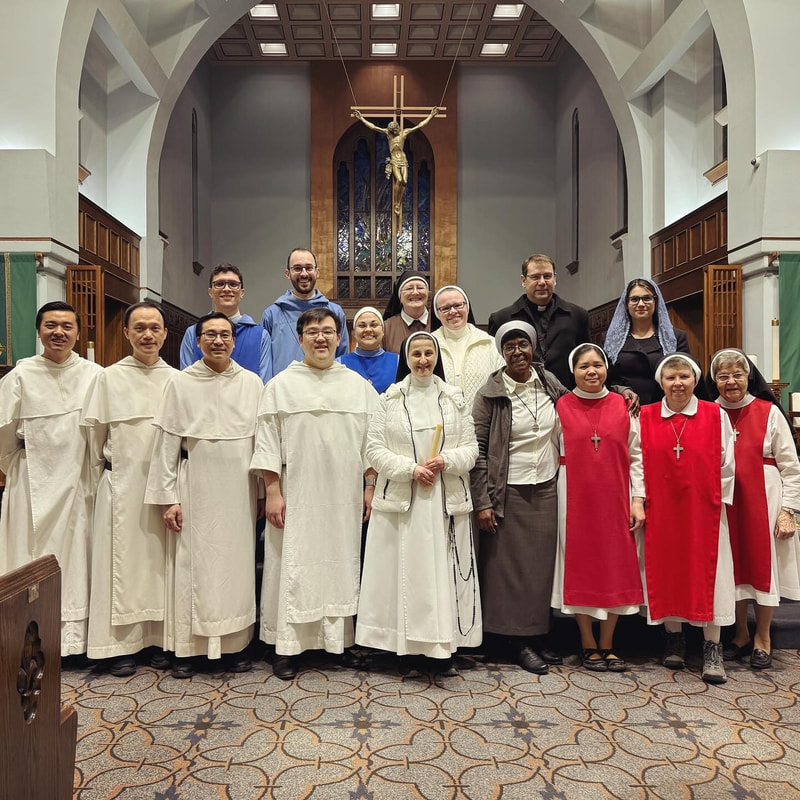
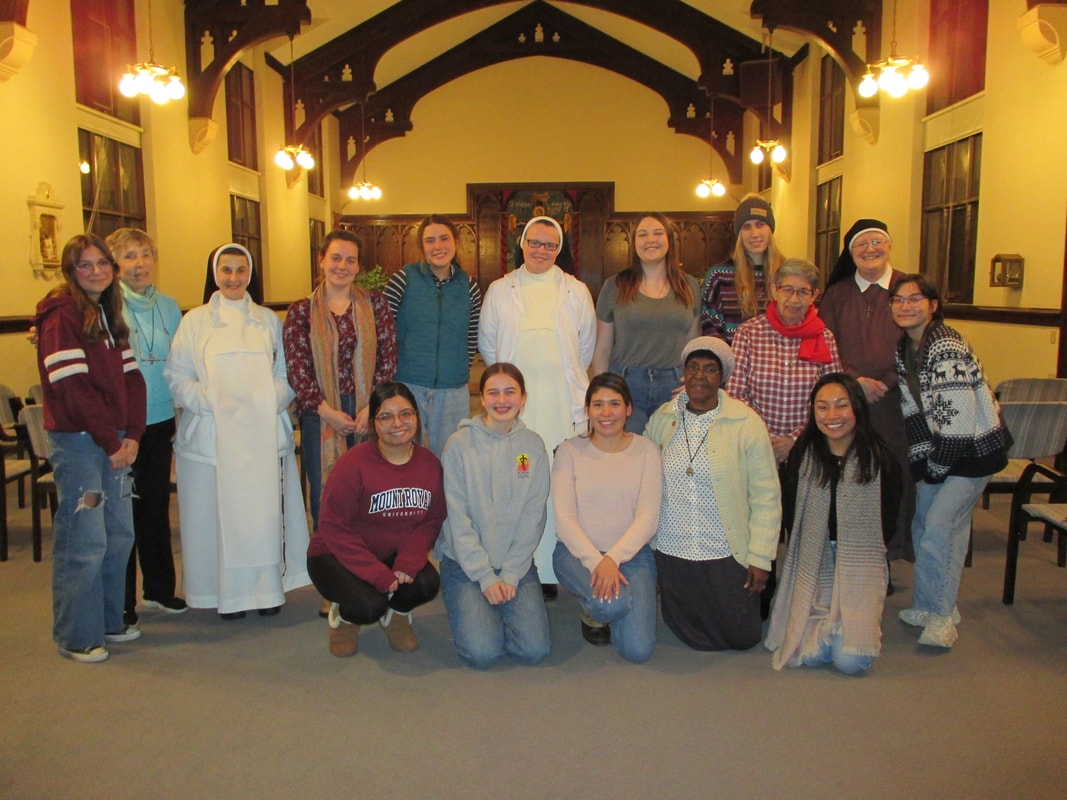
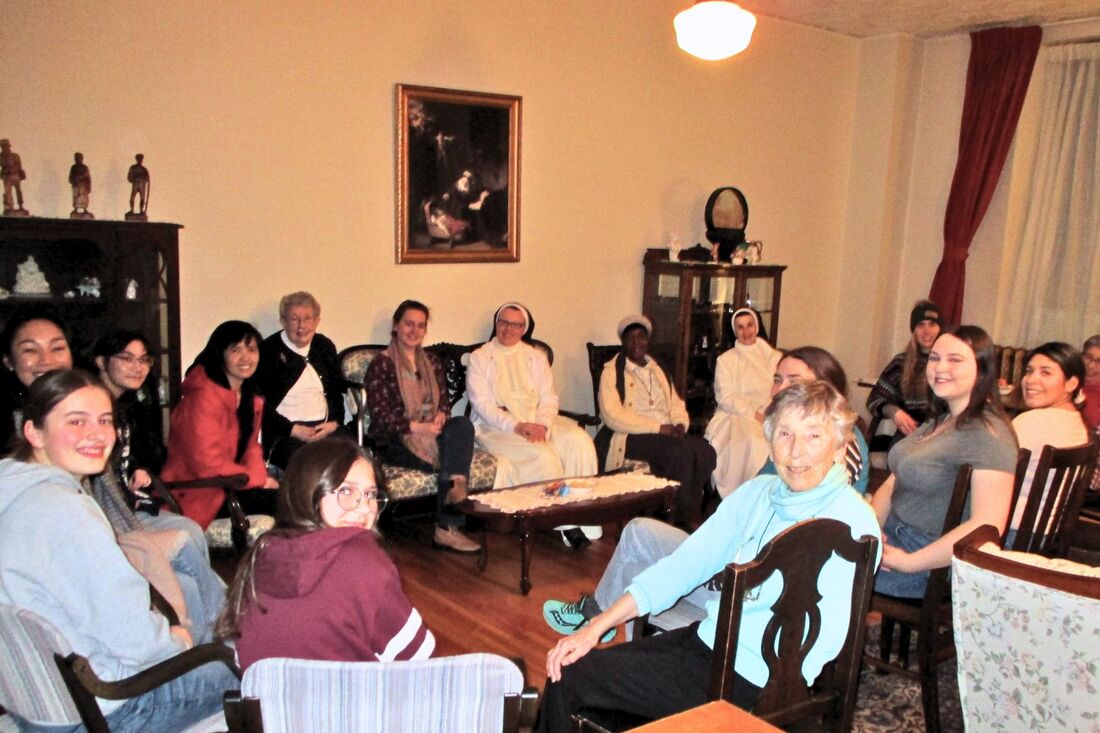
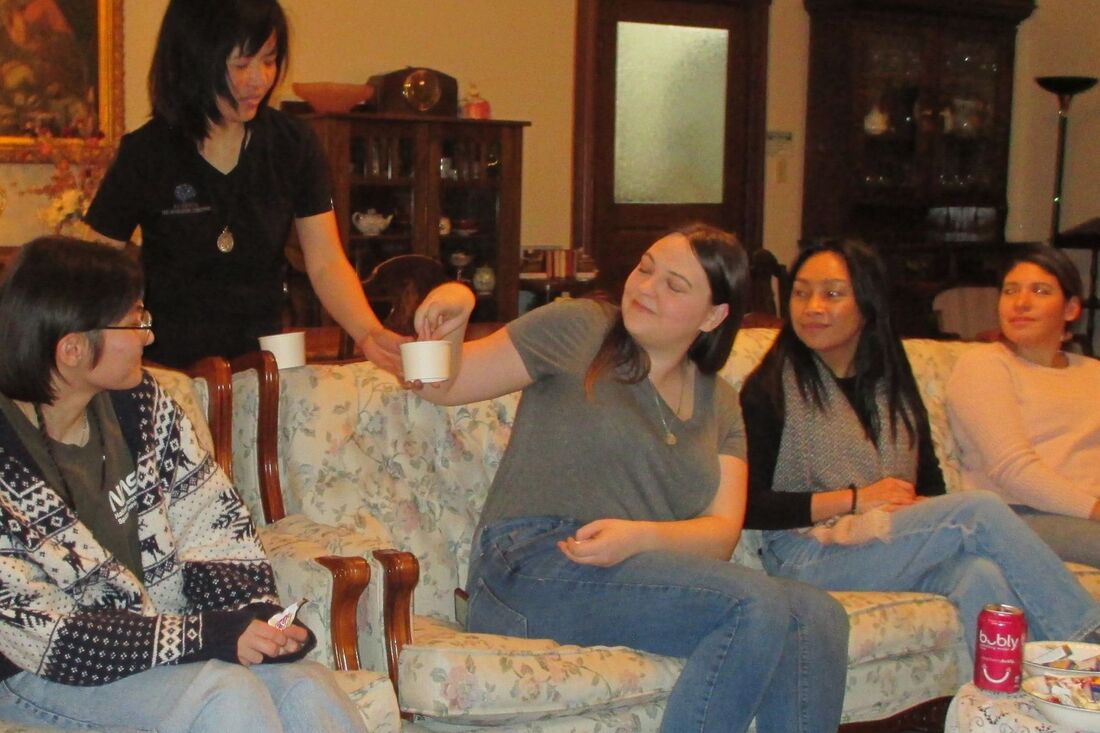
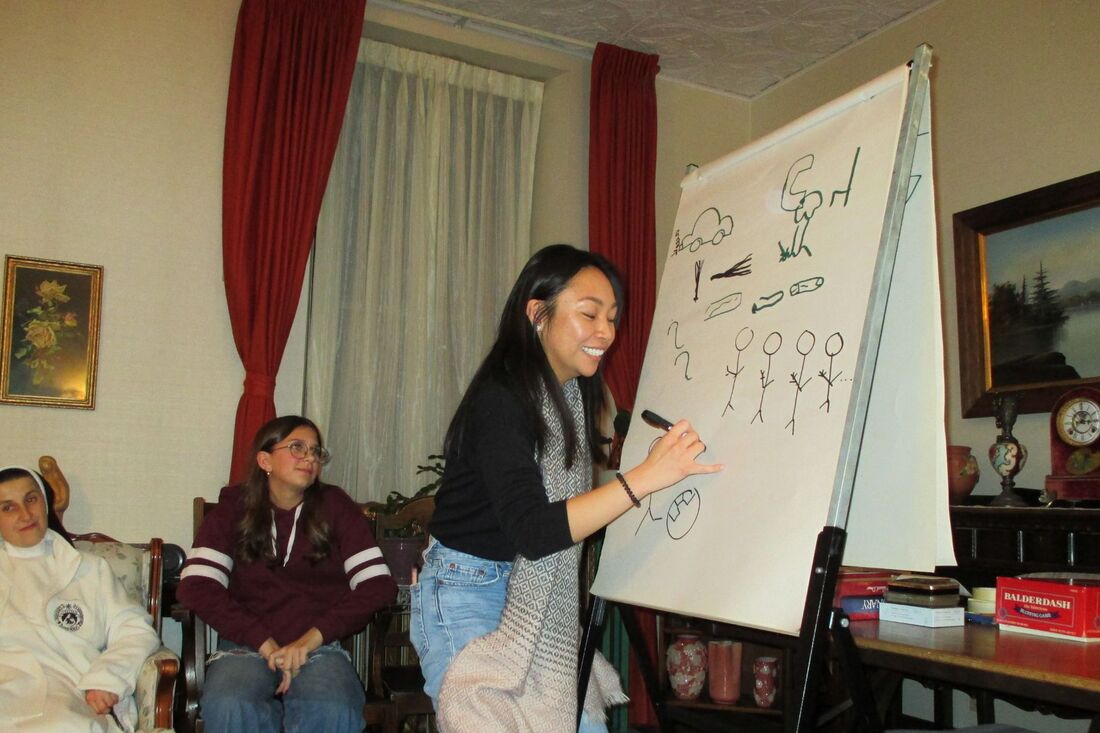
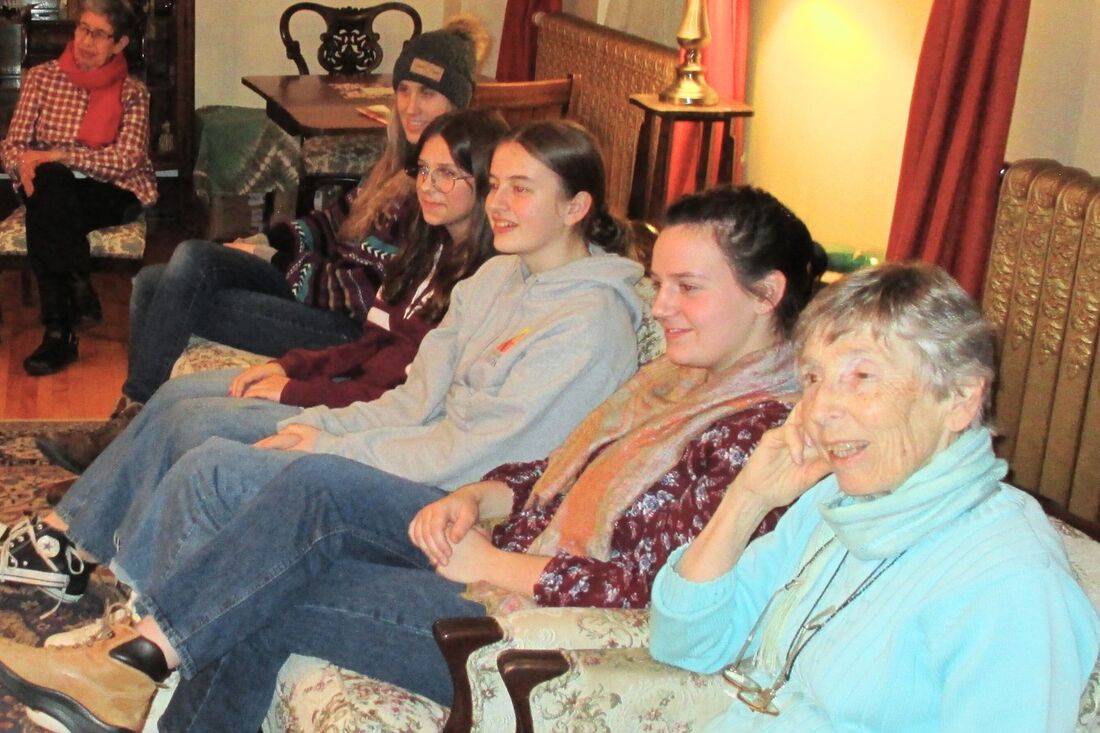
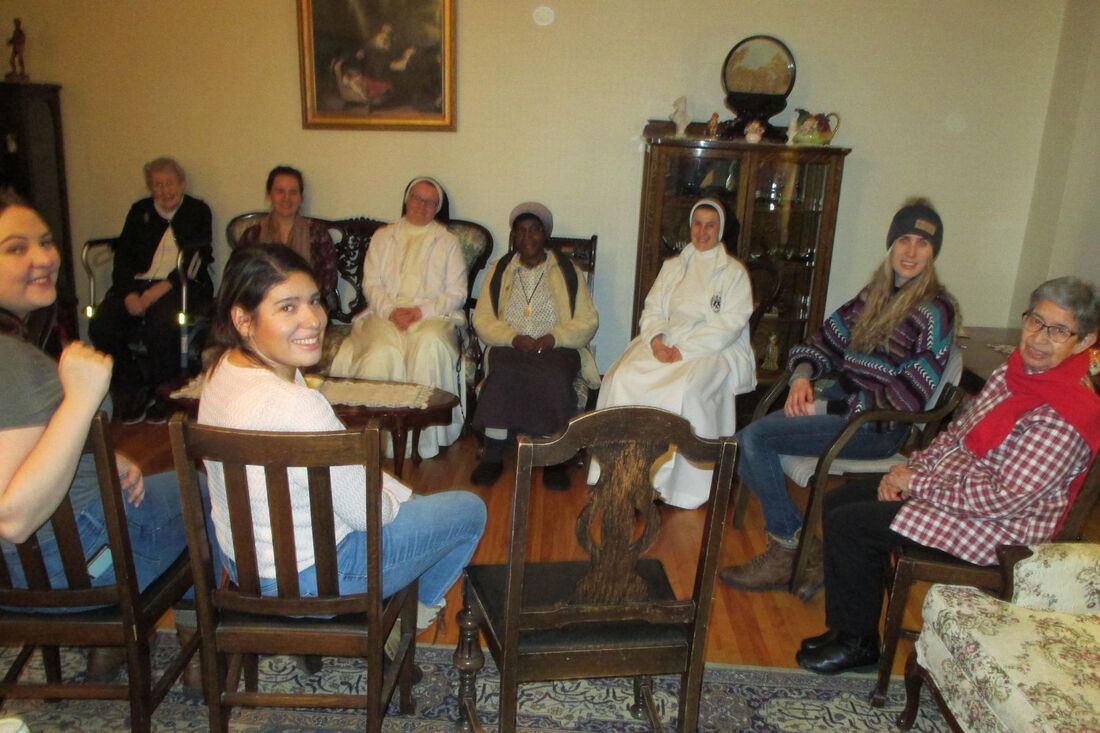
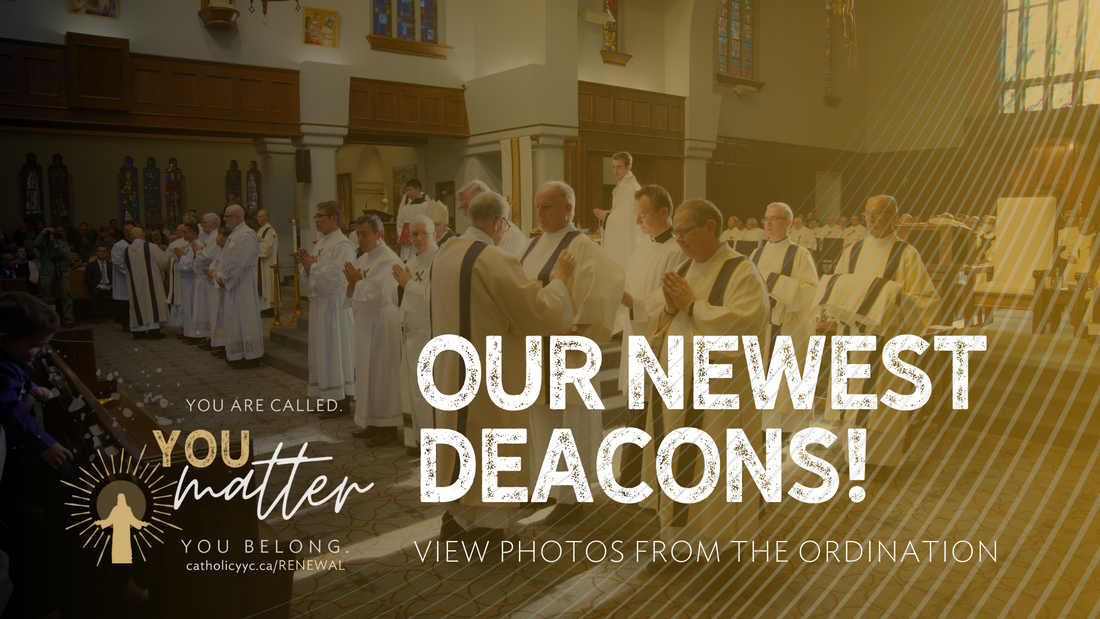
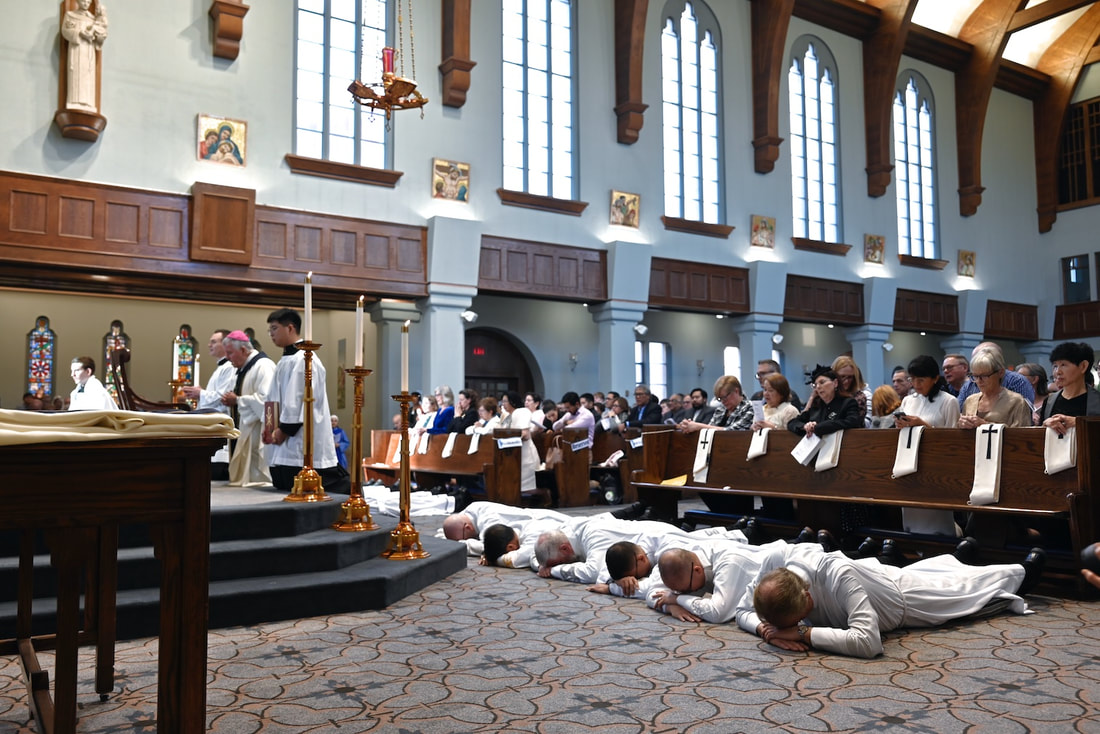
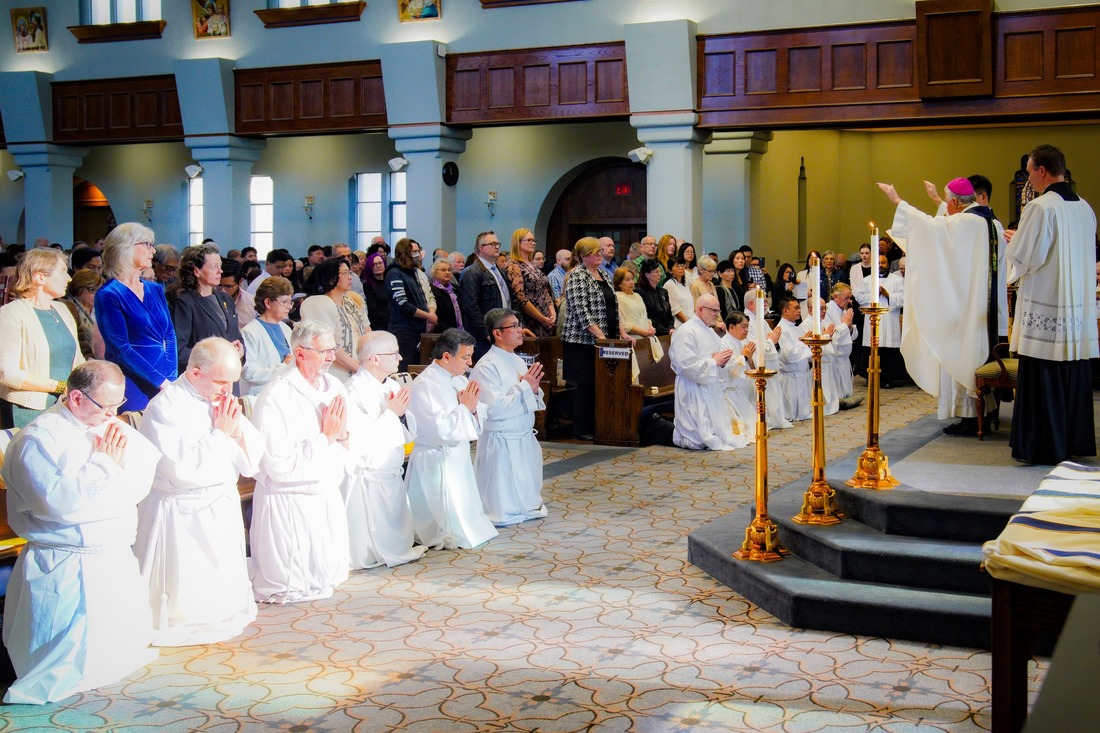
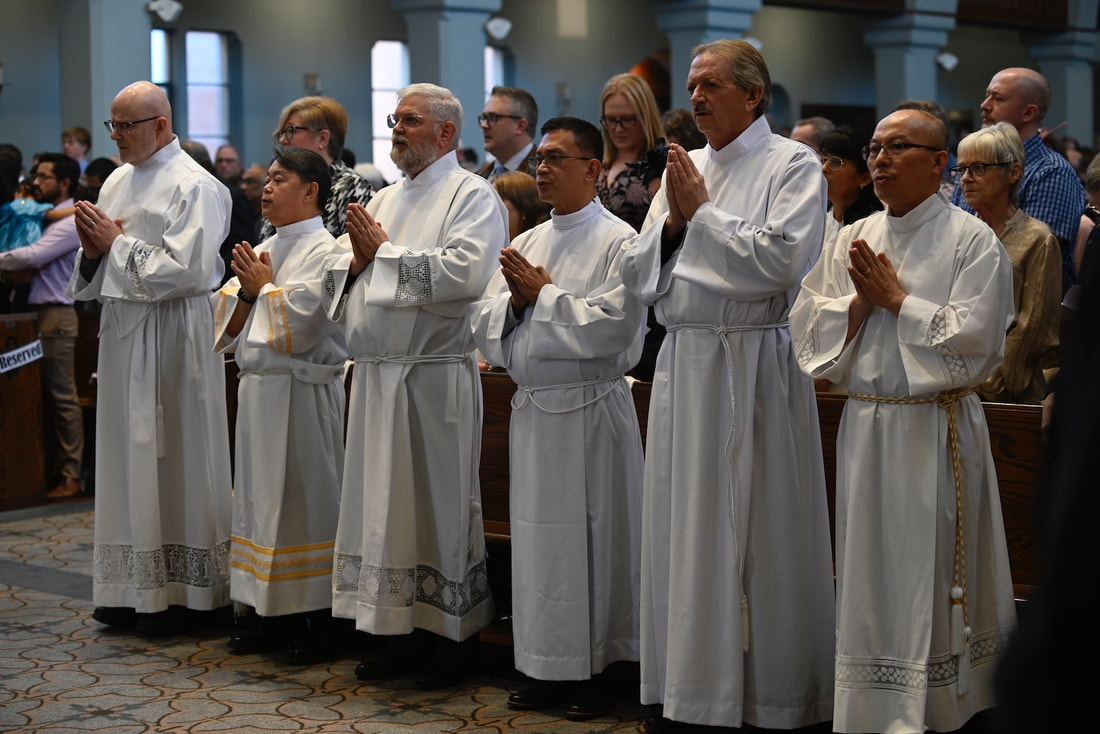
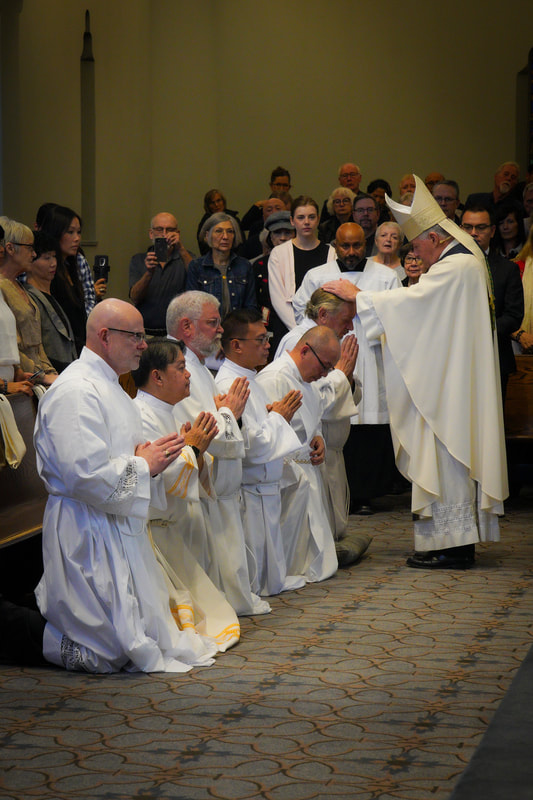
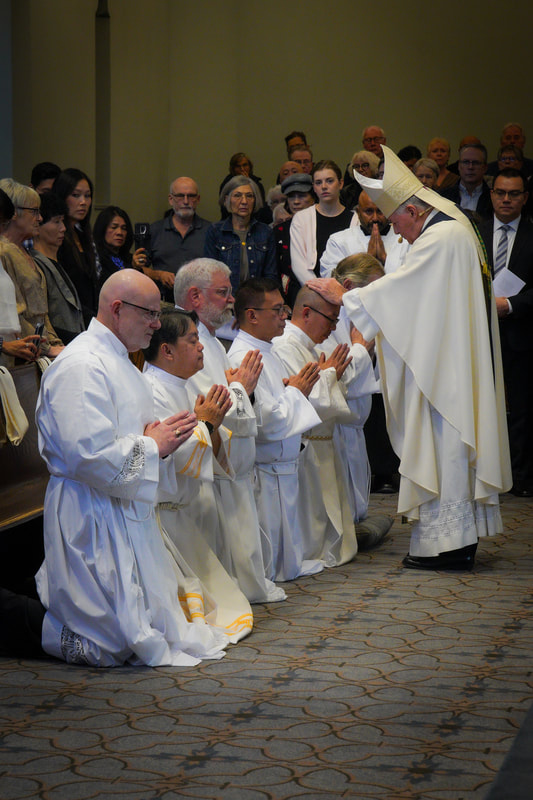
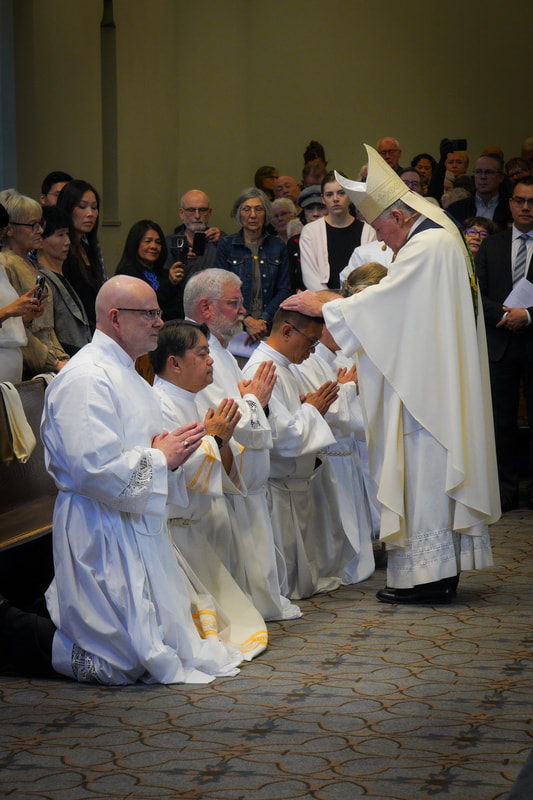
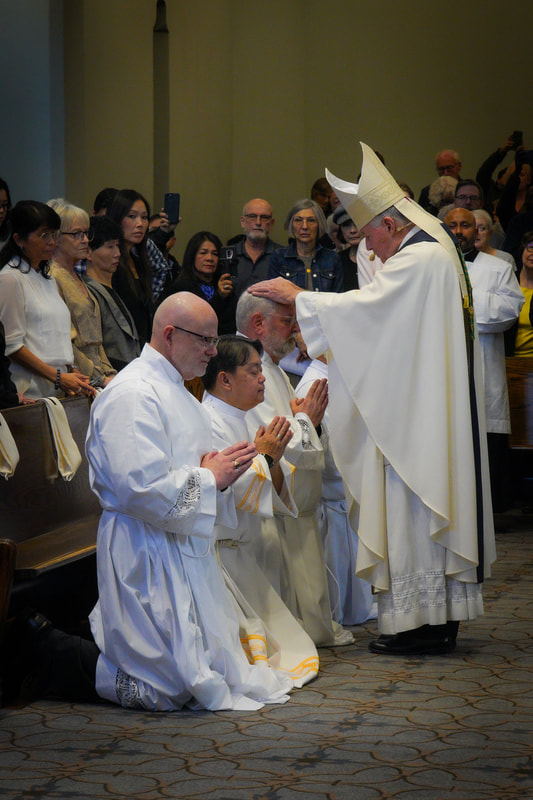
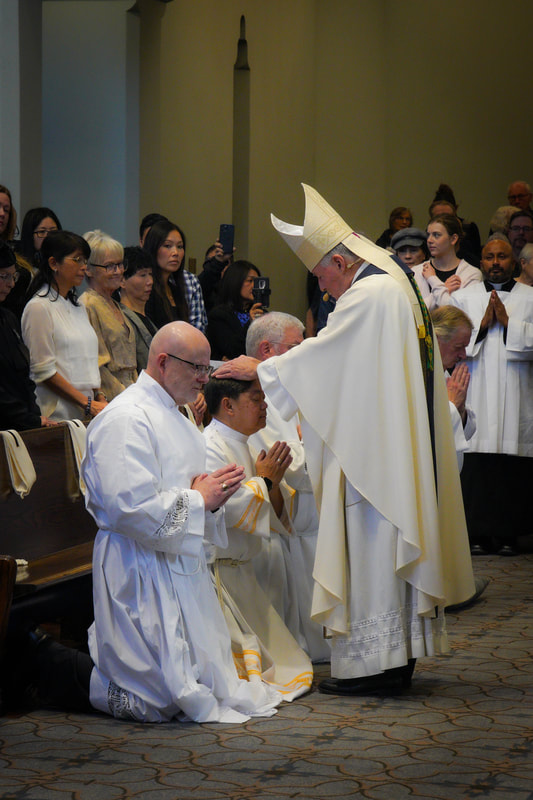
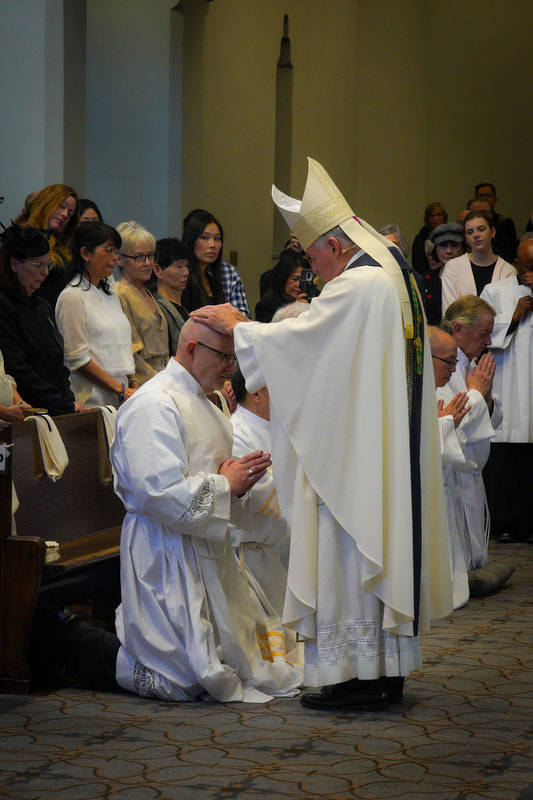
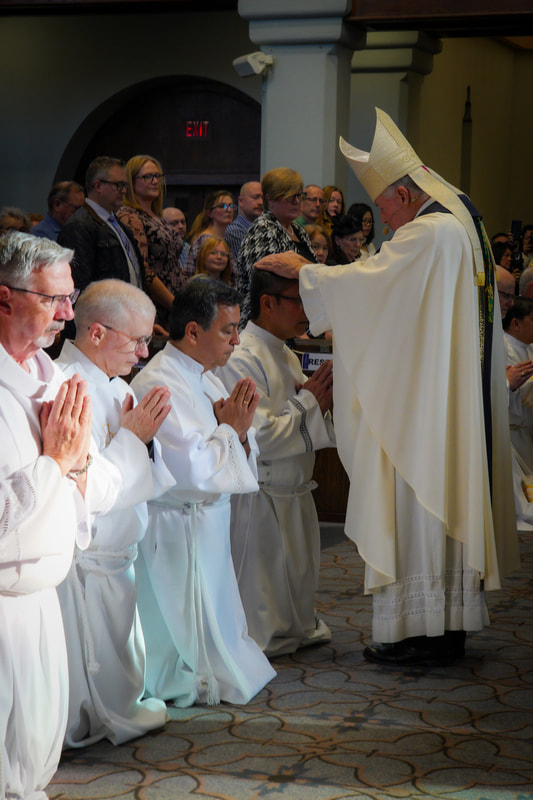
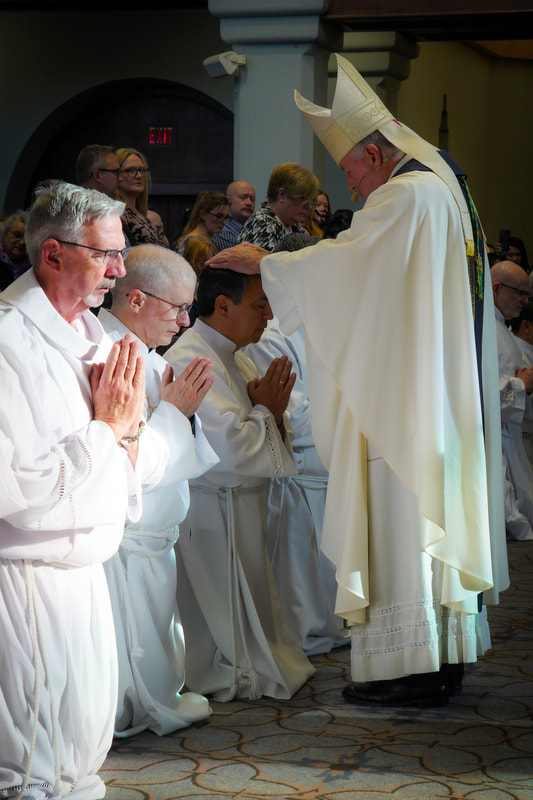
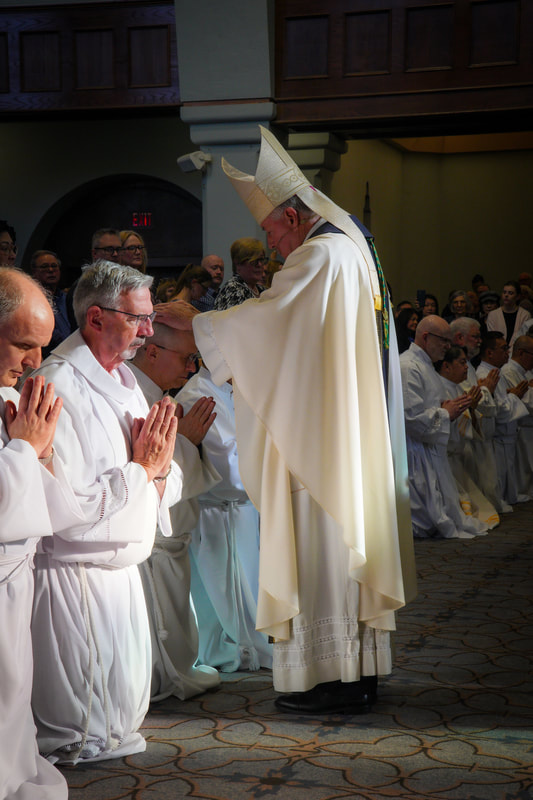
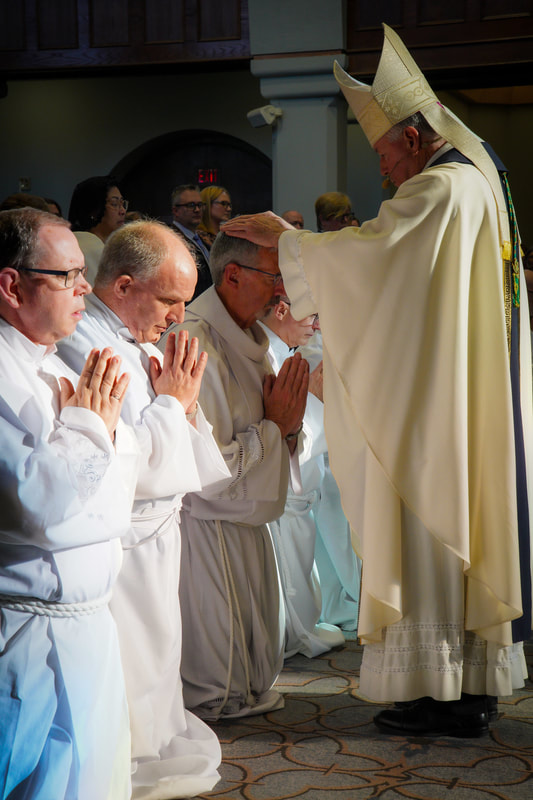
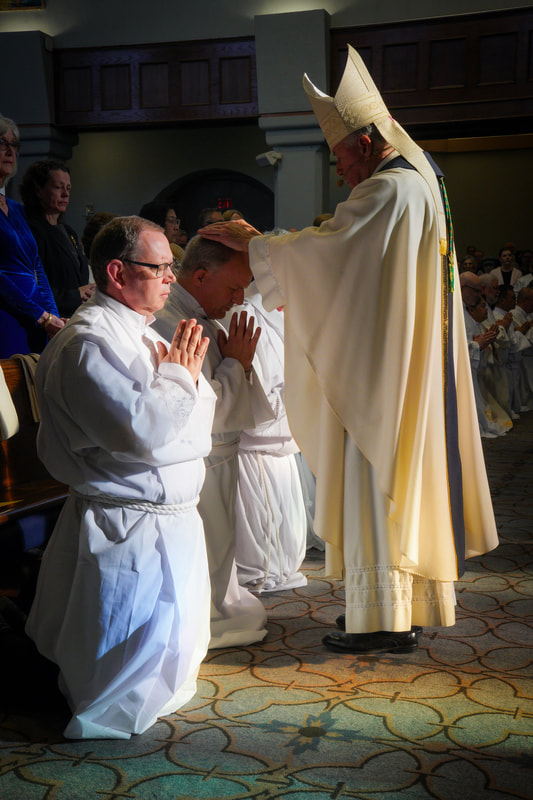
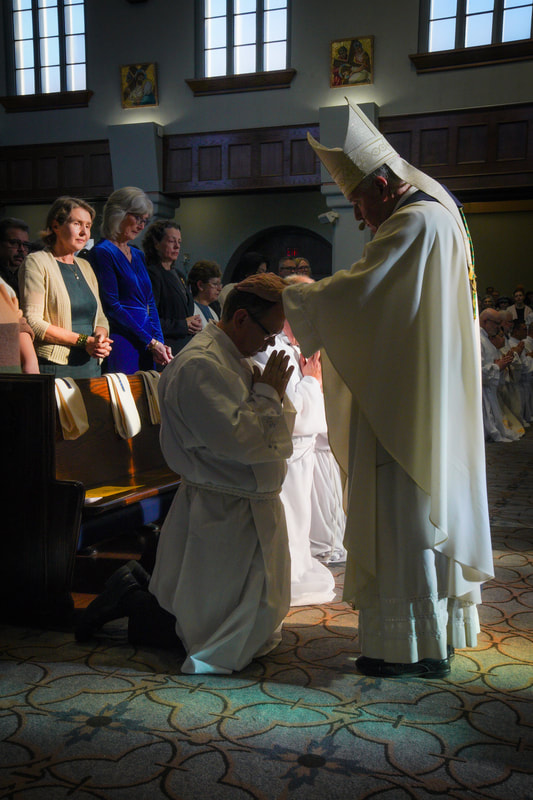
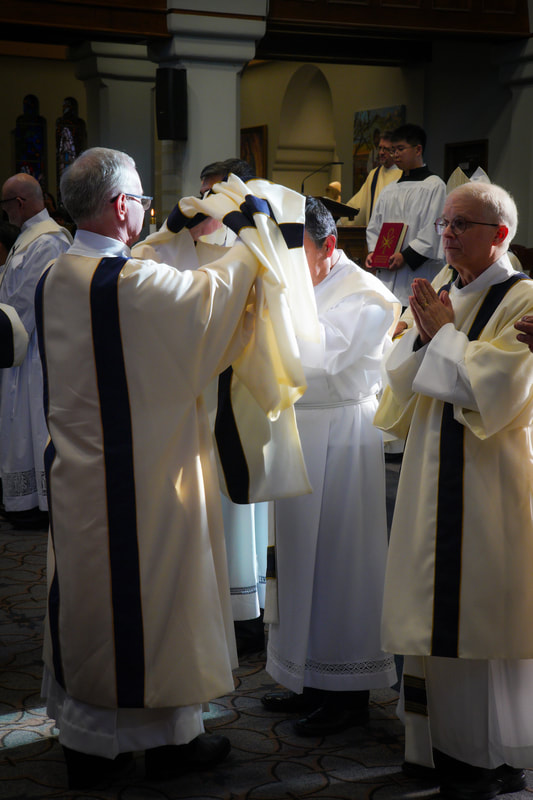
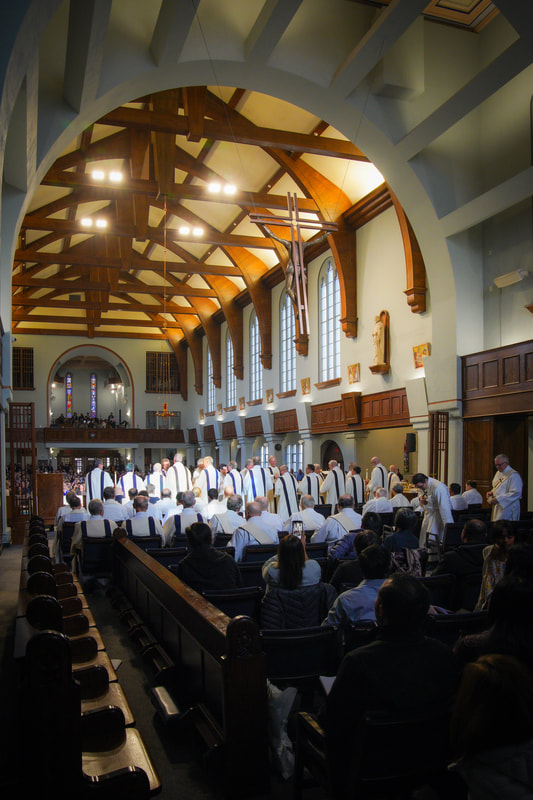
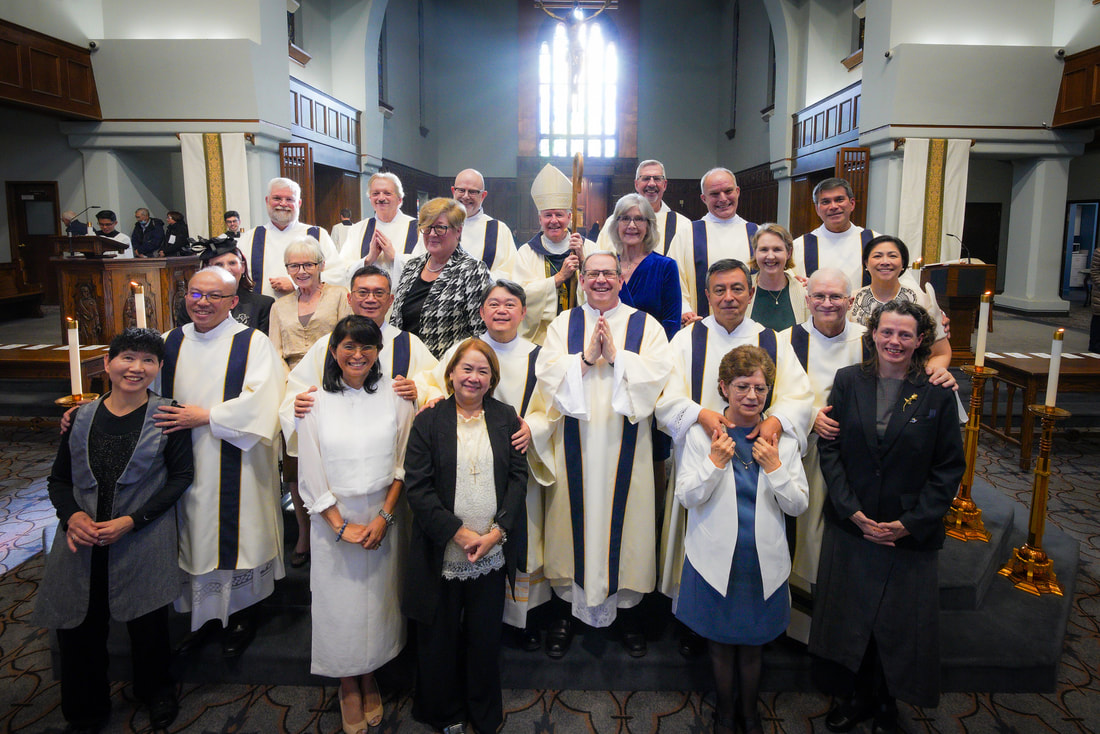
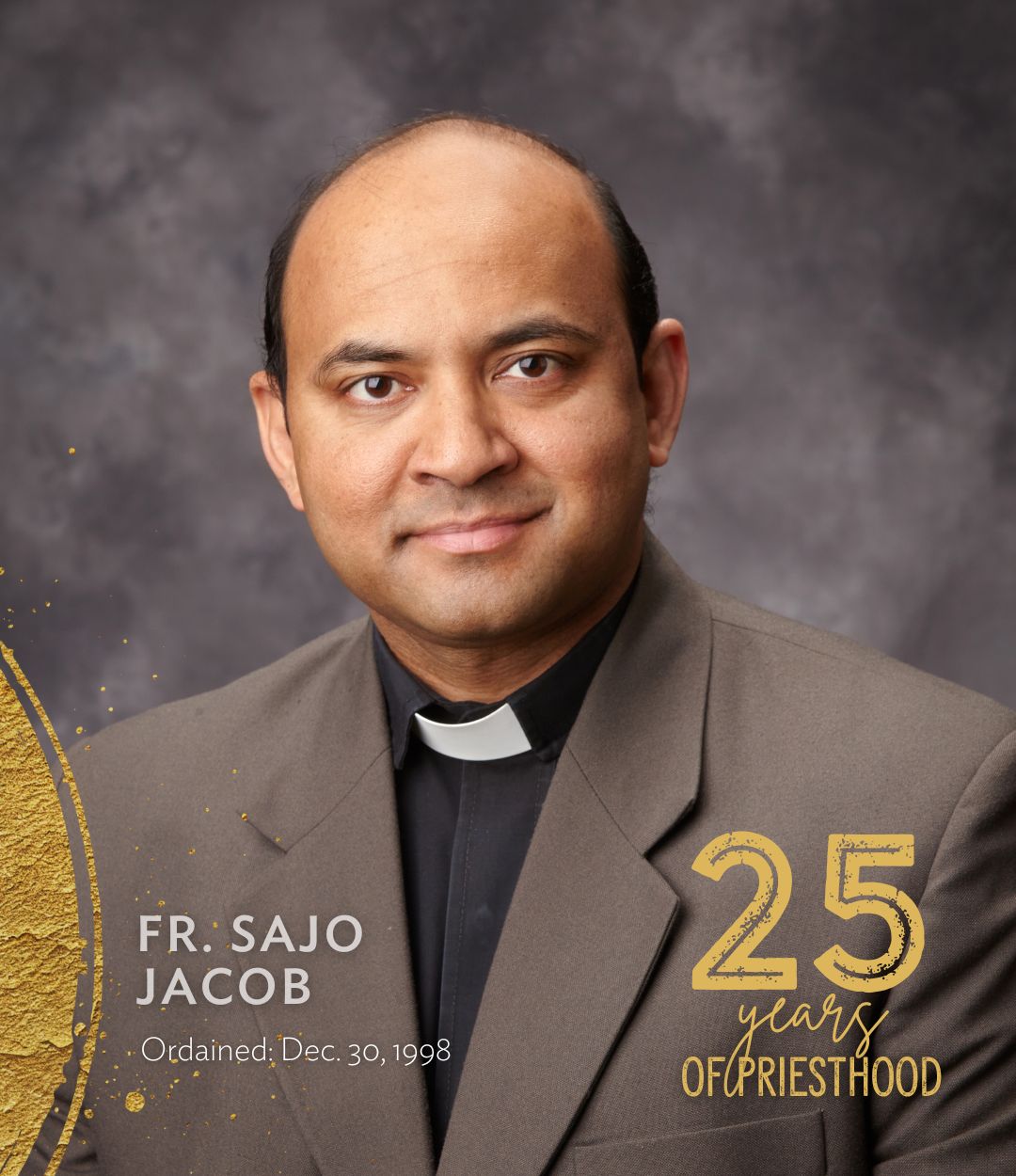
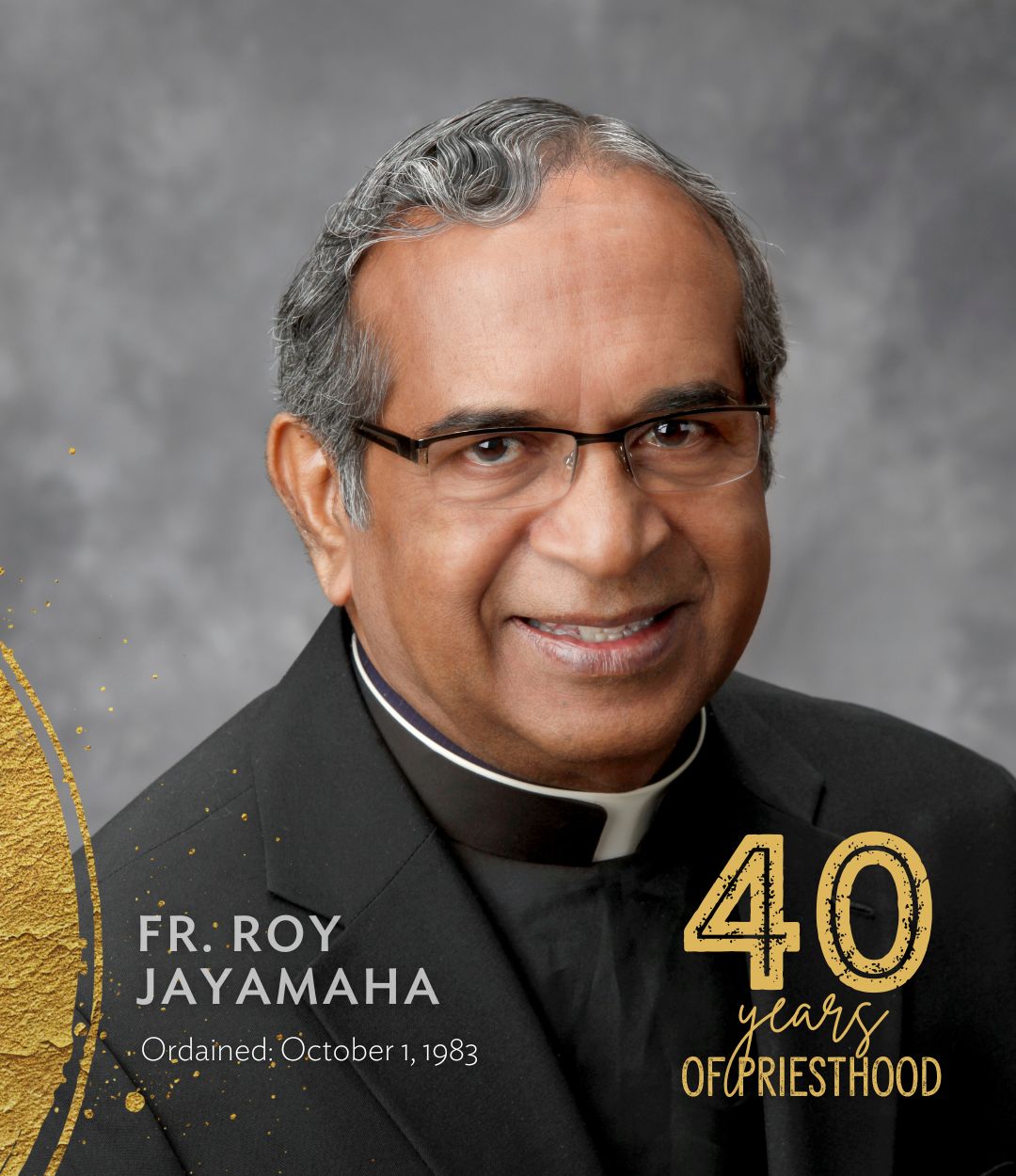
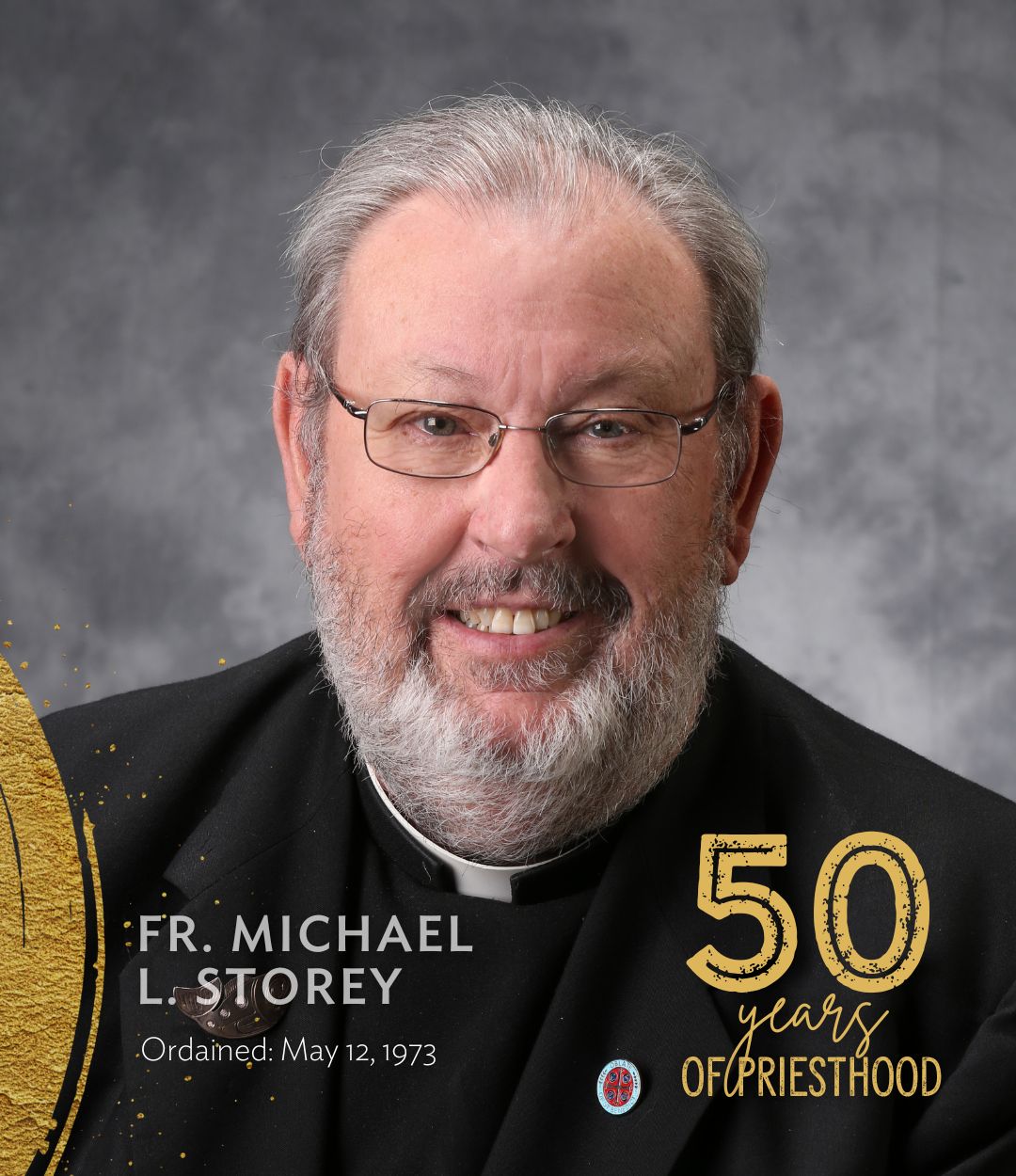
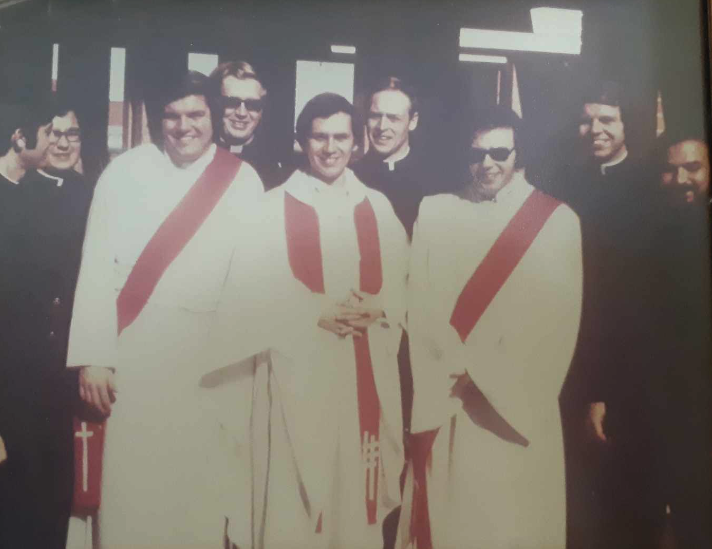
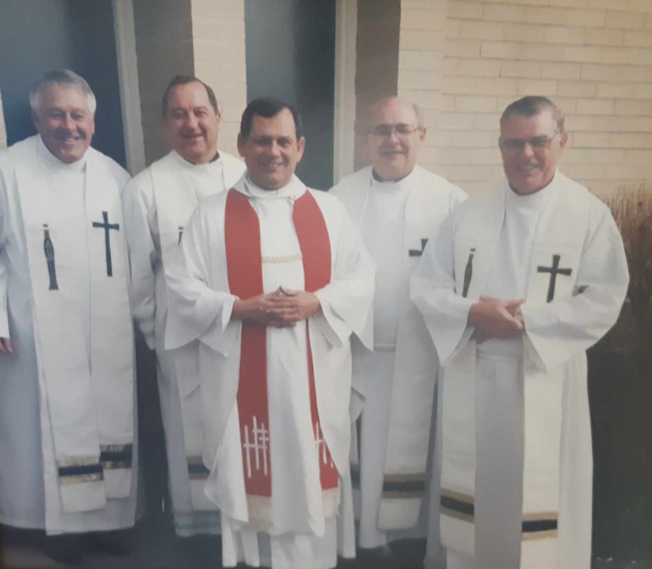
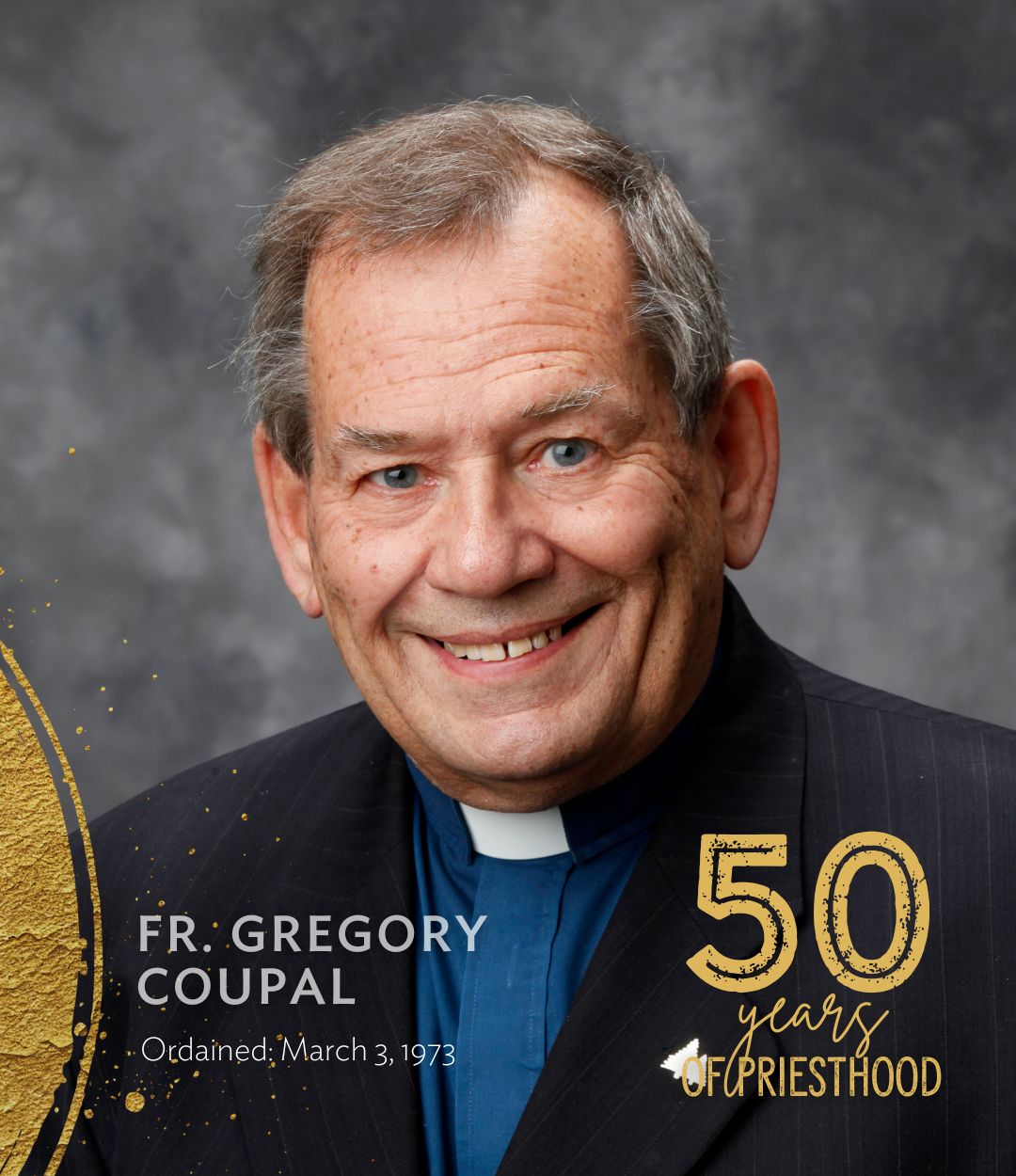
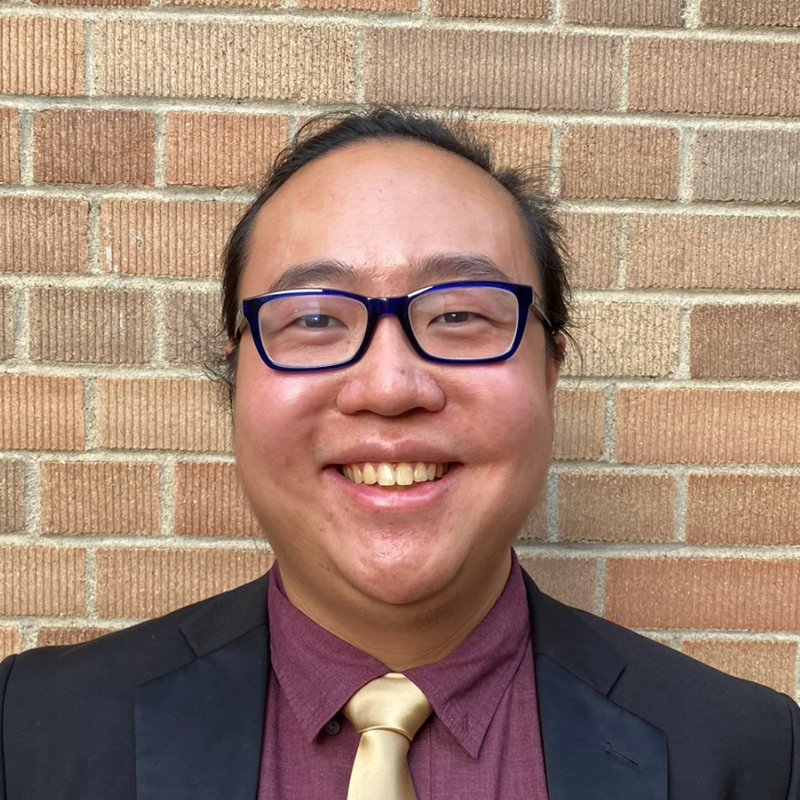
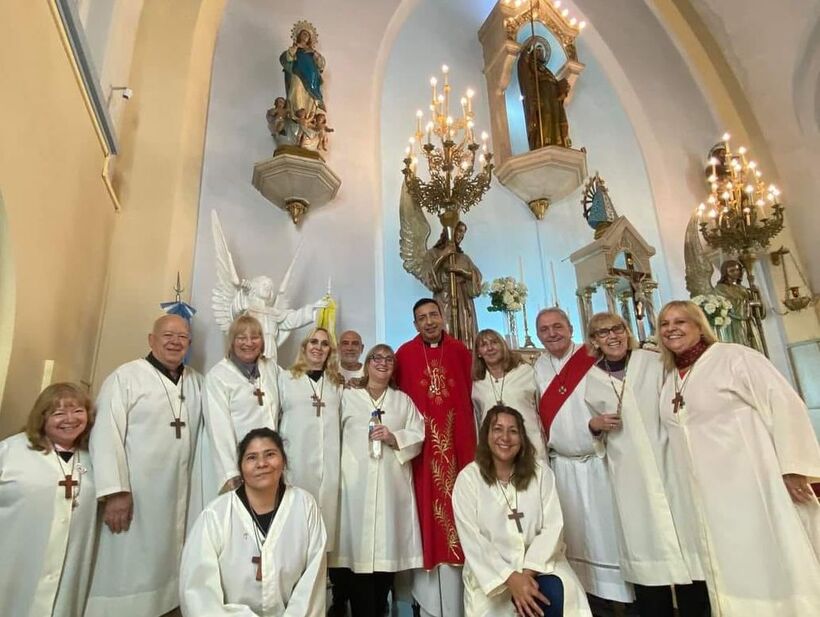
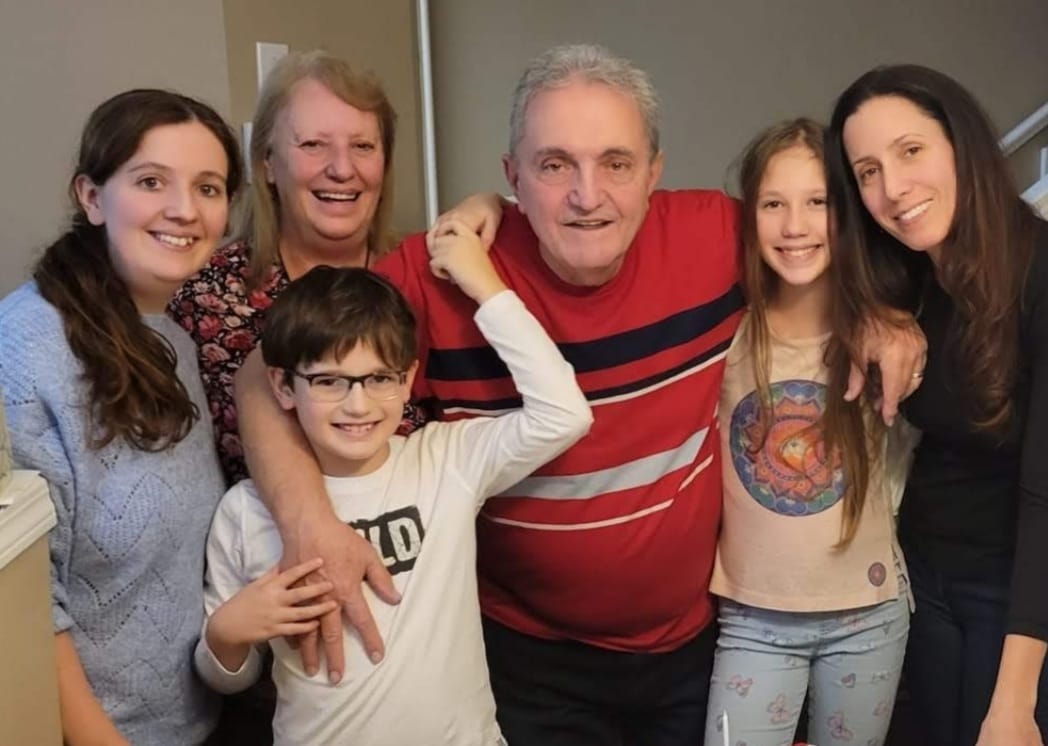
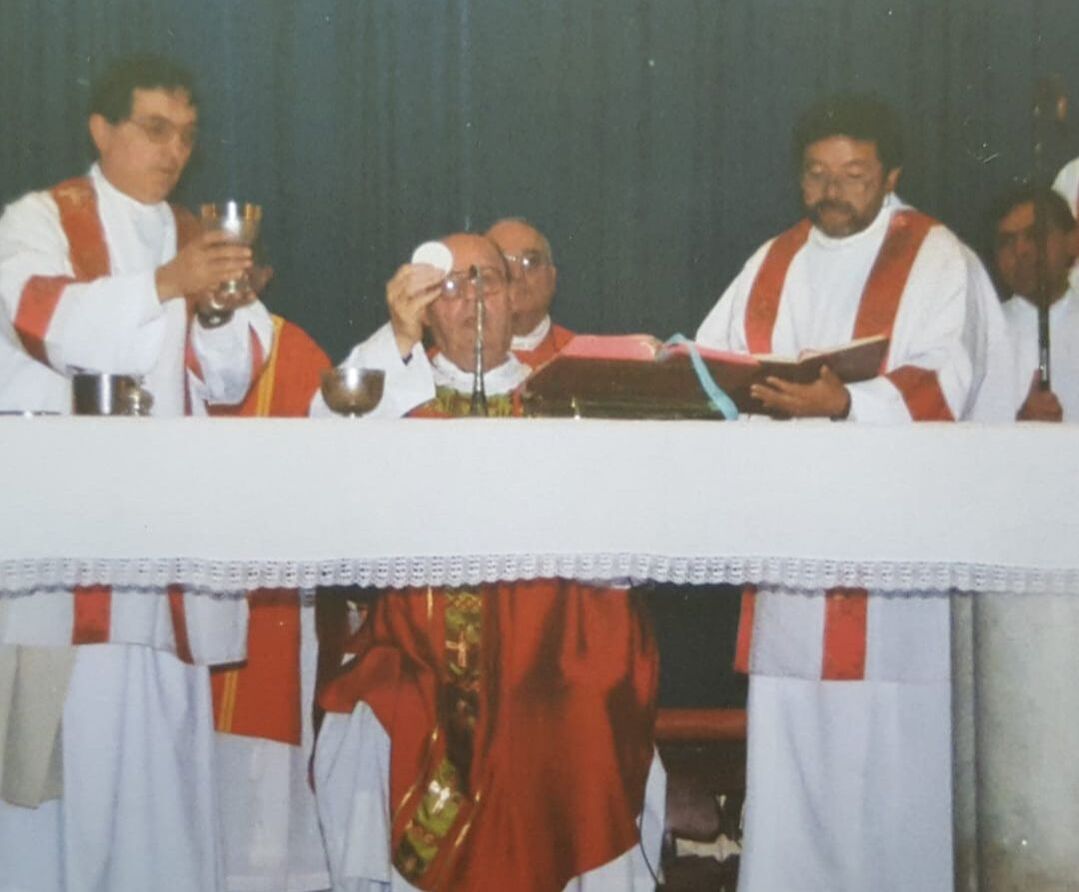
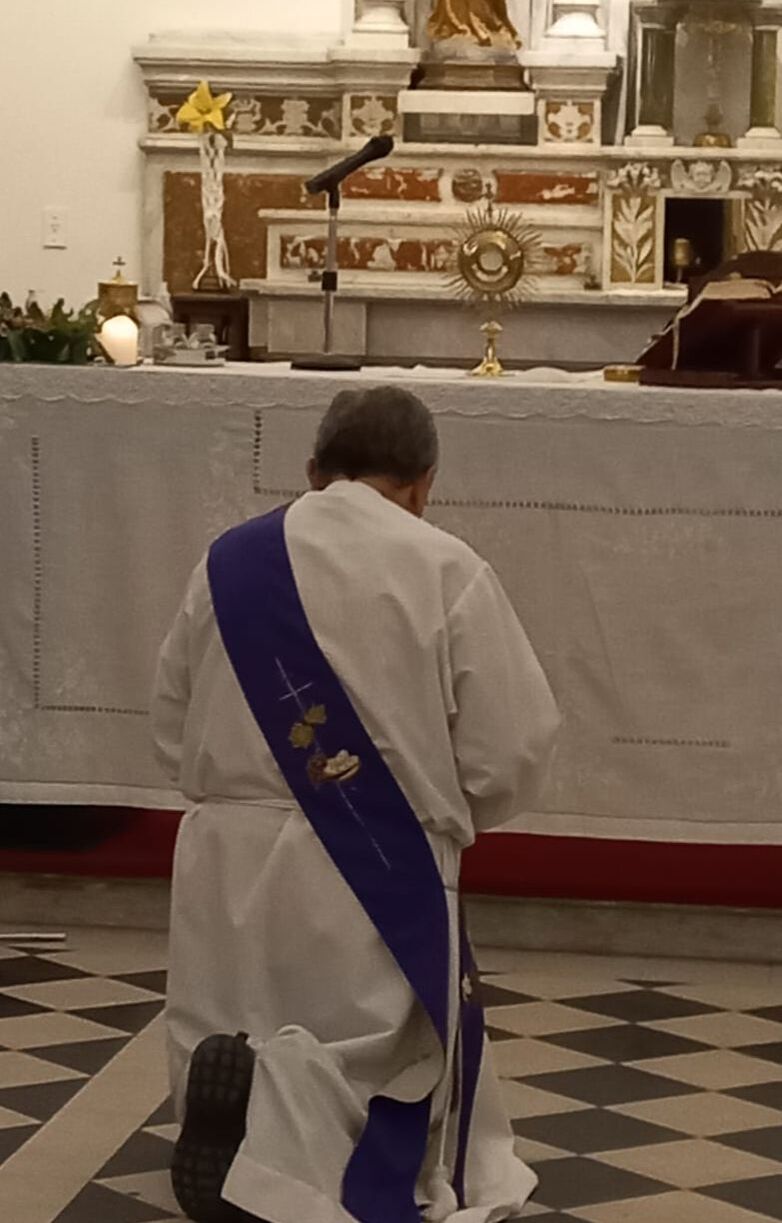
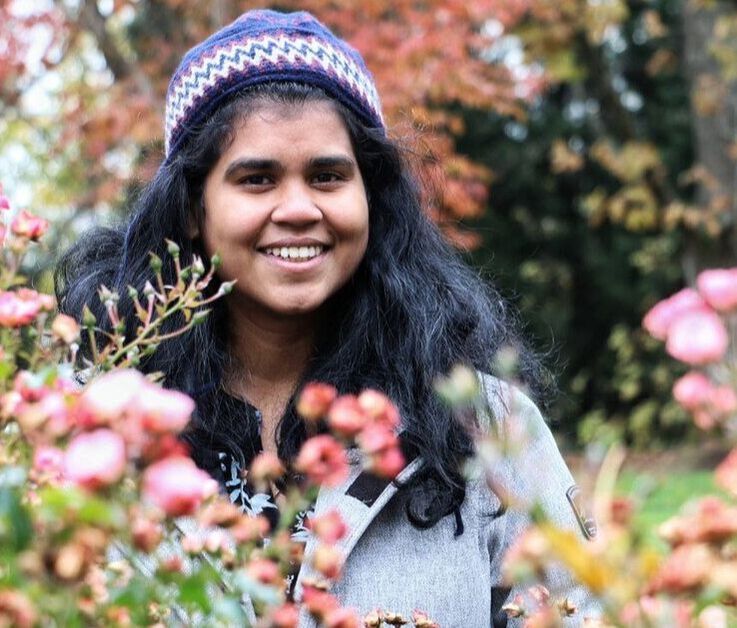
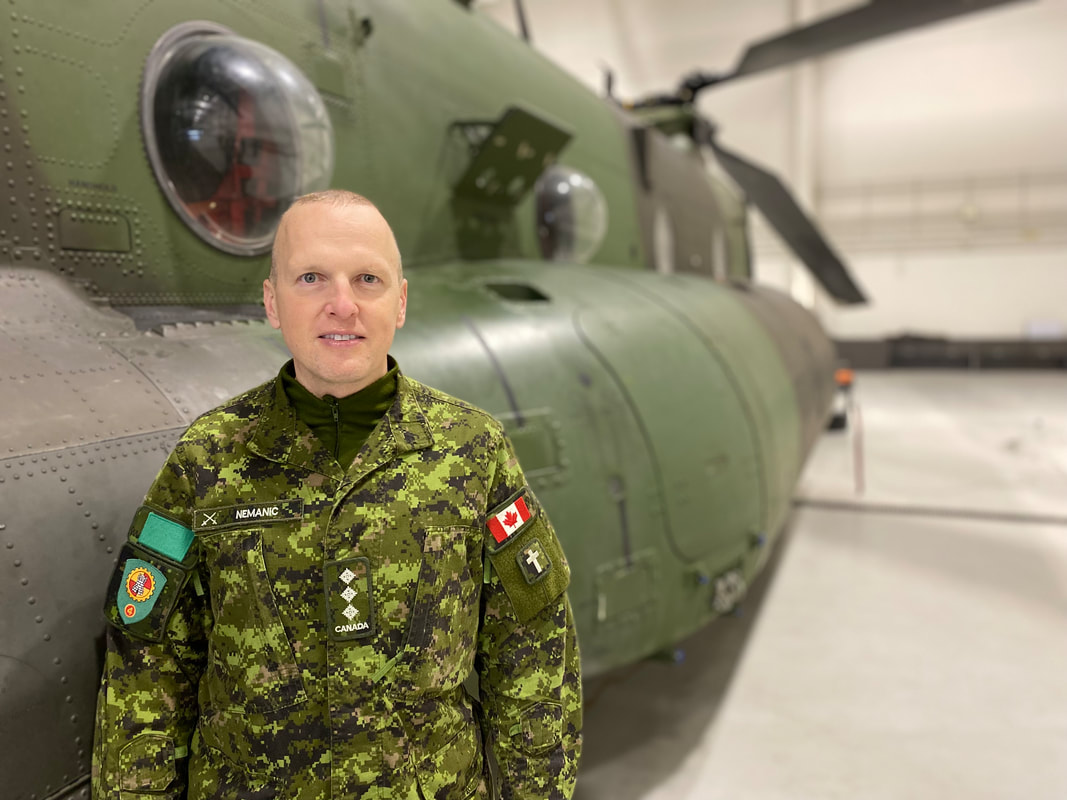
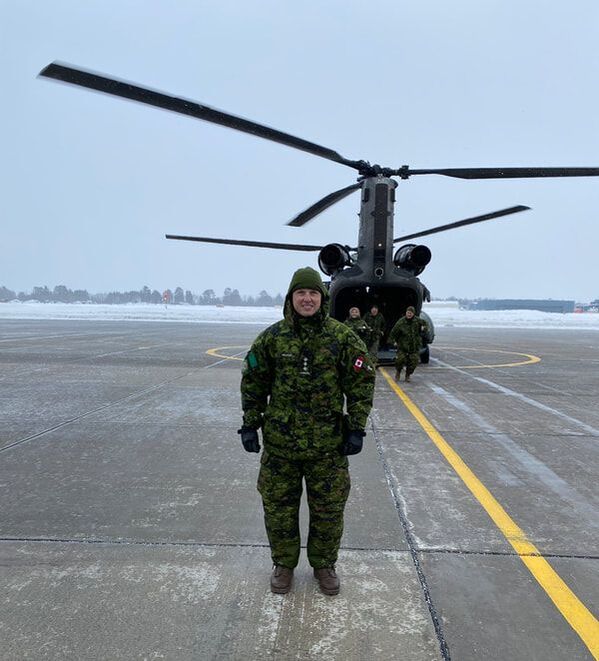
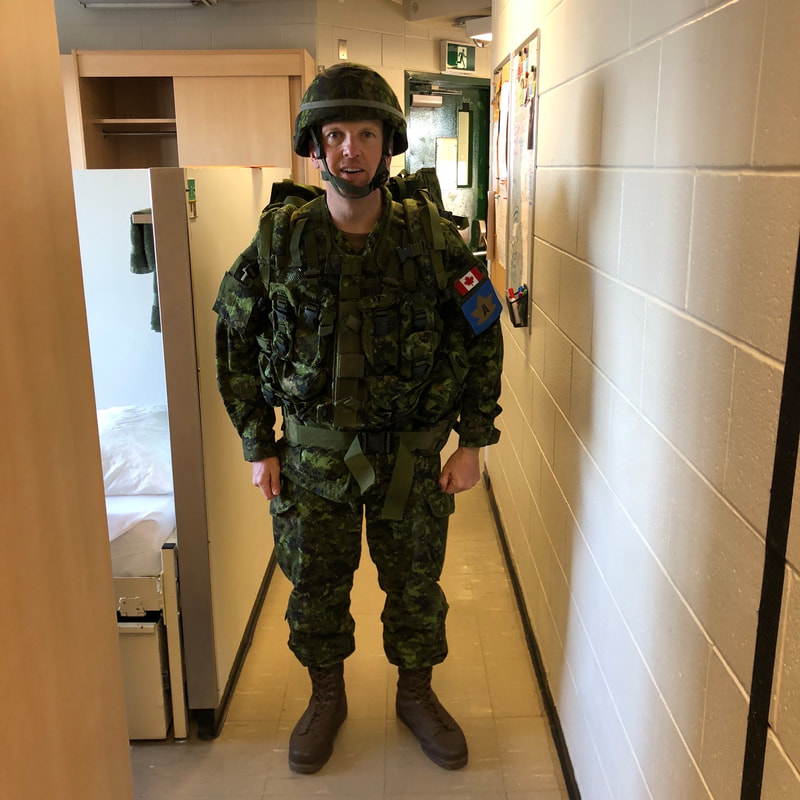
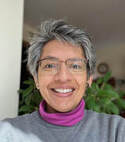
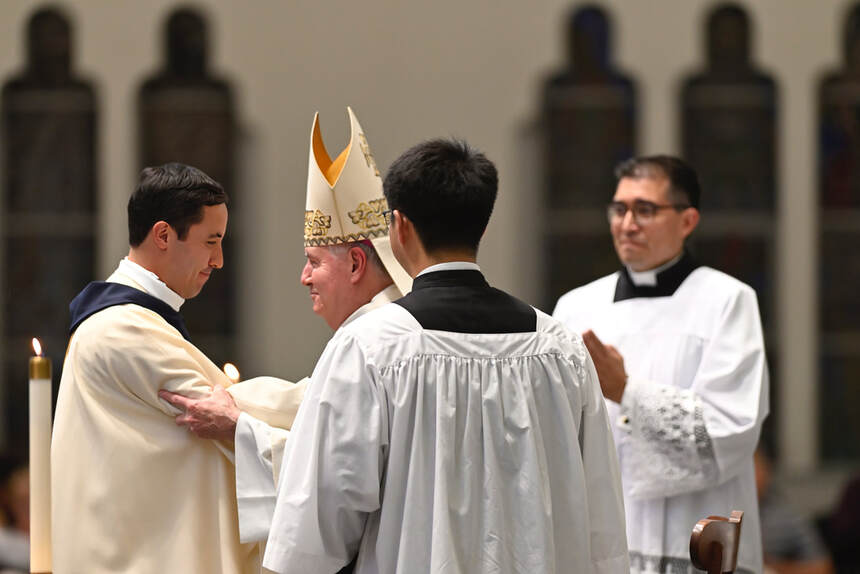
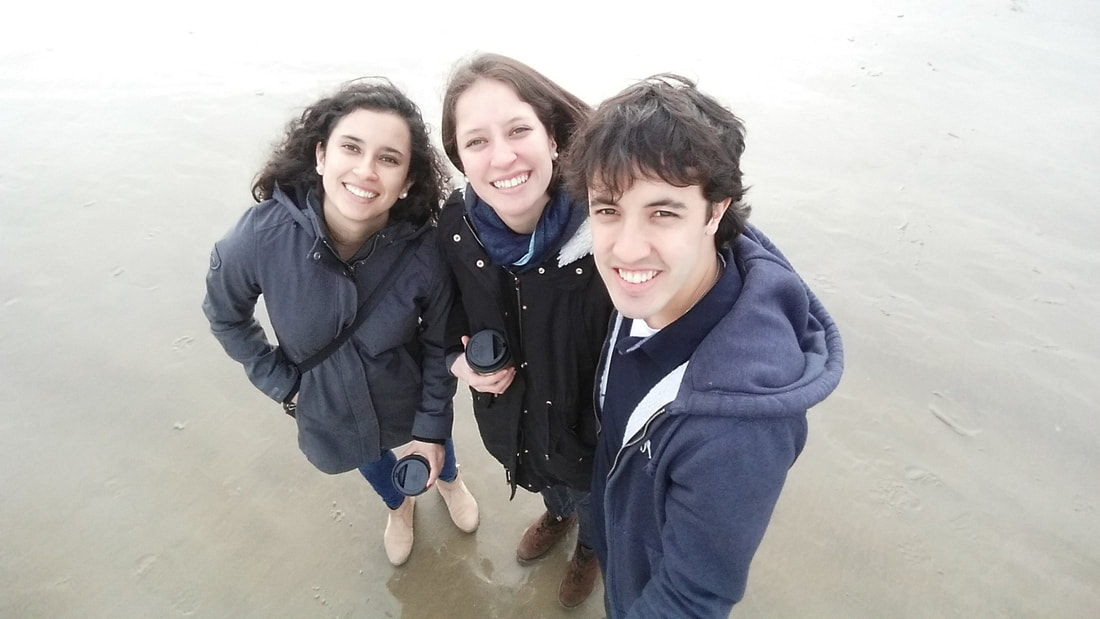
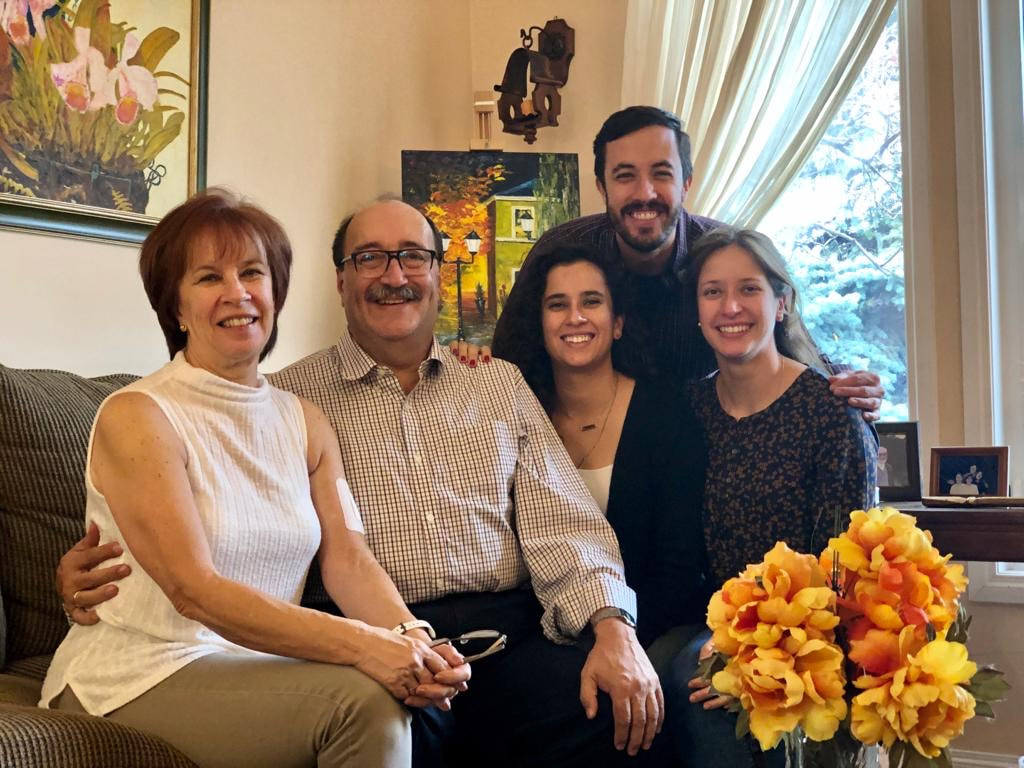
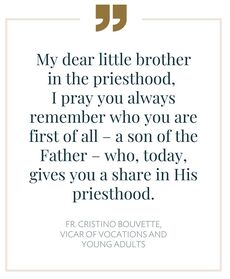
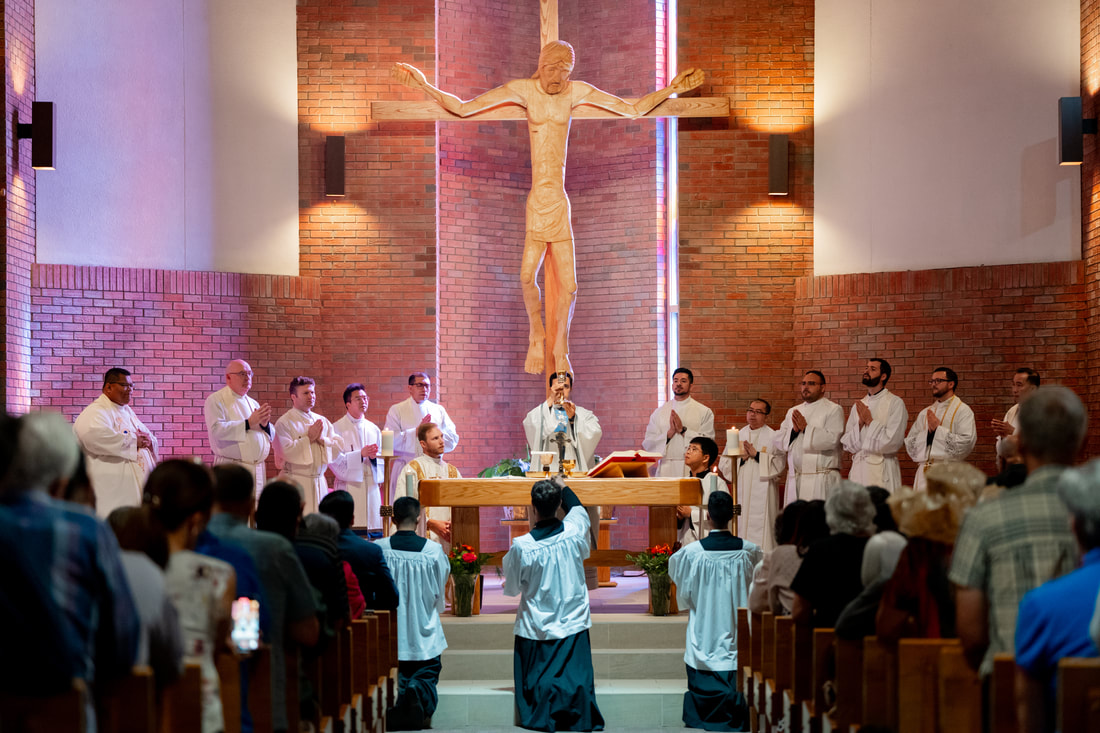
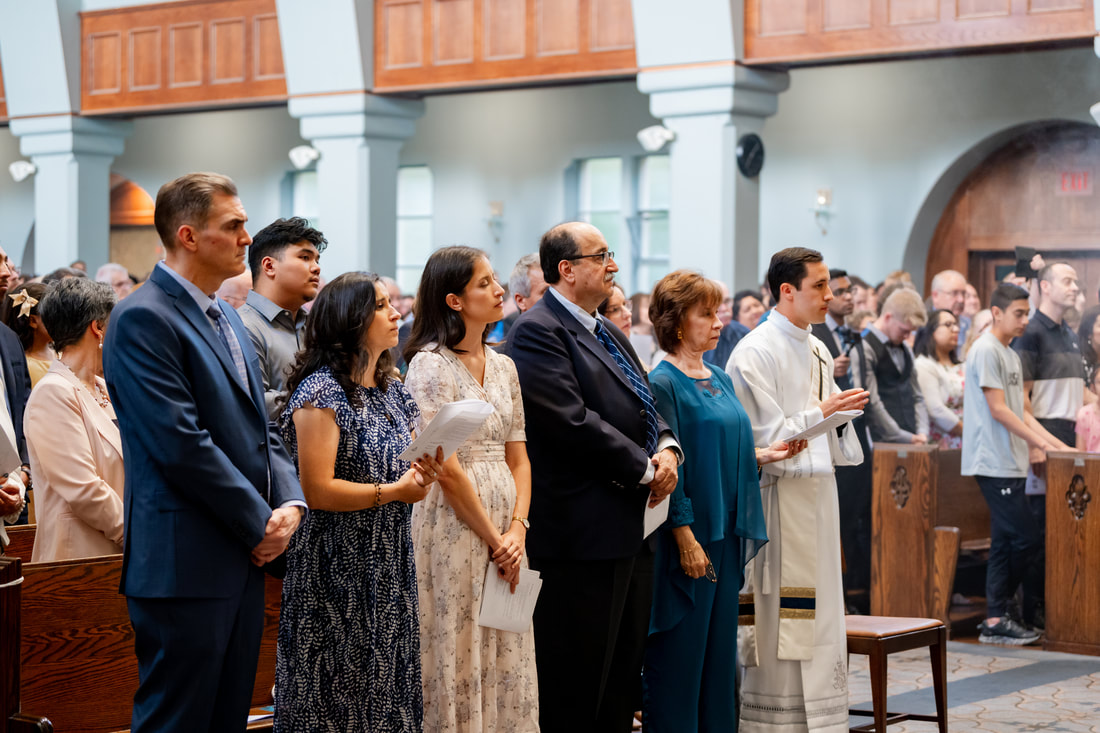
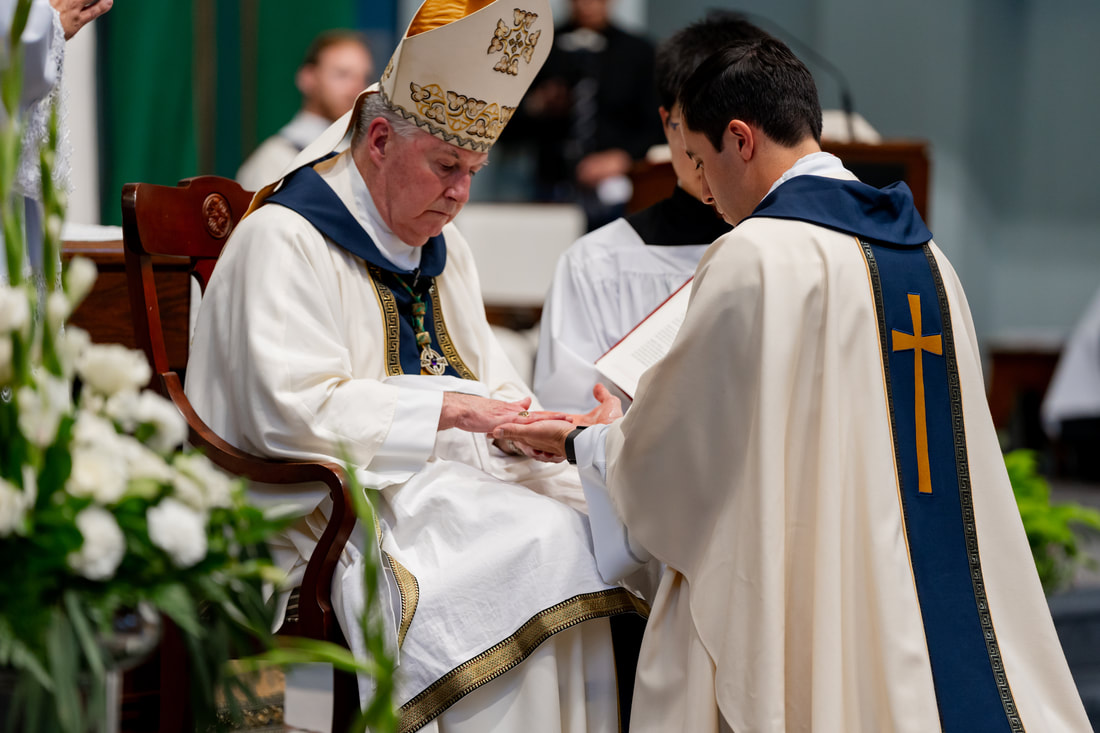
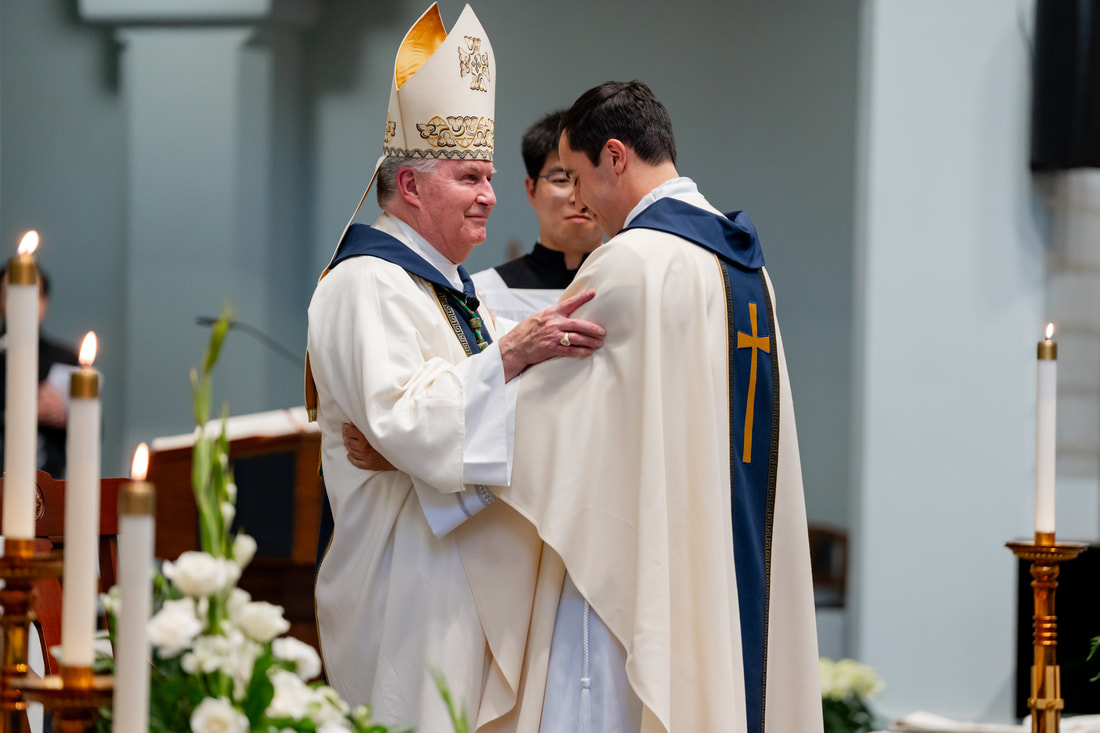
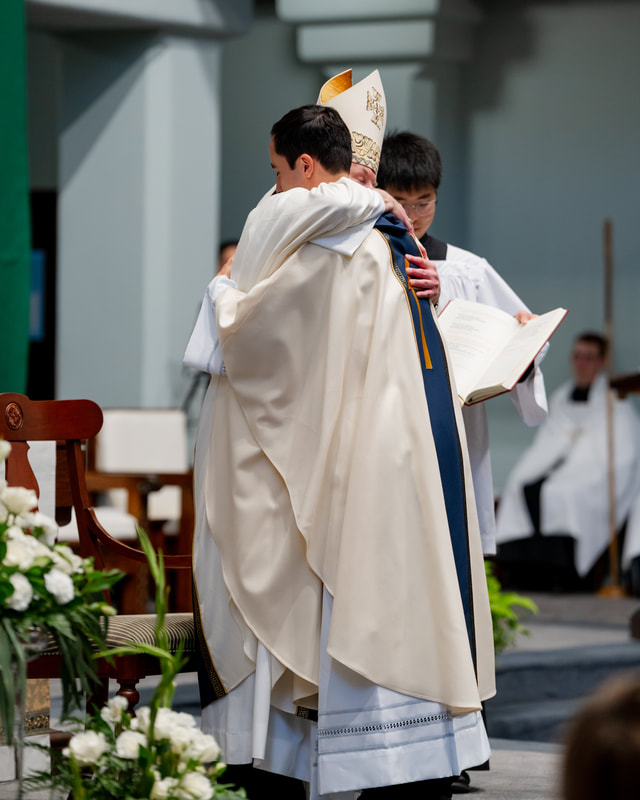
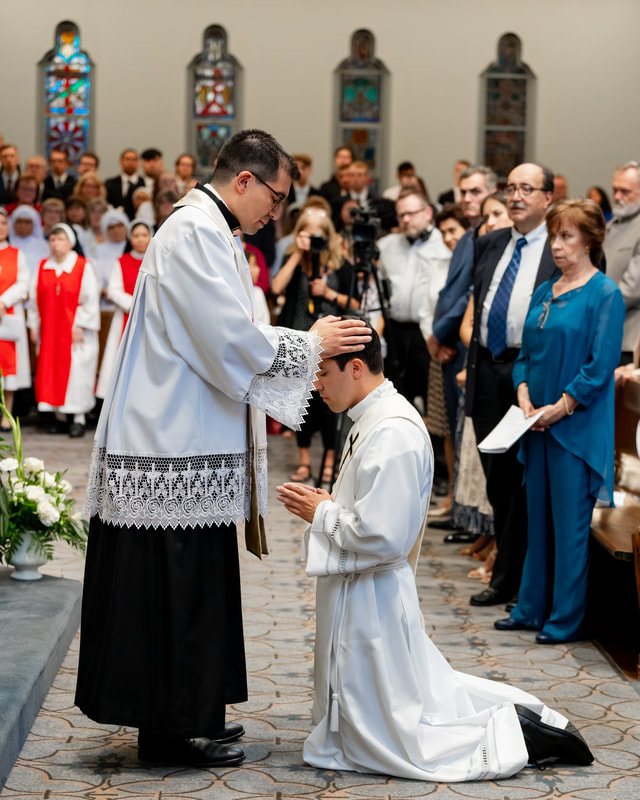

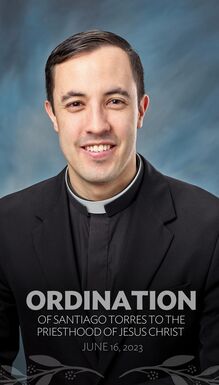
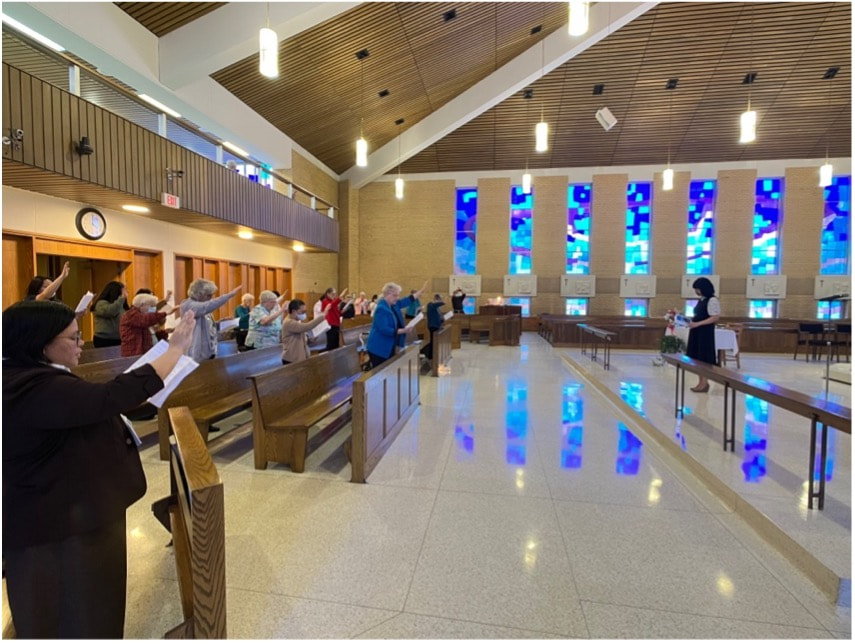
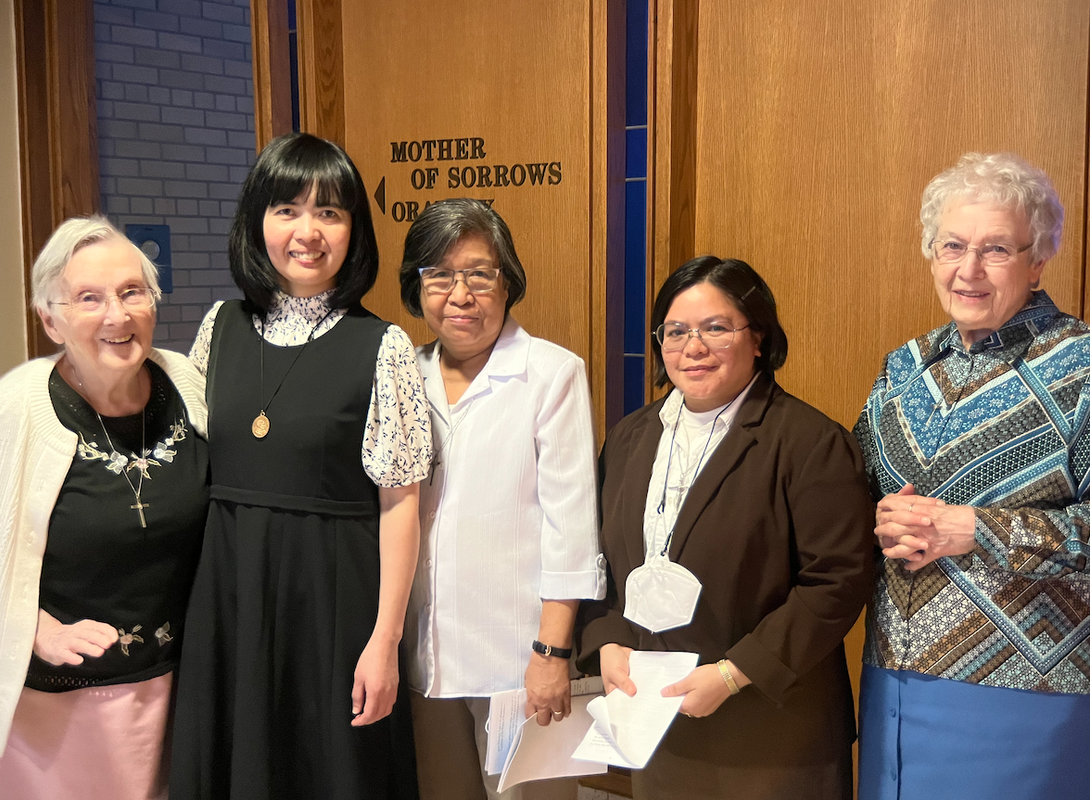
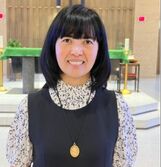
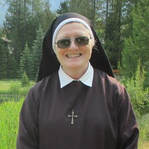
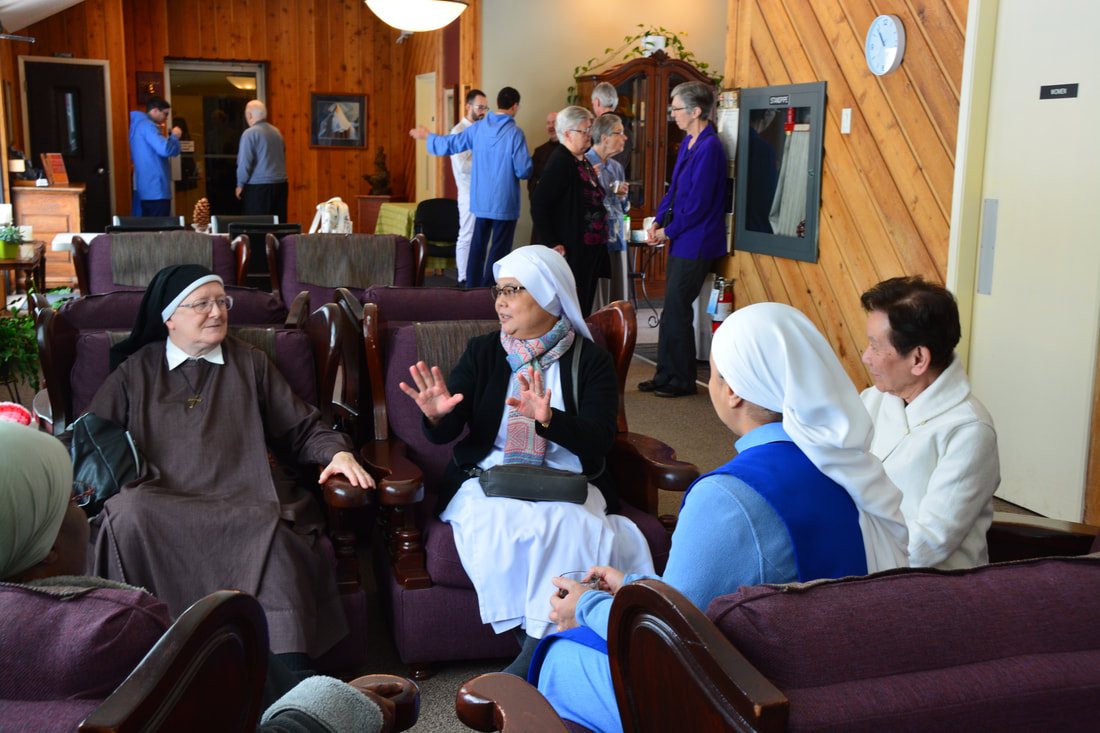
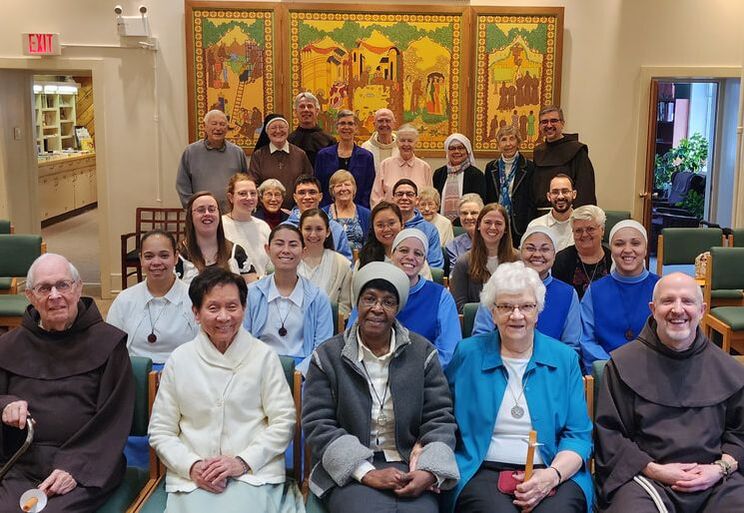
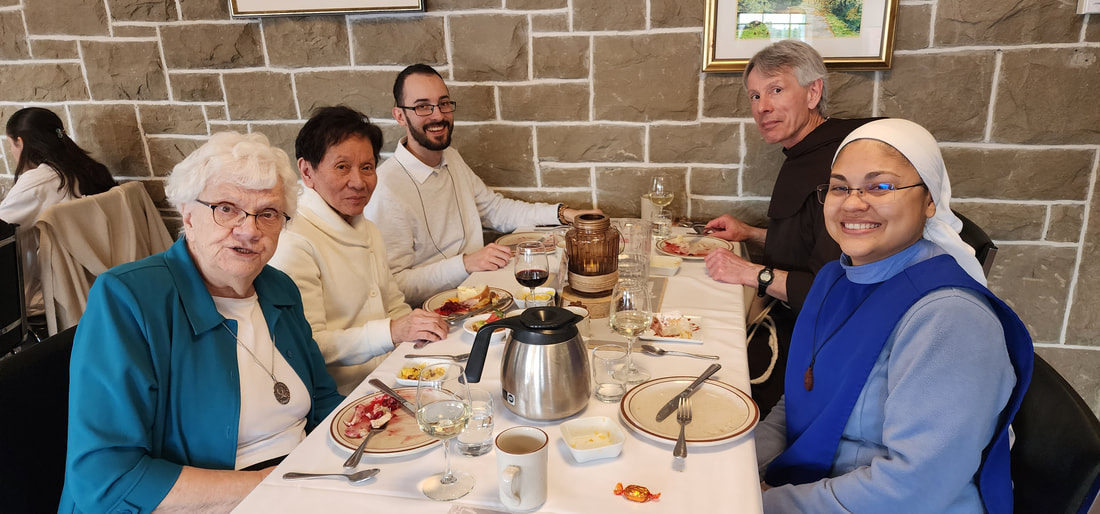
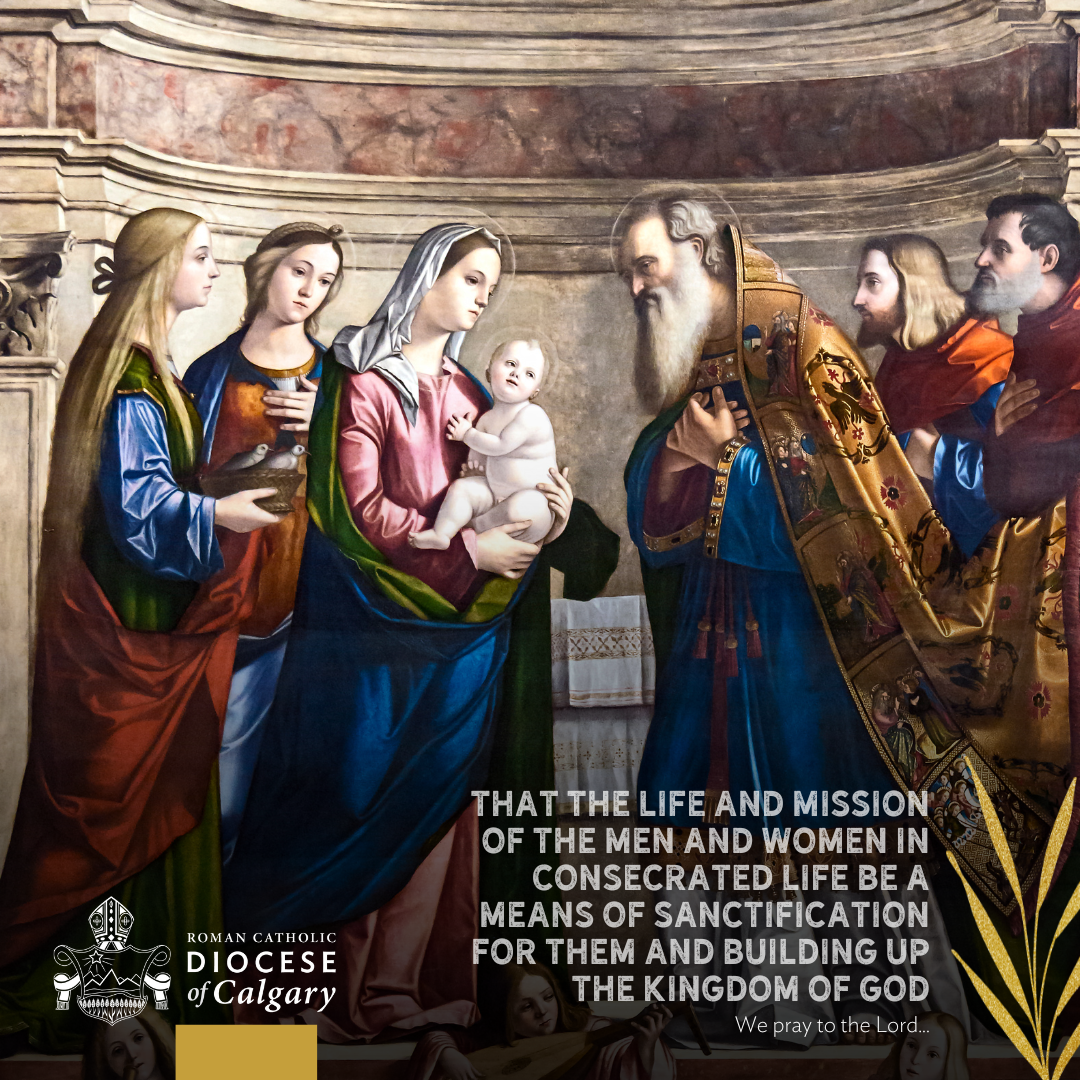
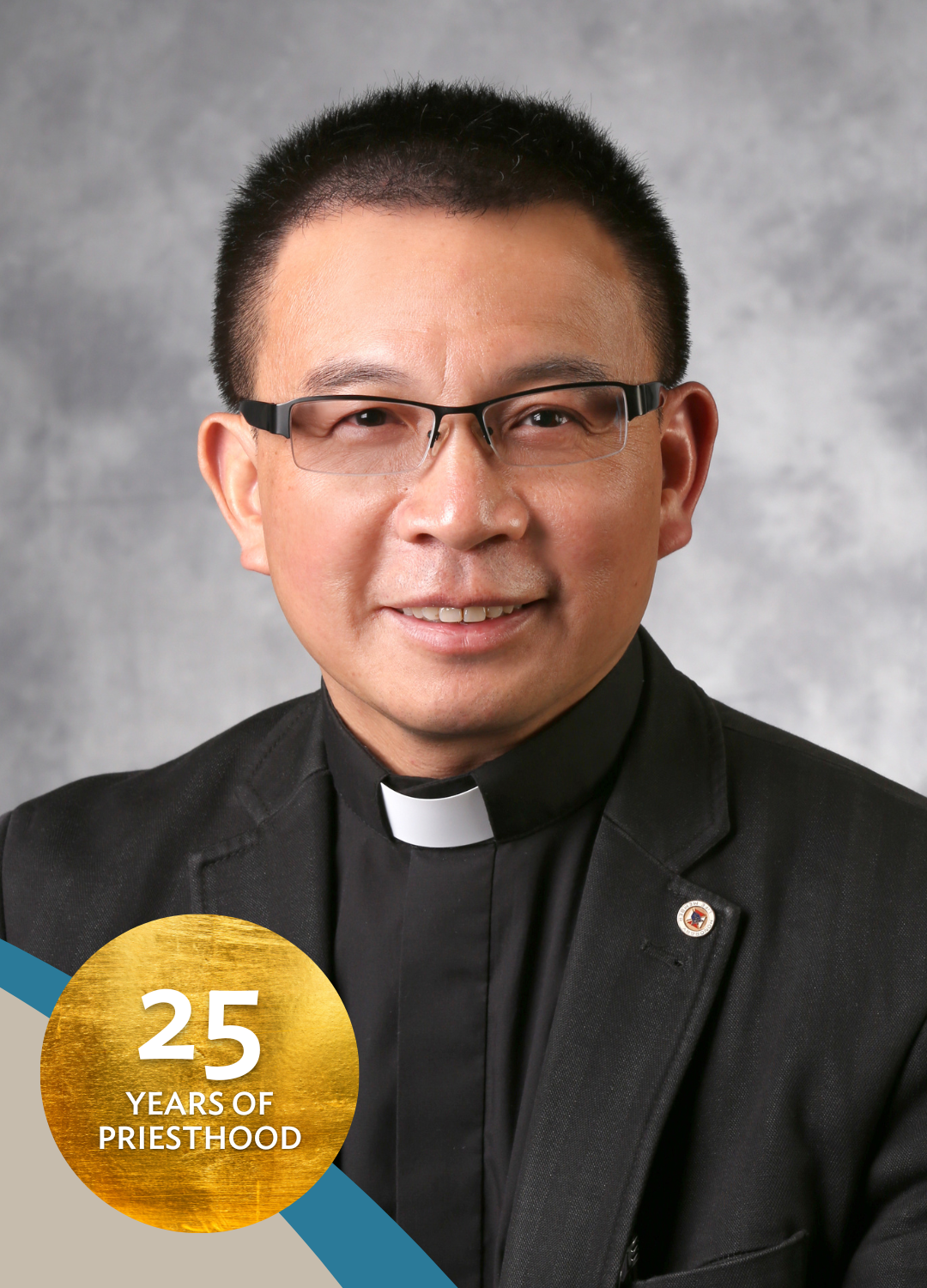
 RSS Feed
RSS Feed